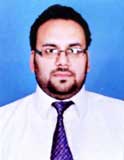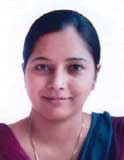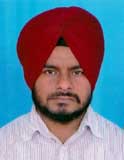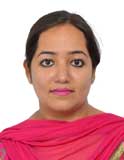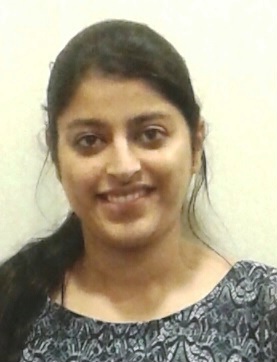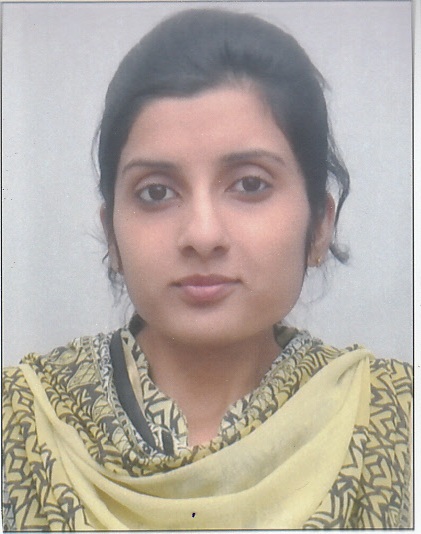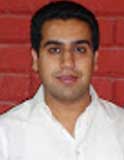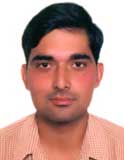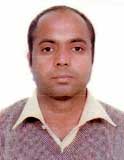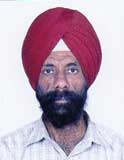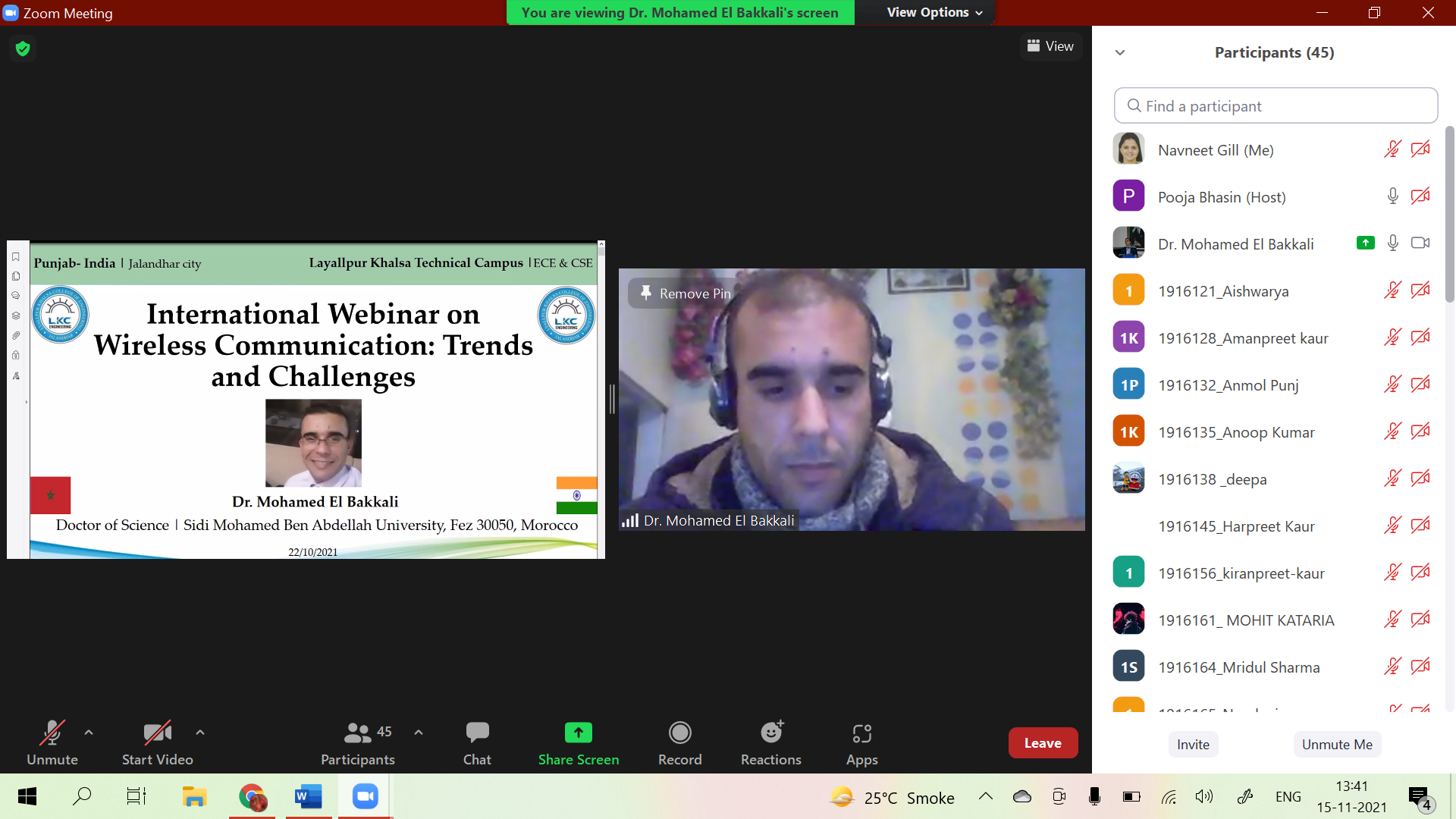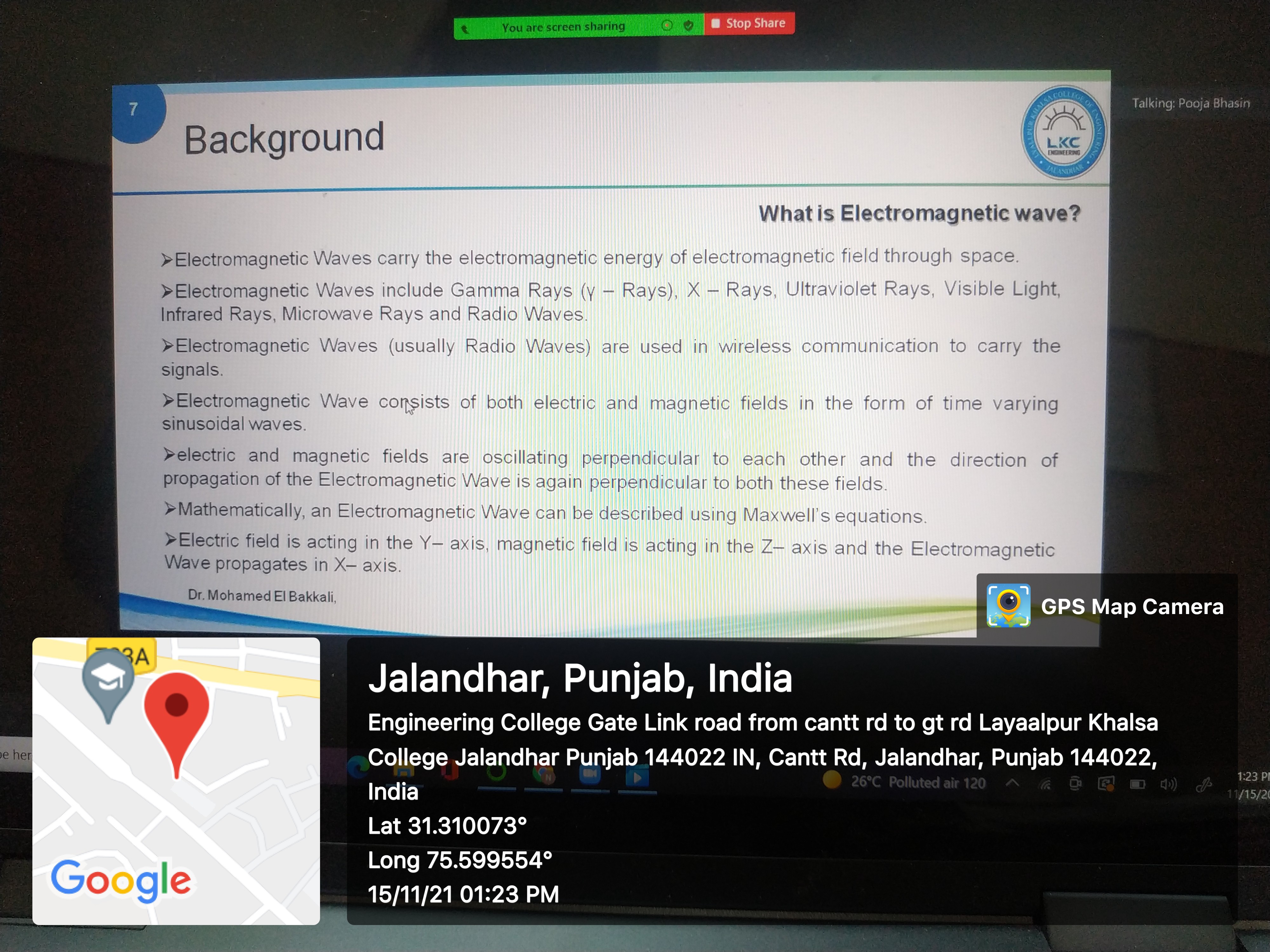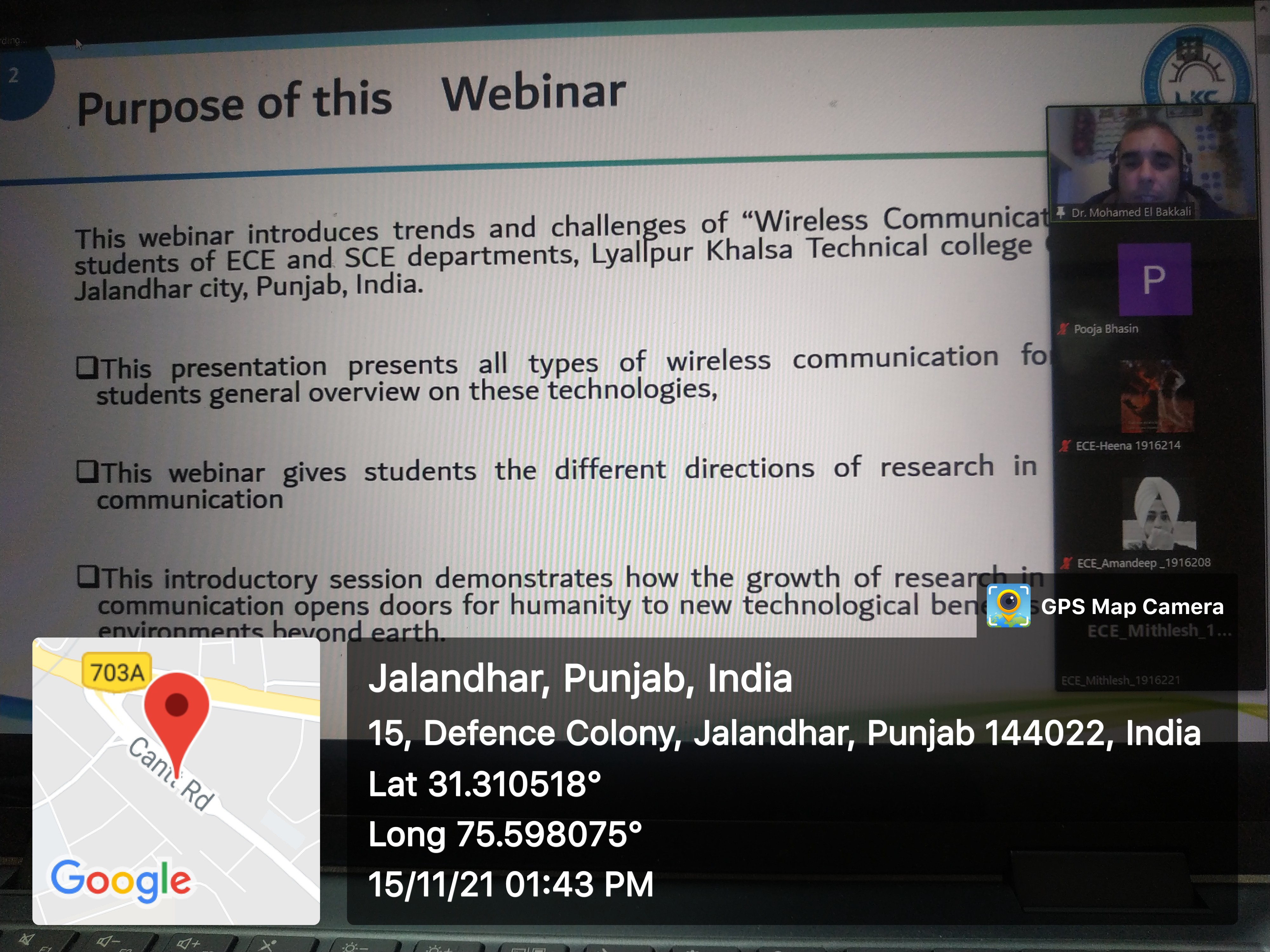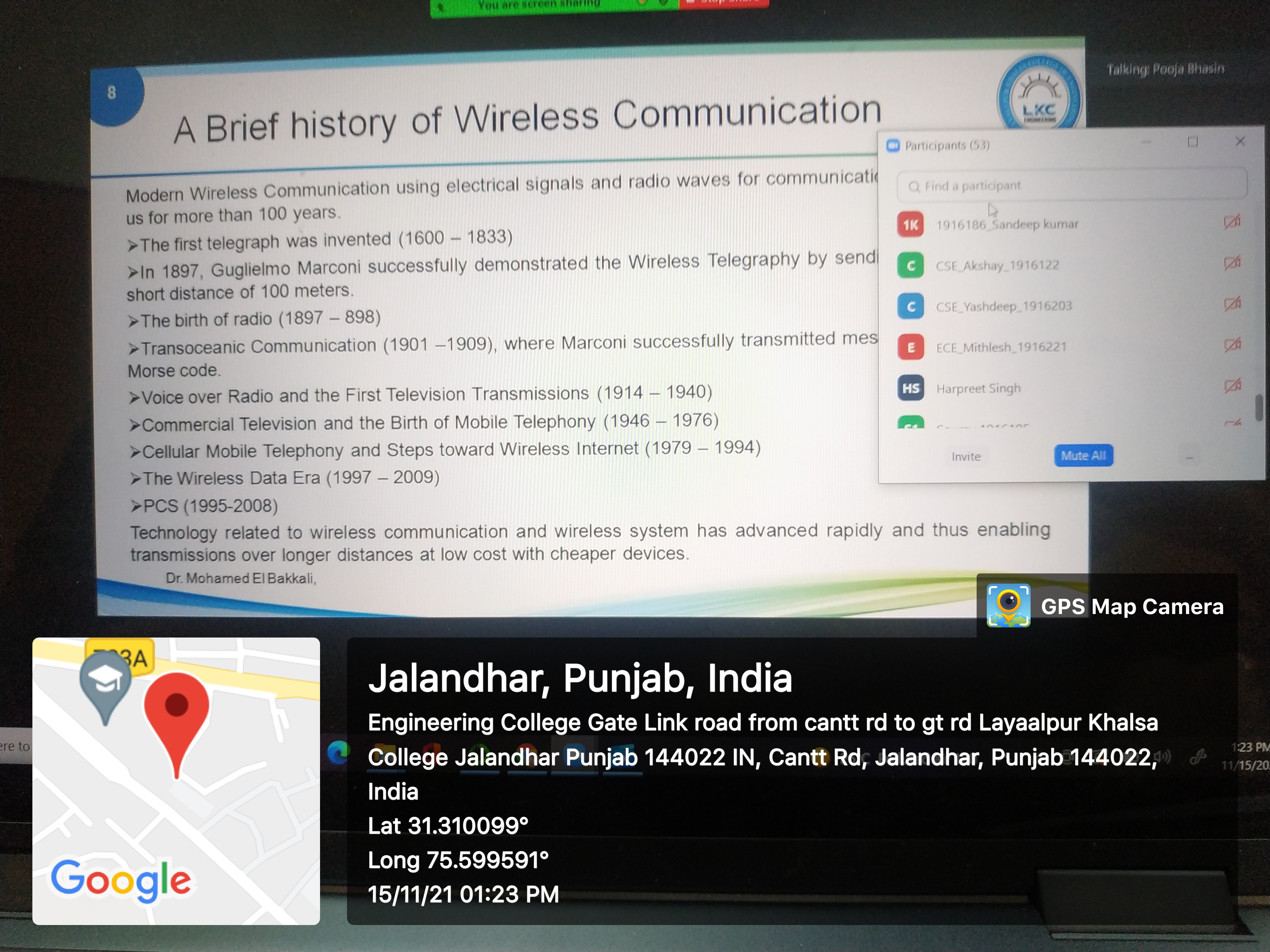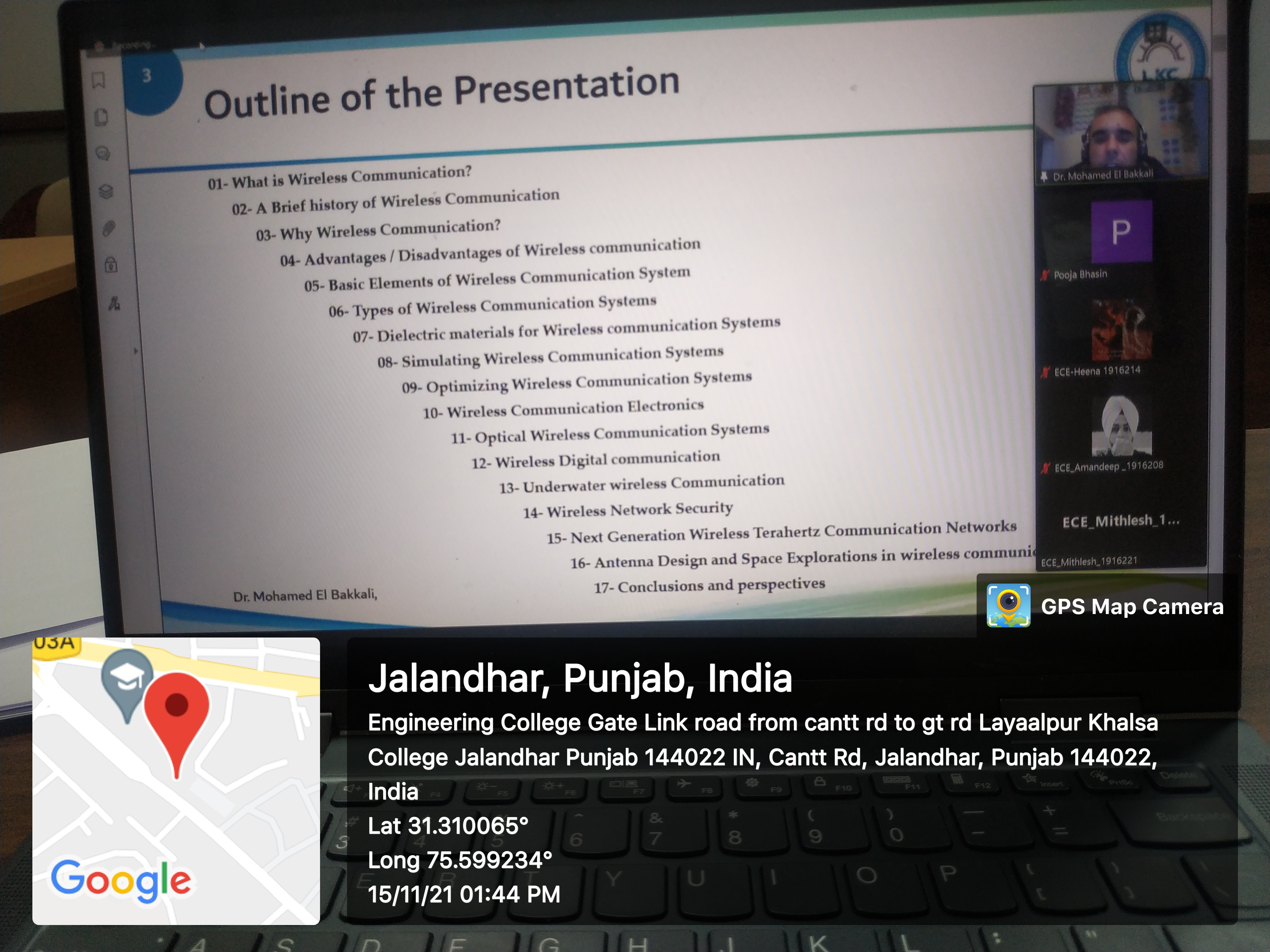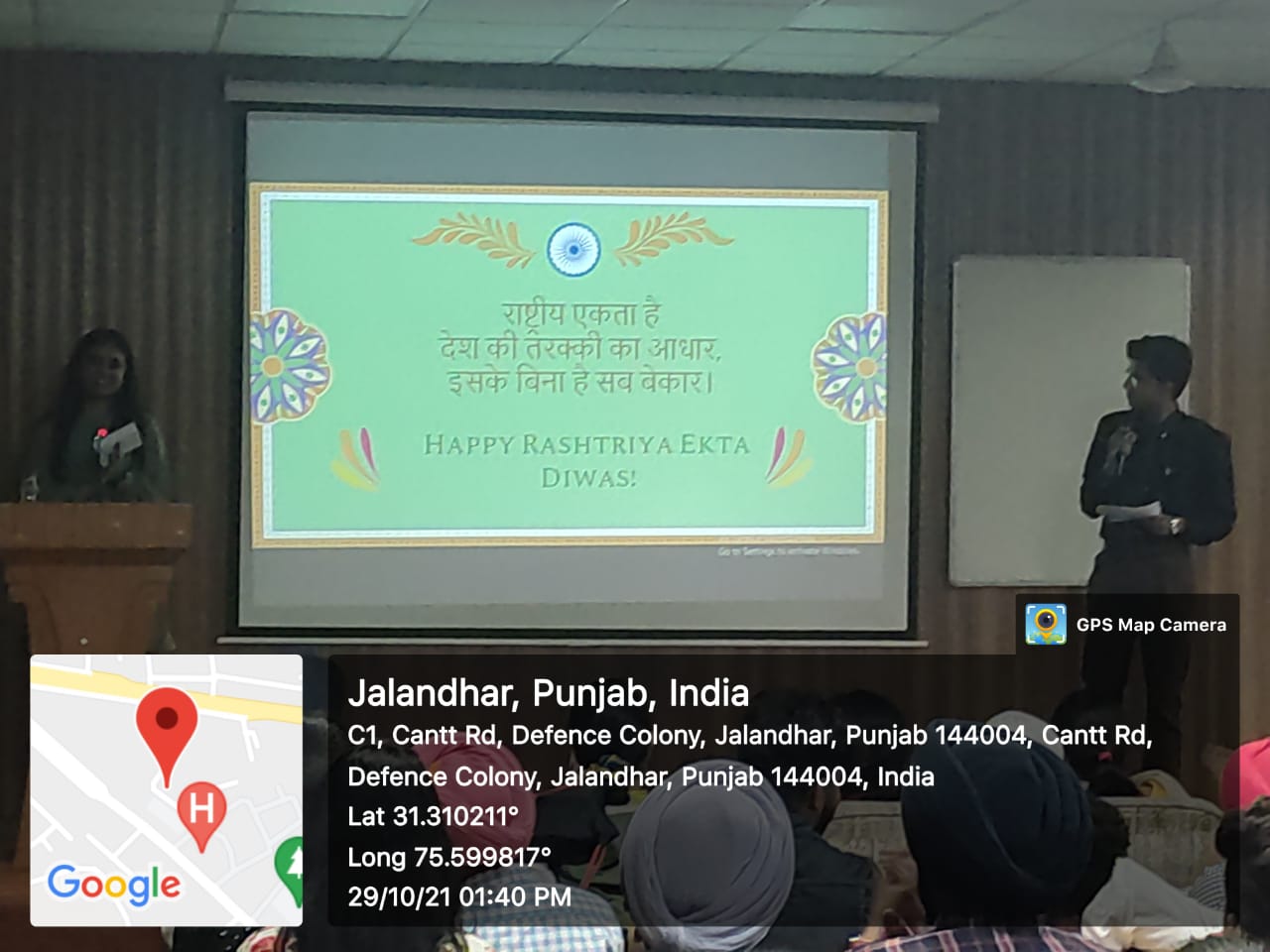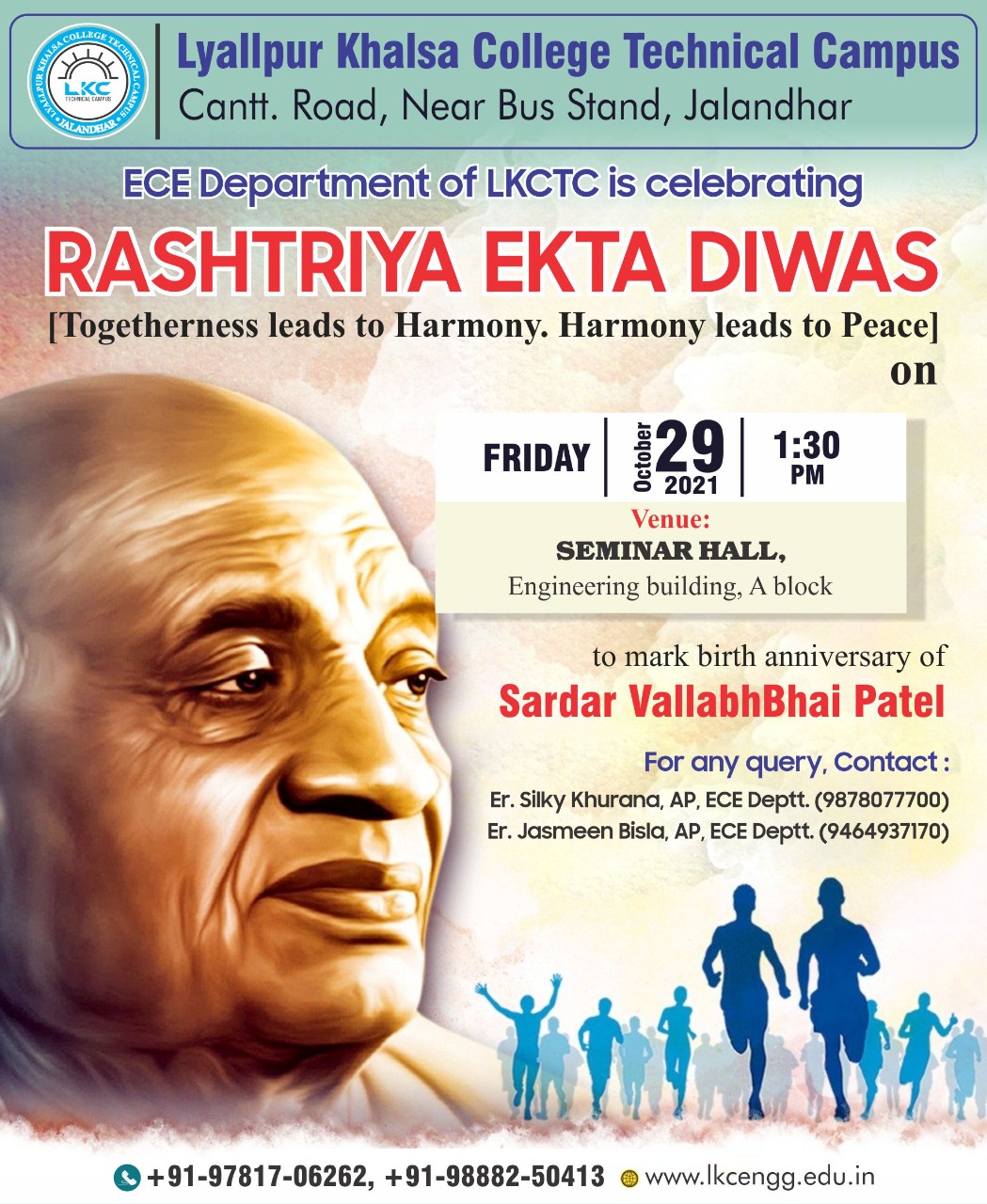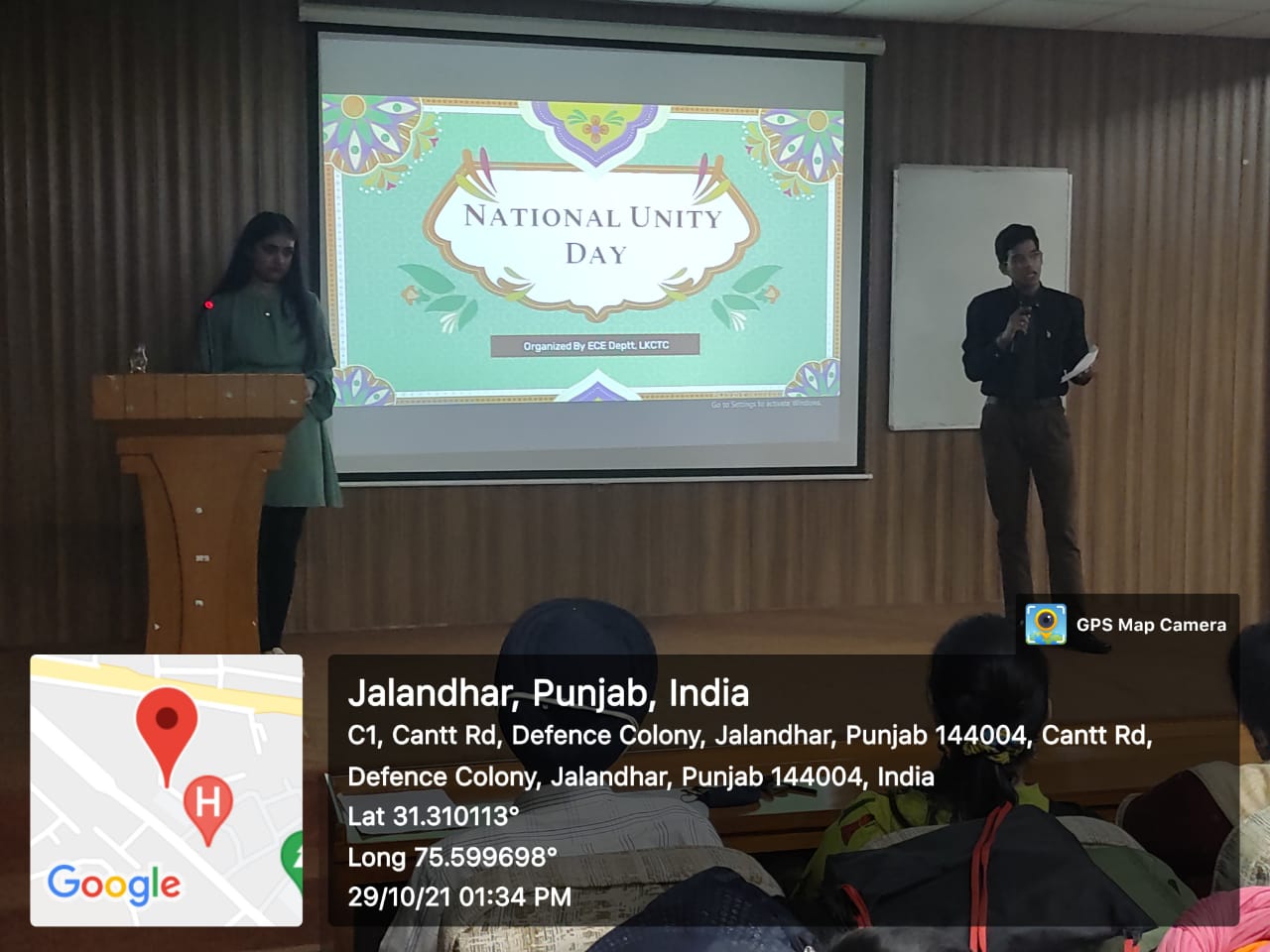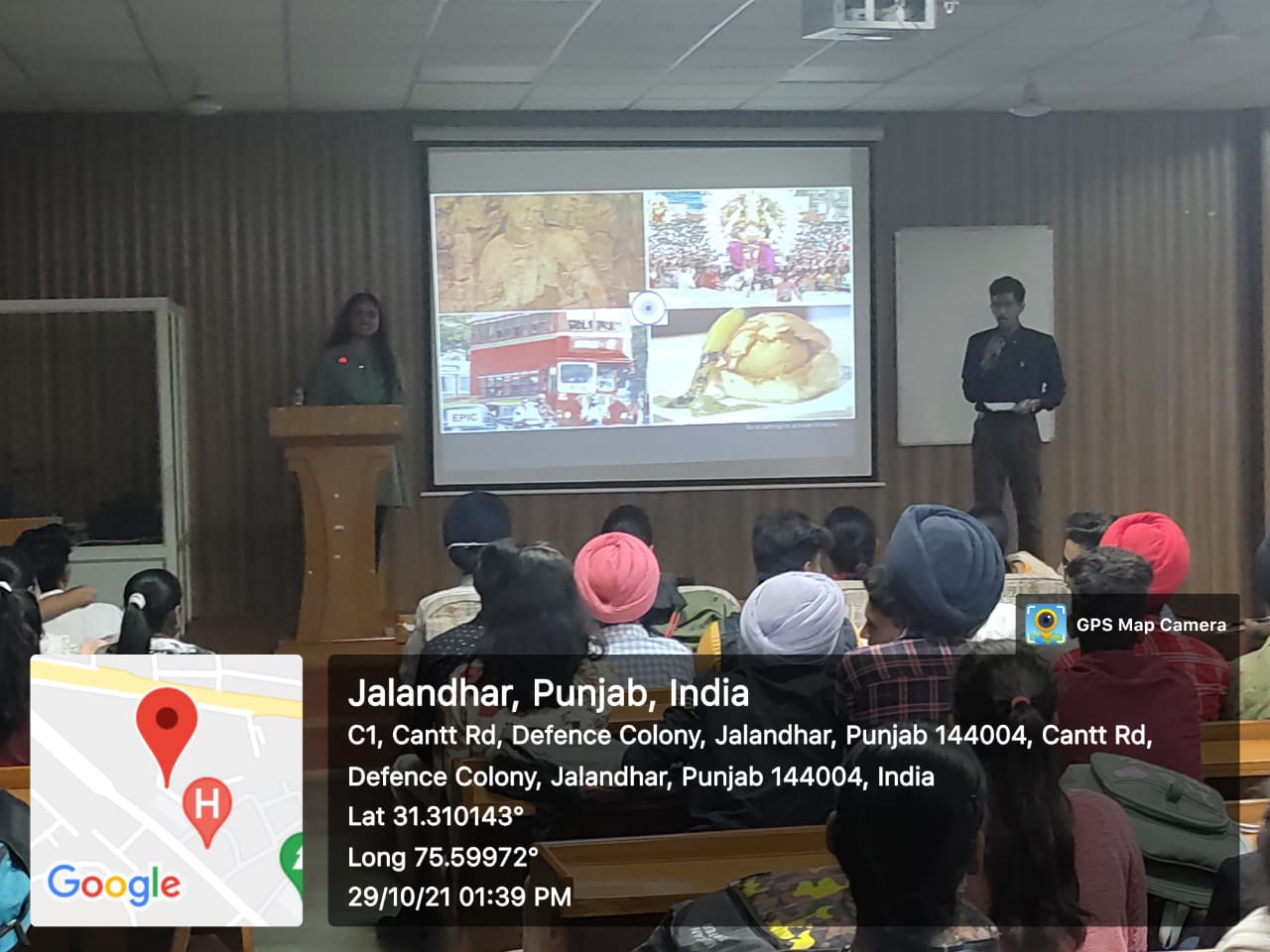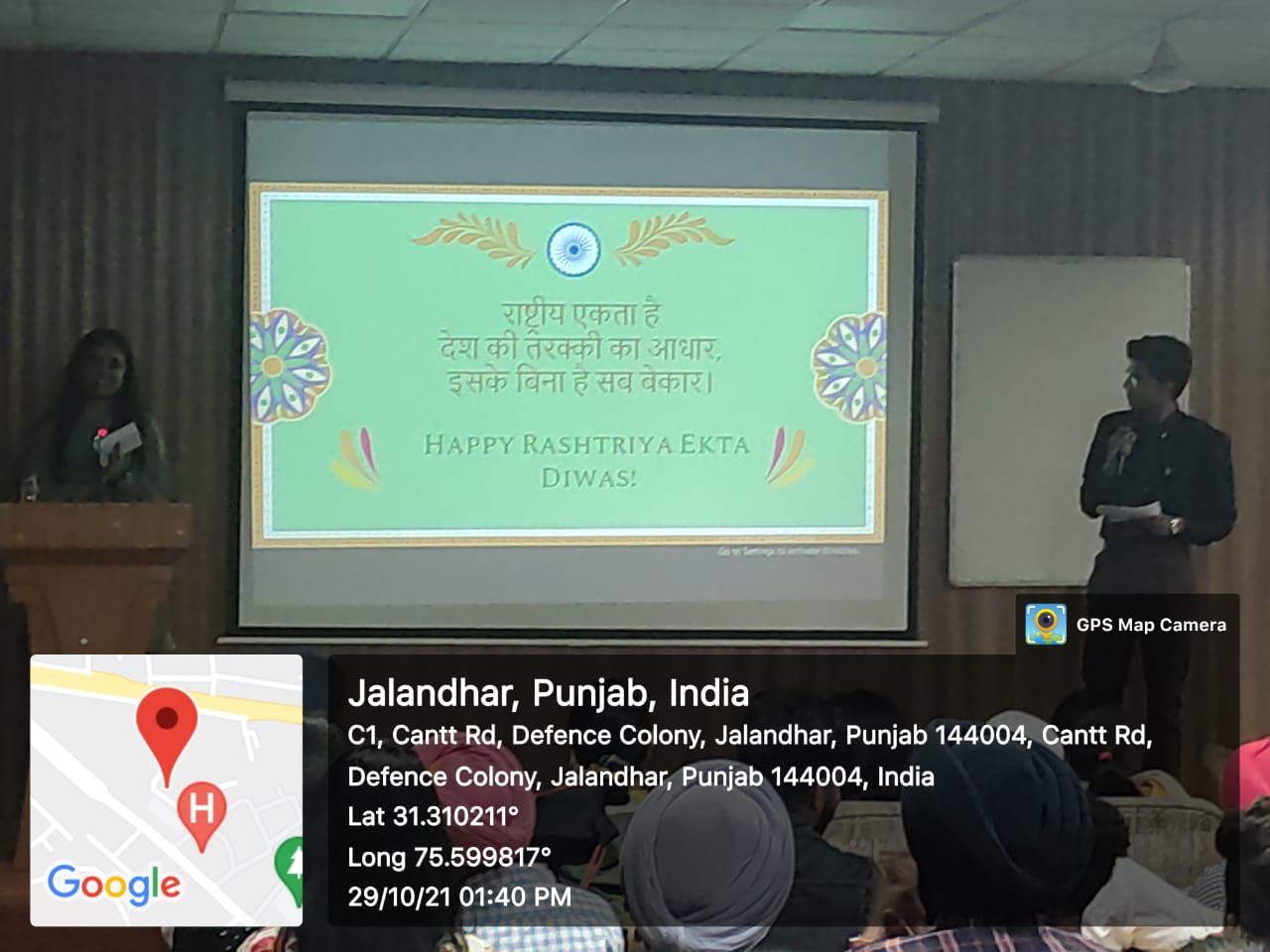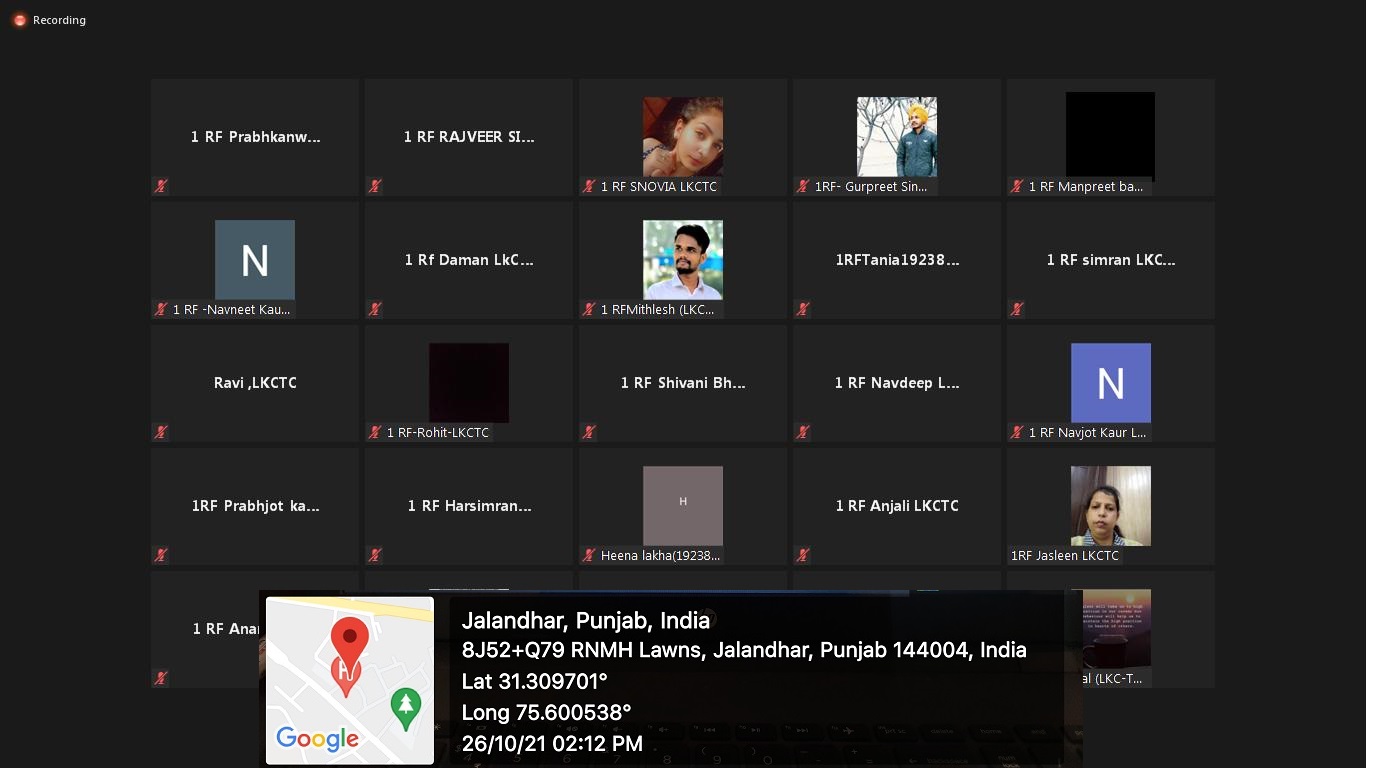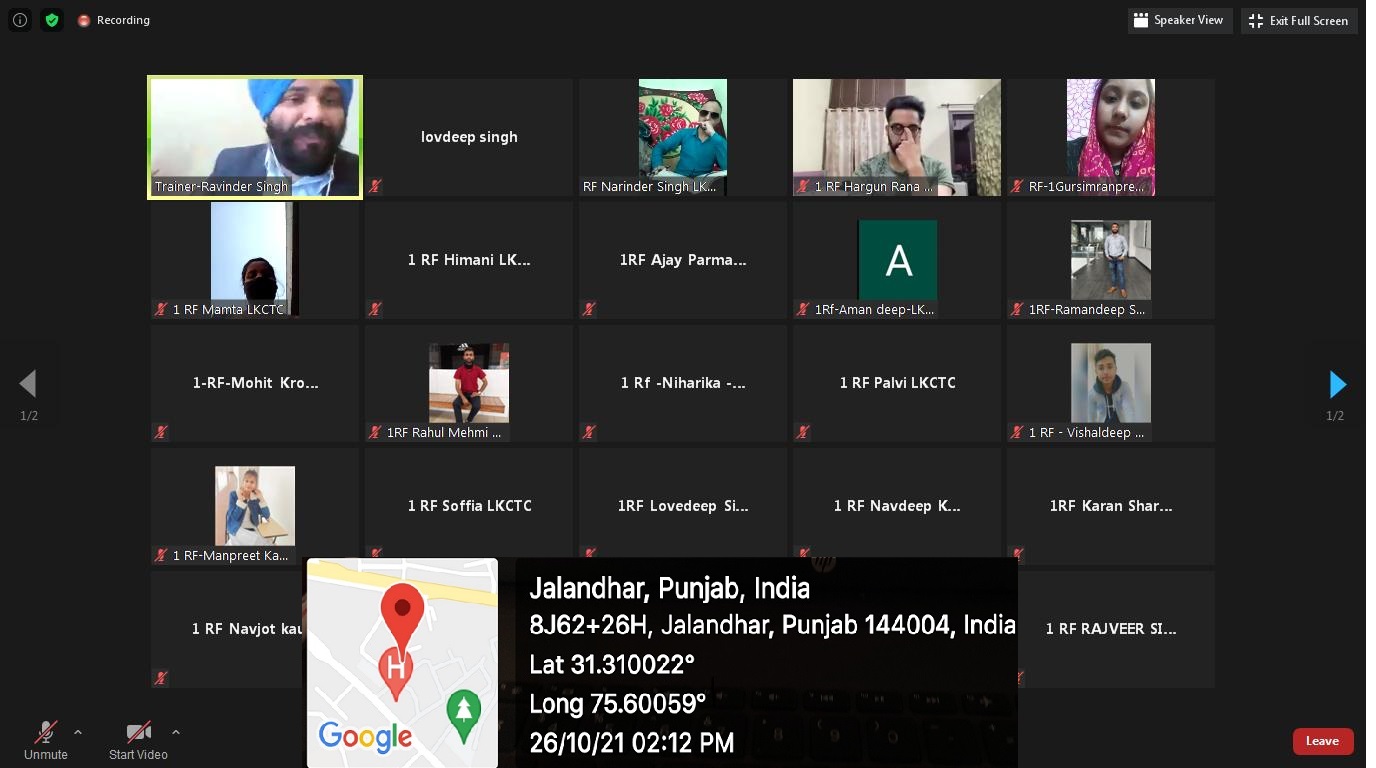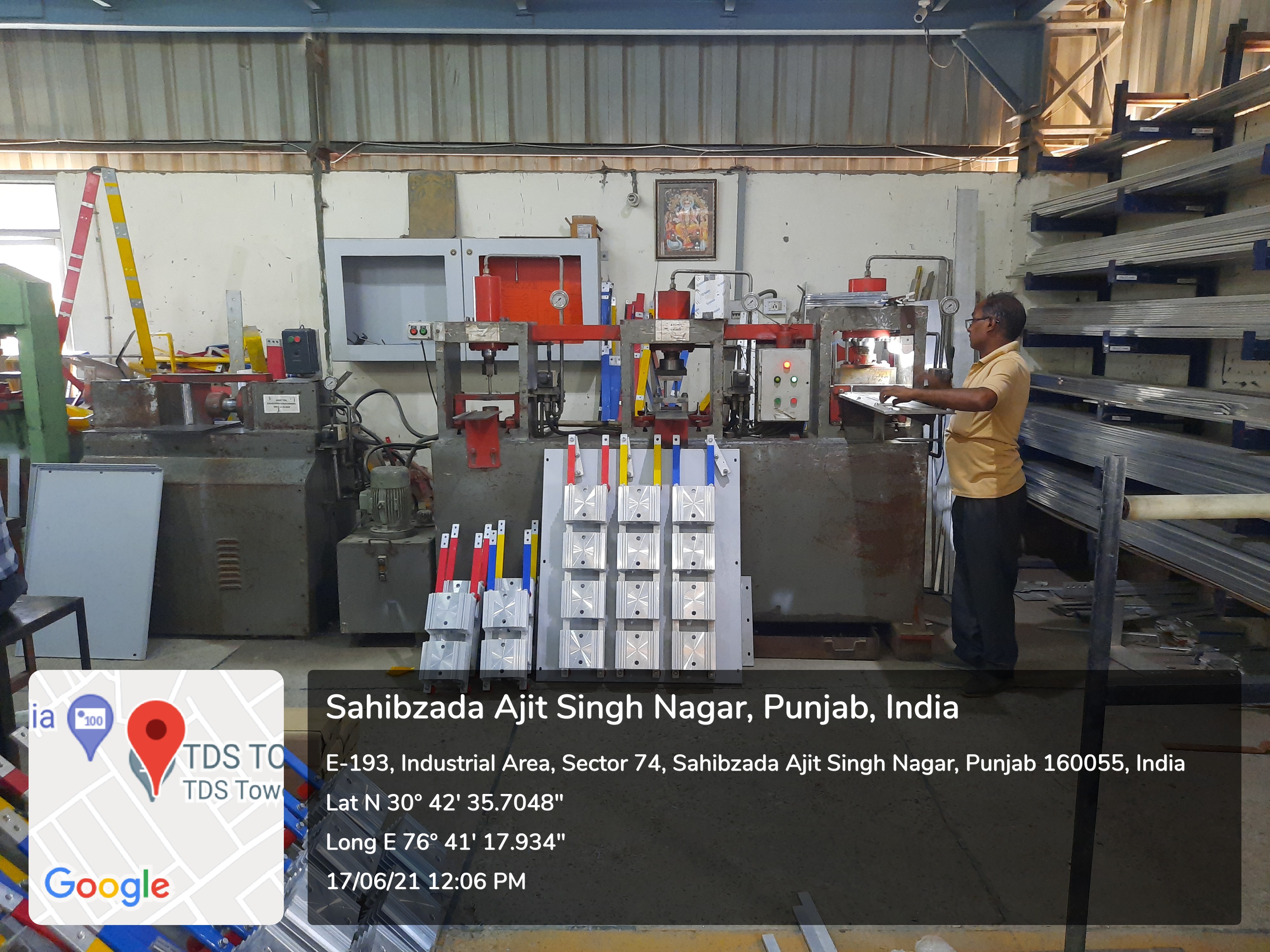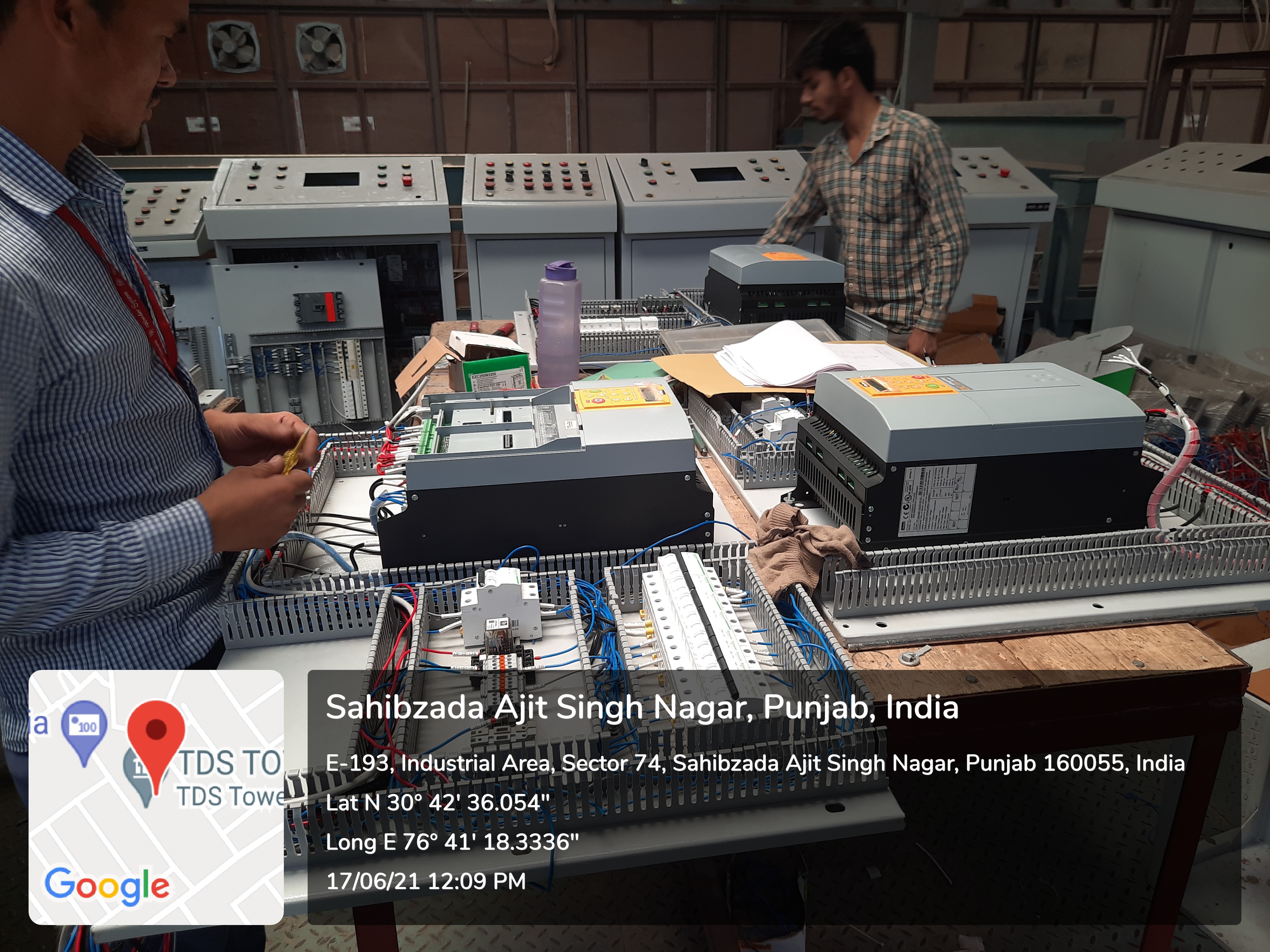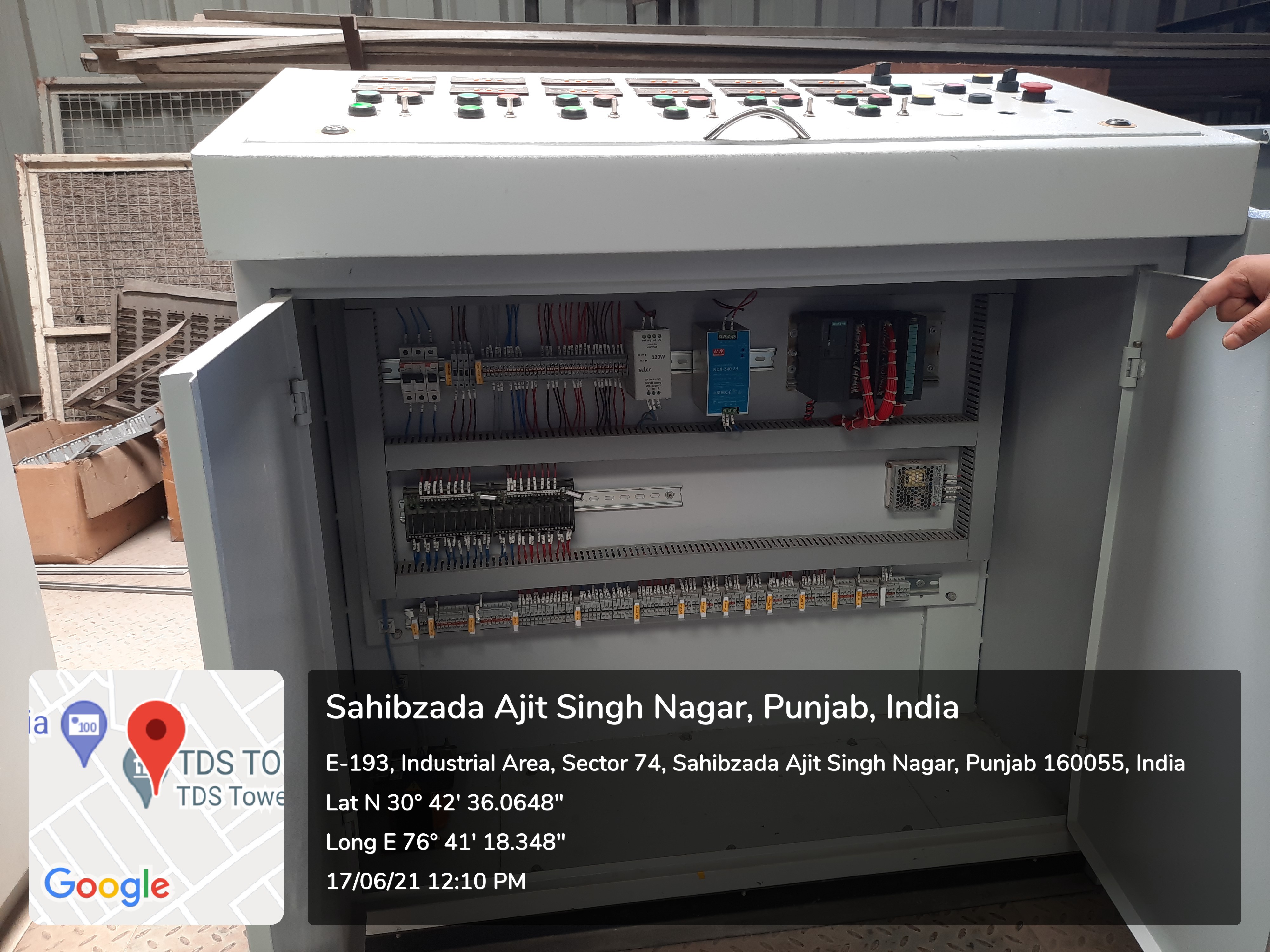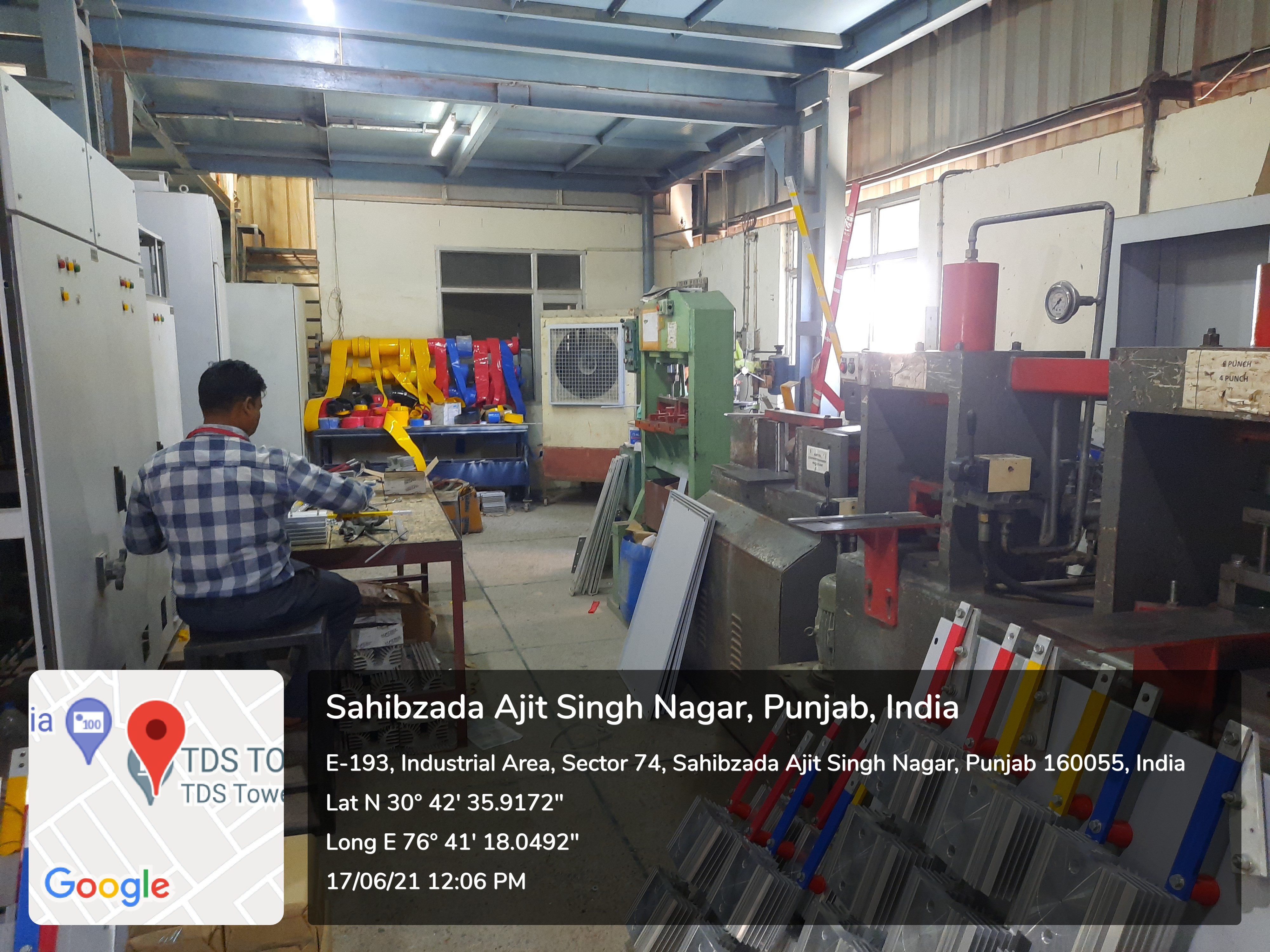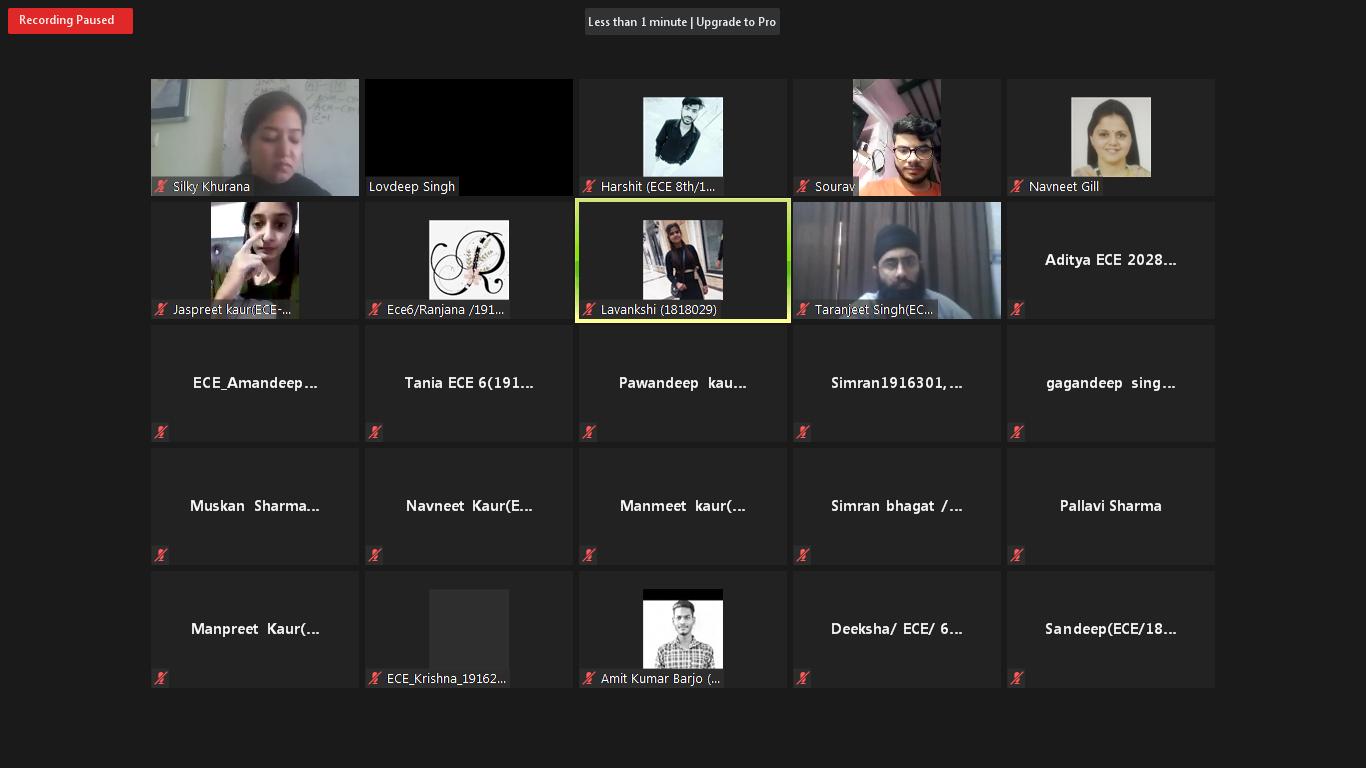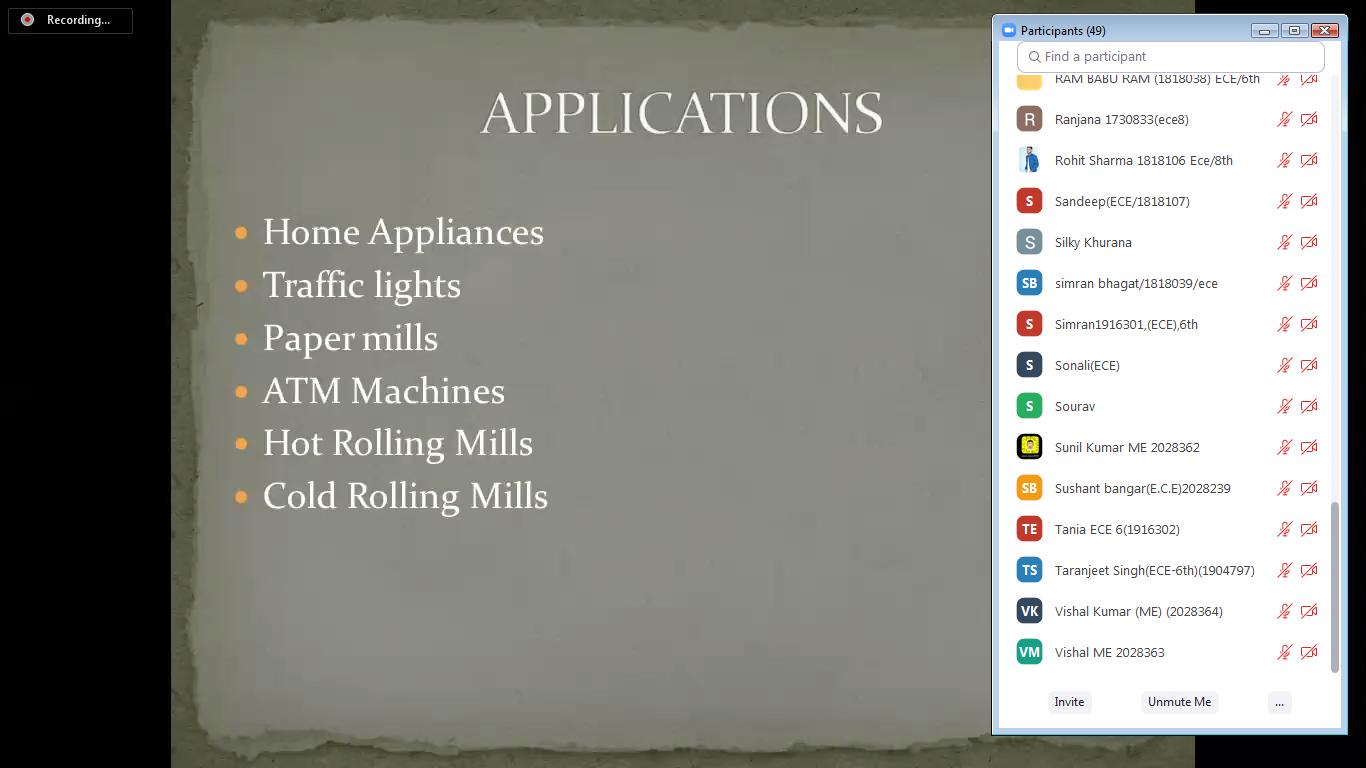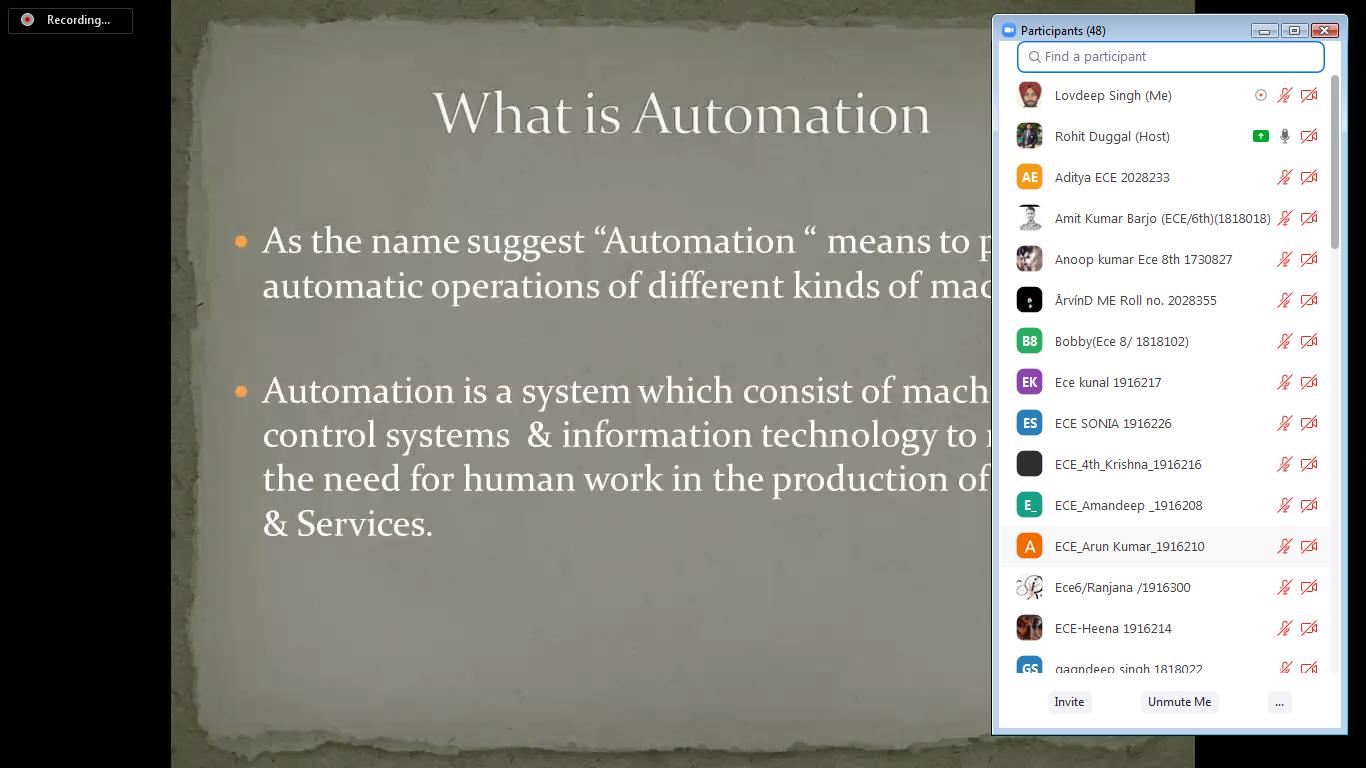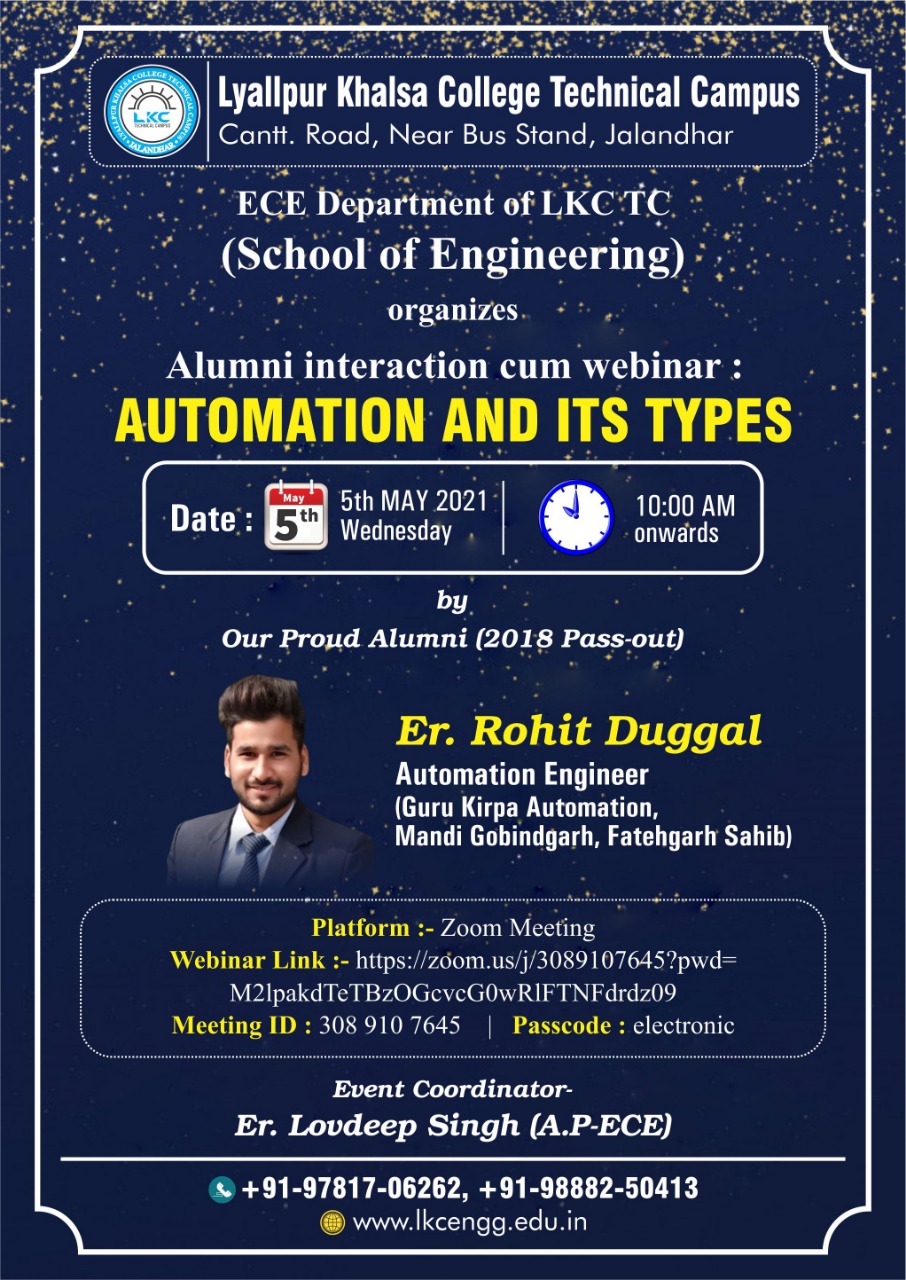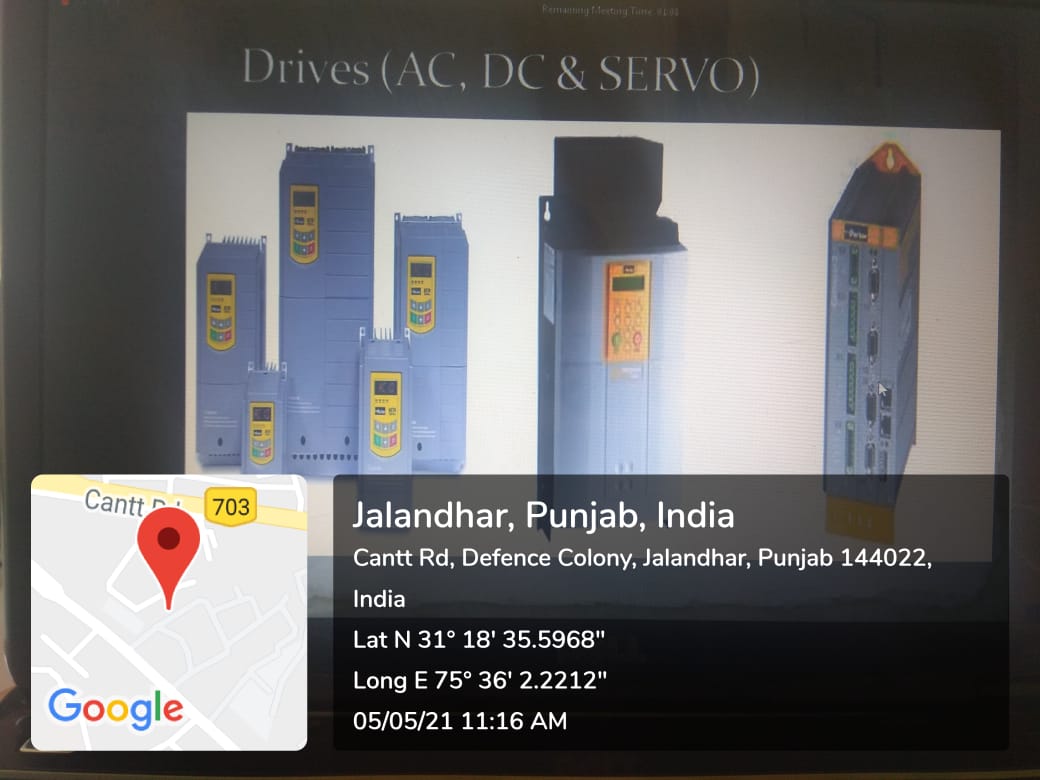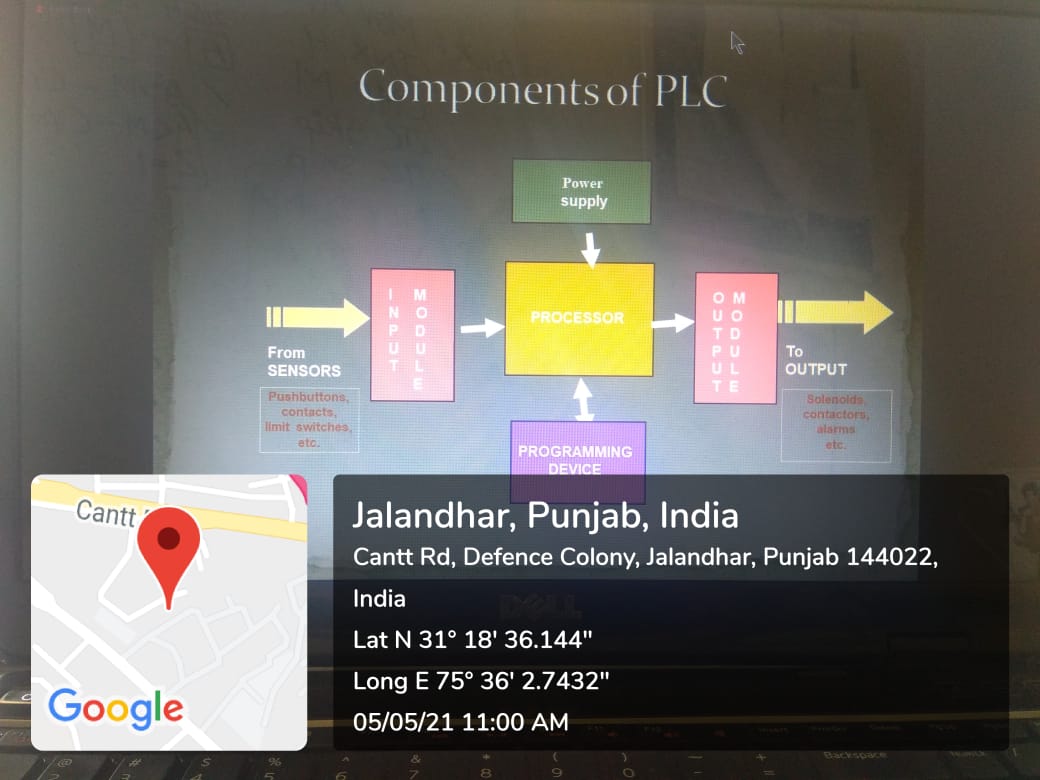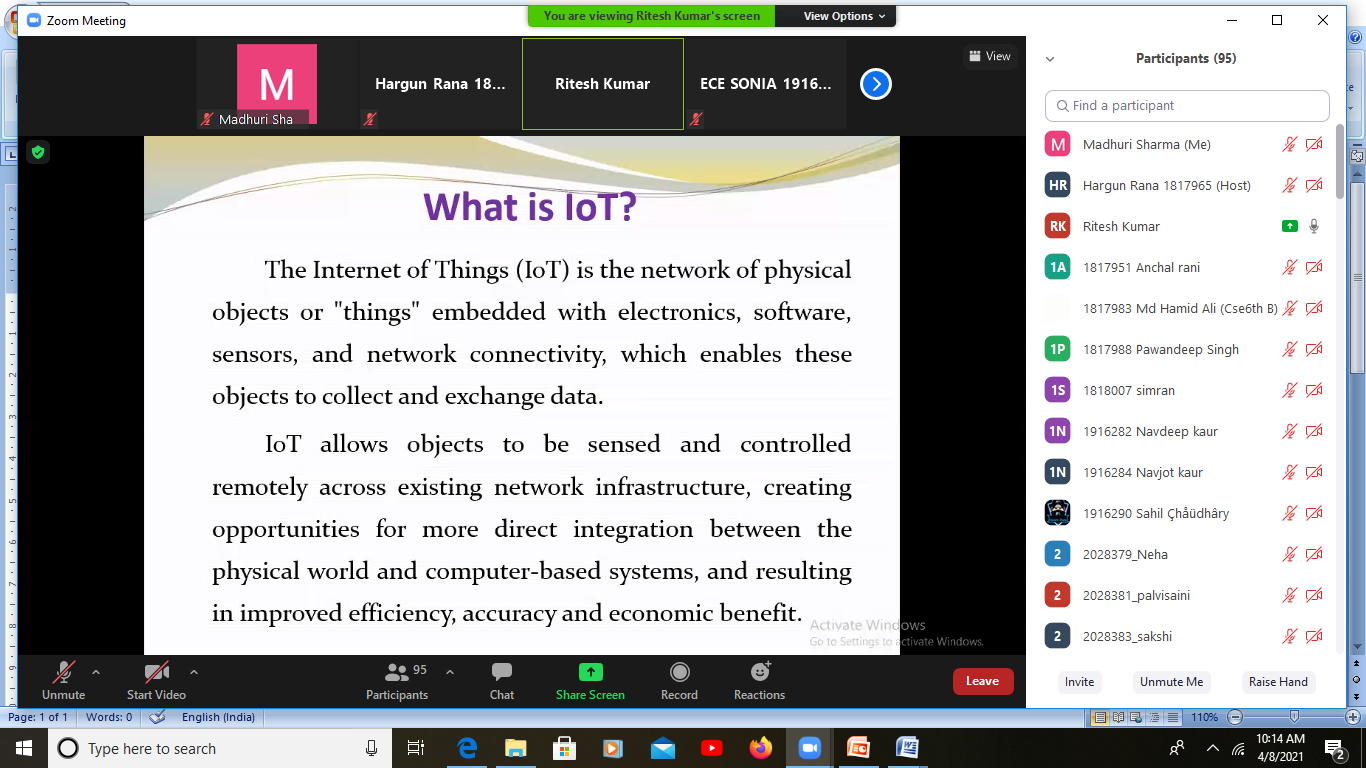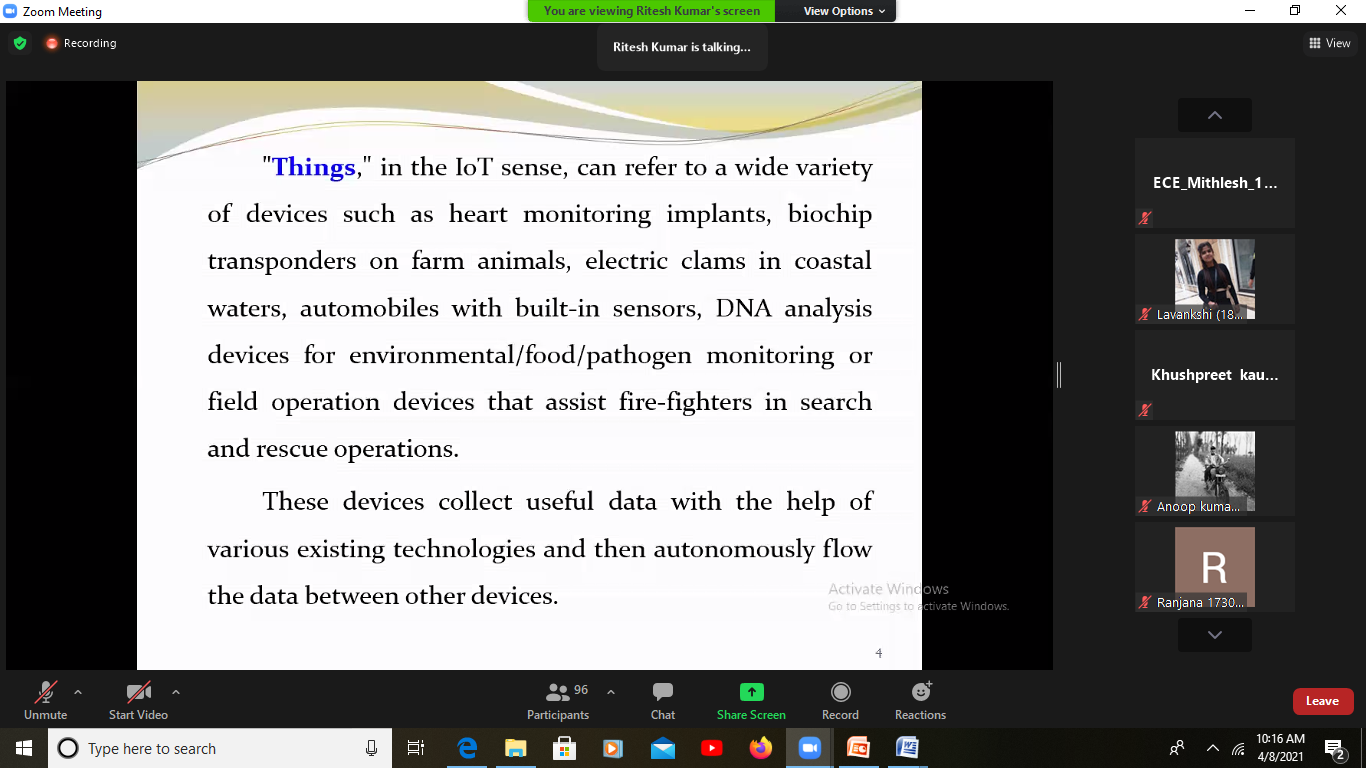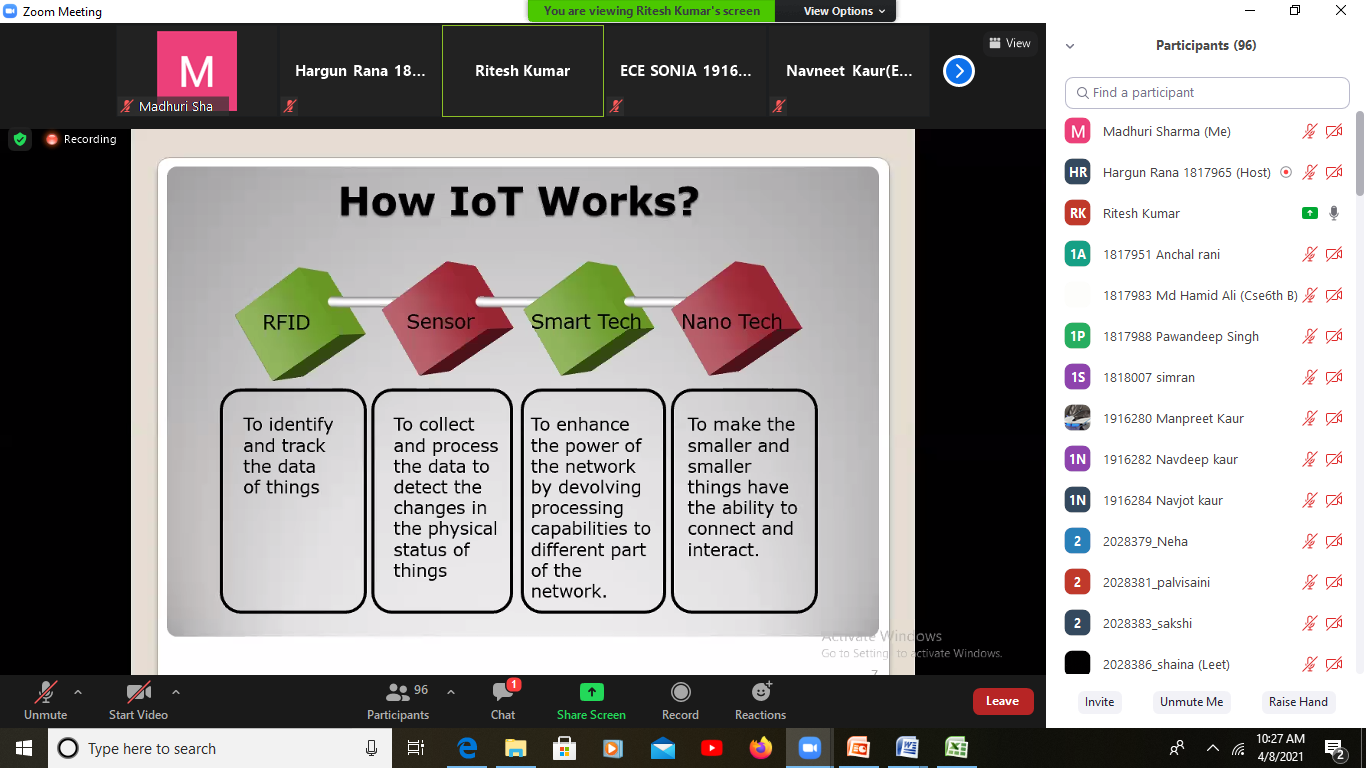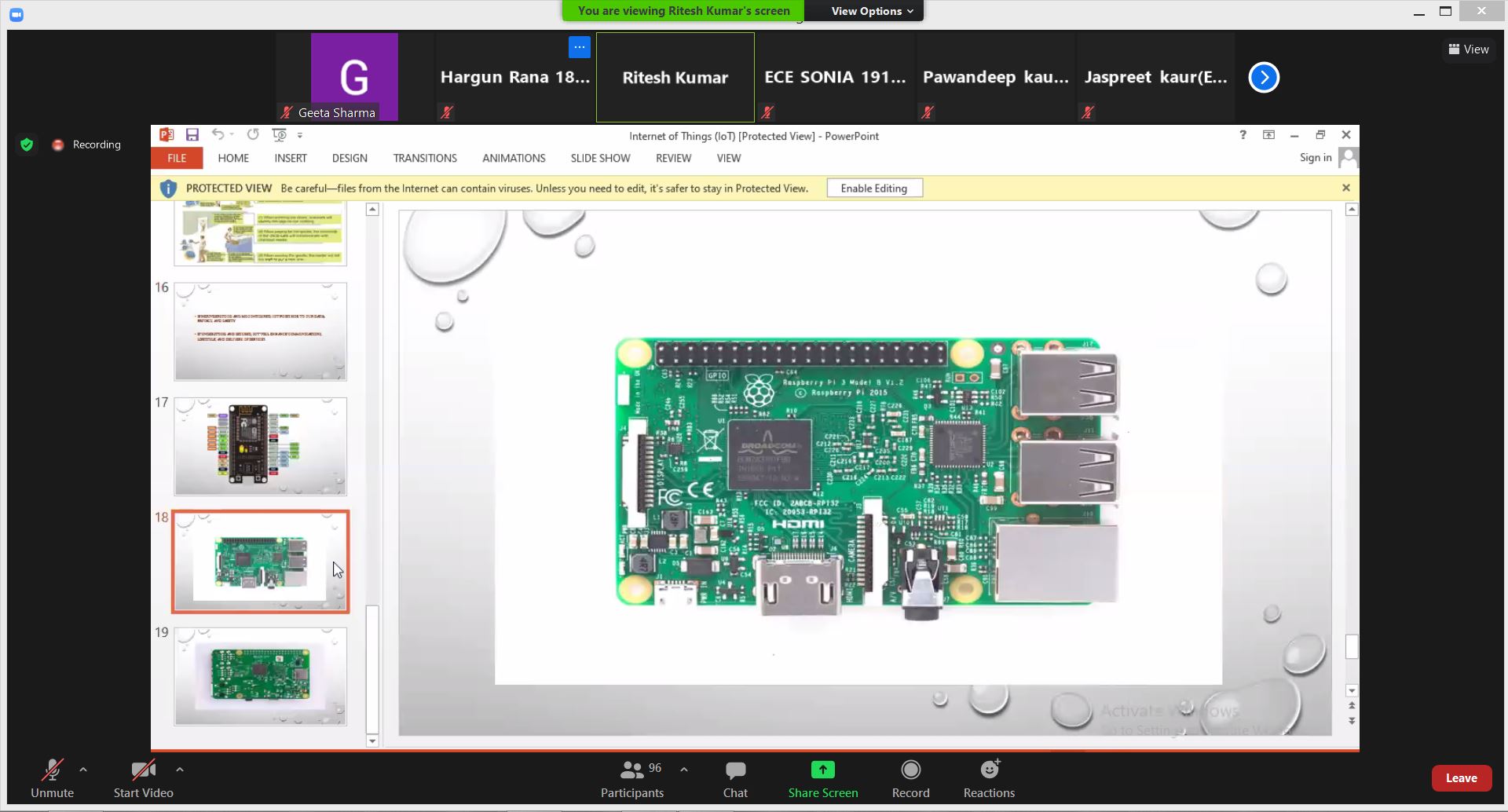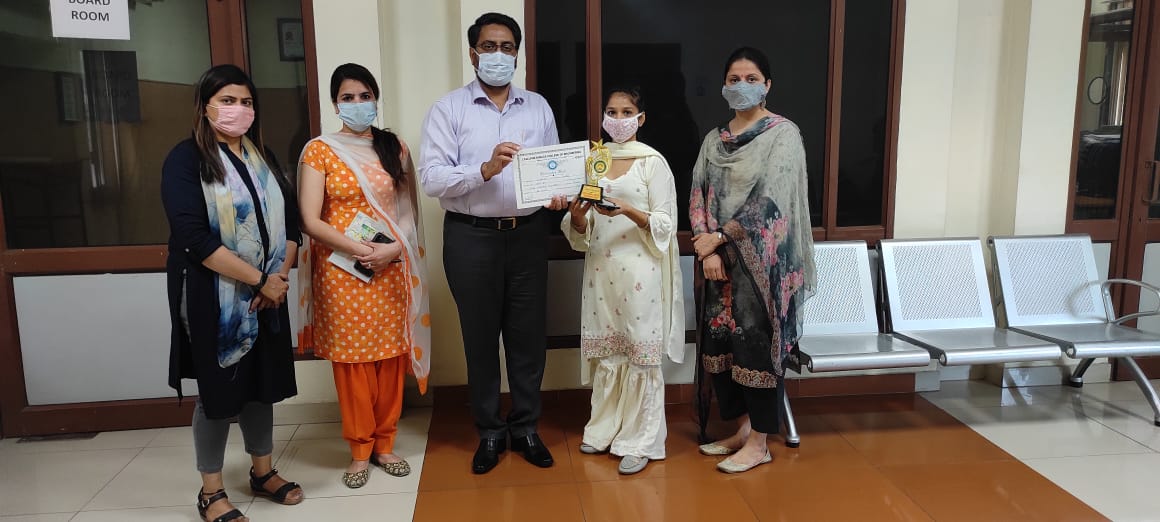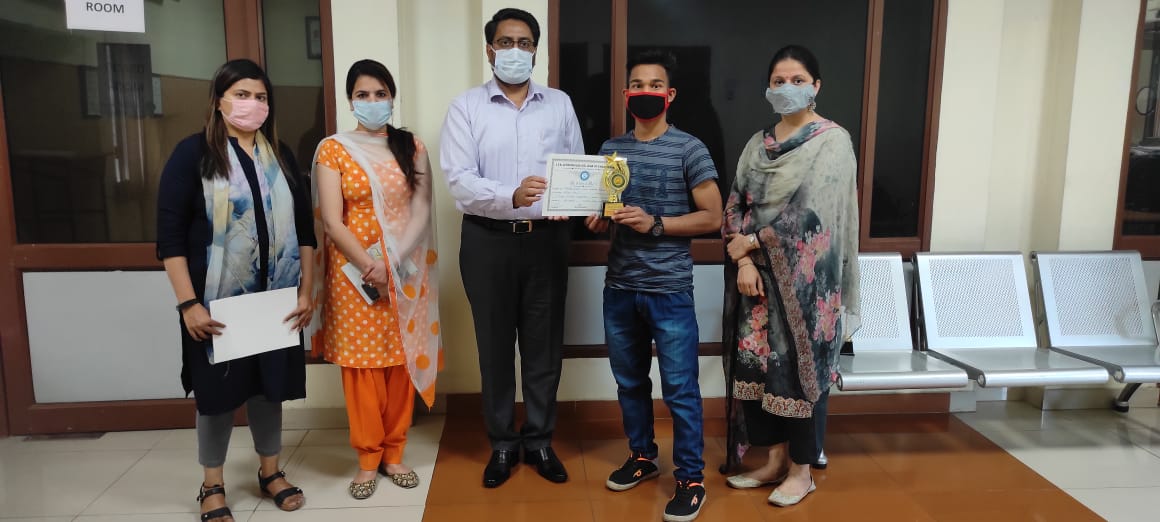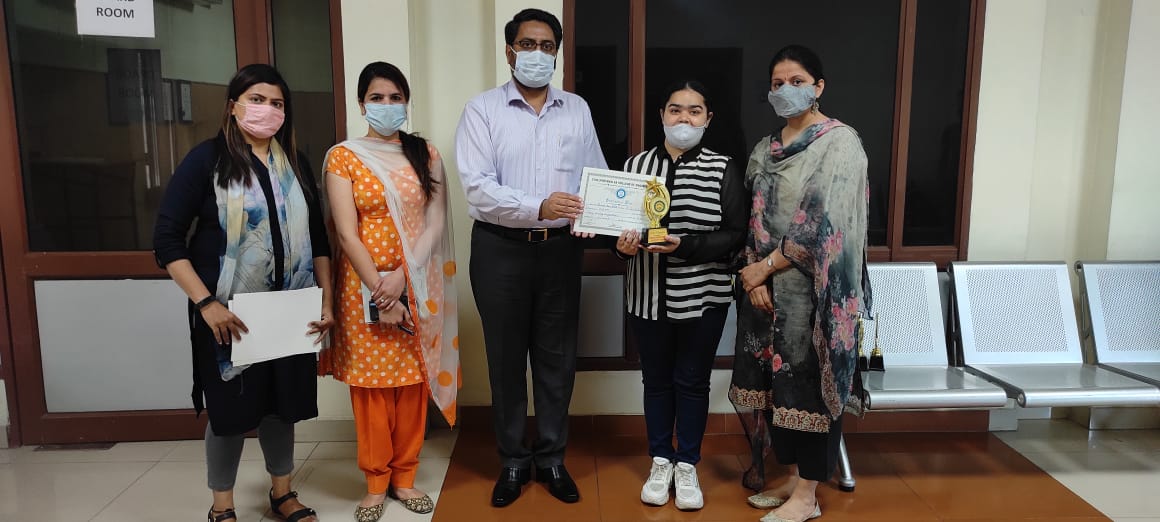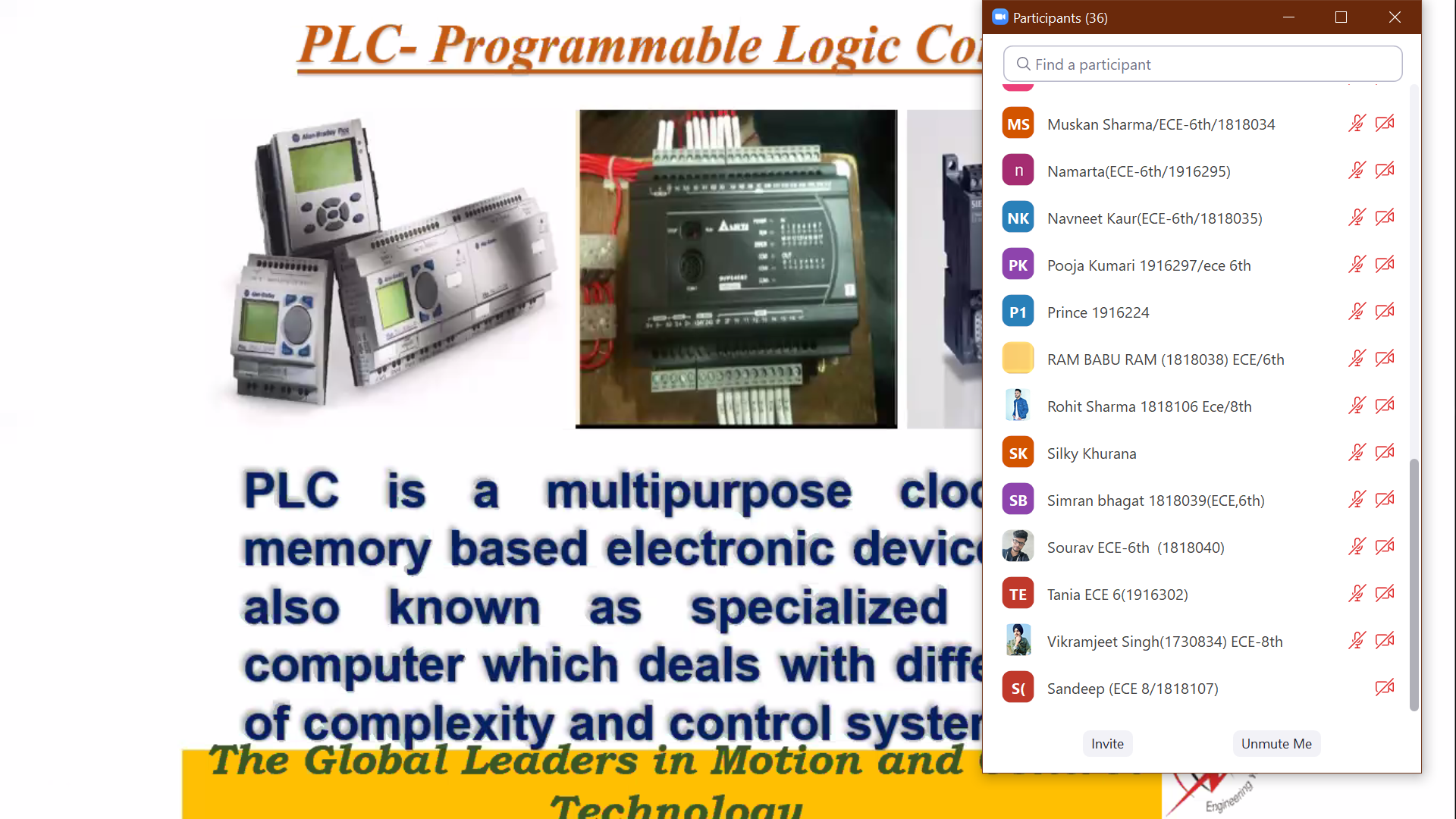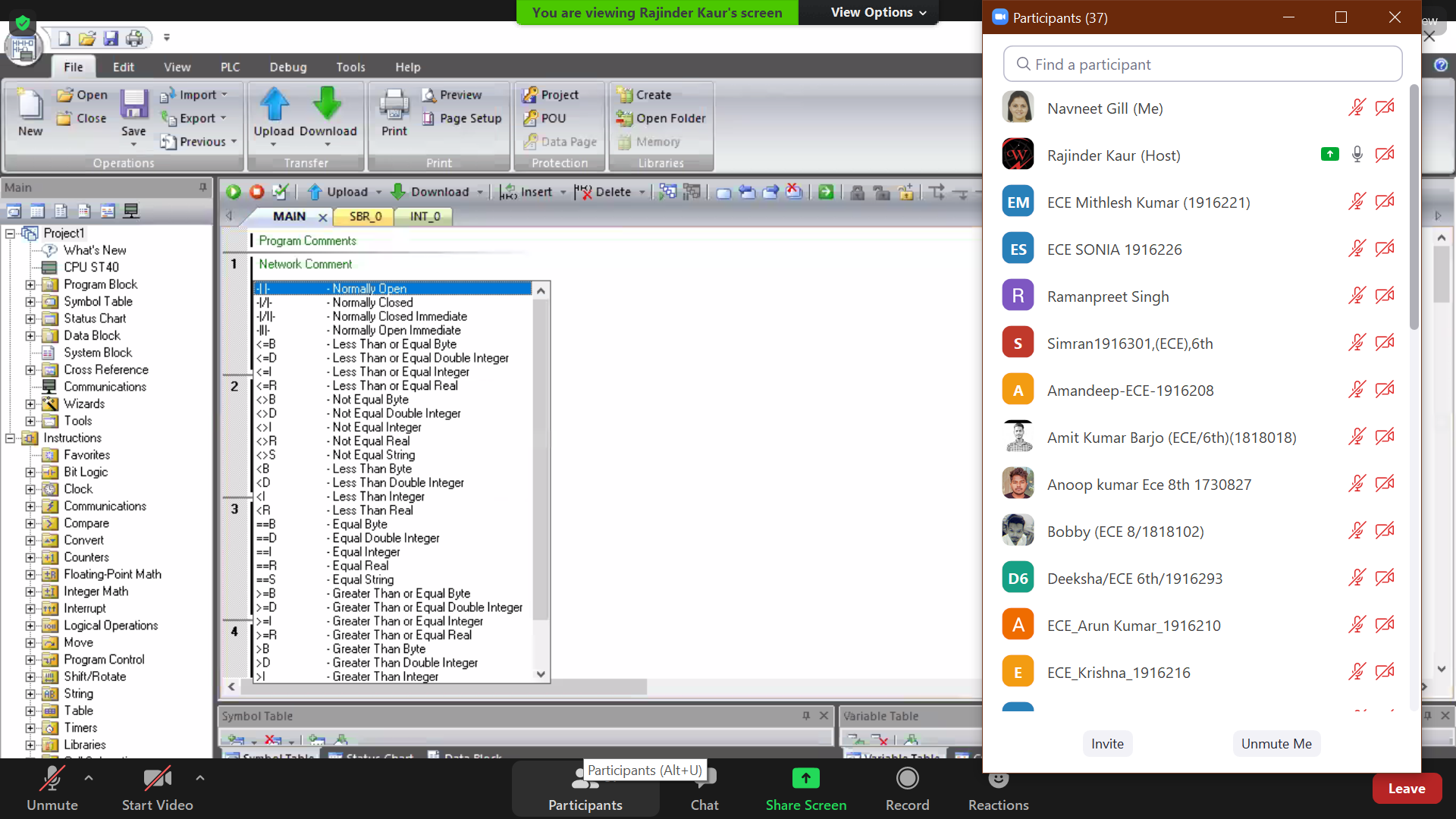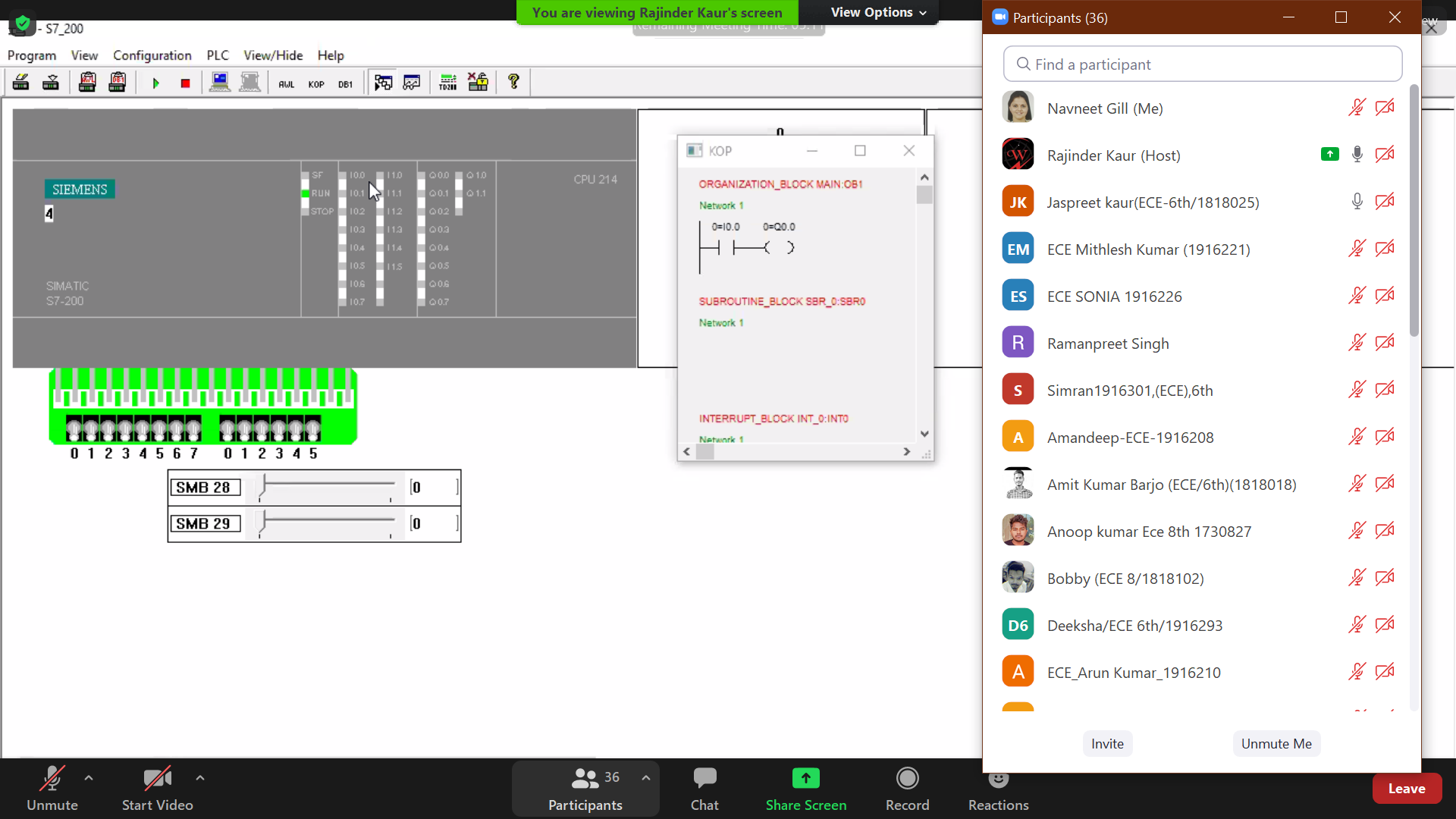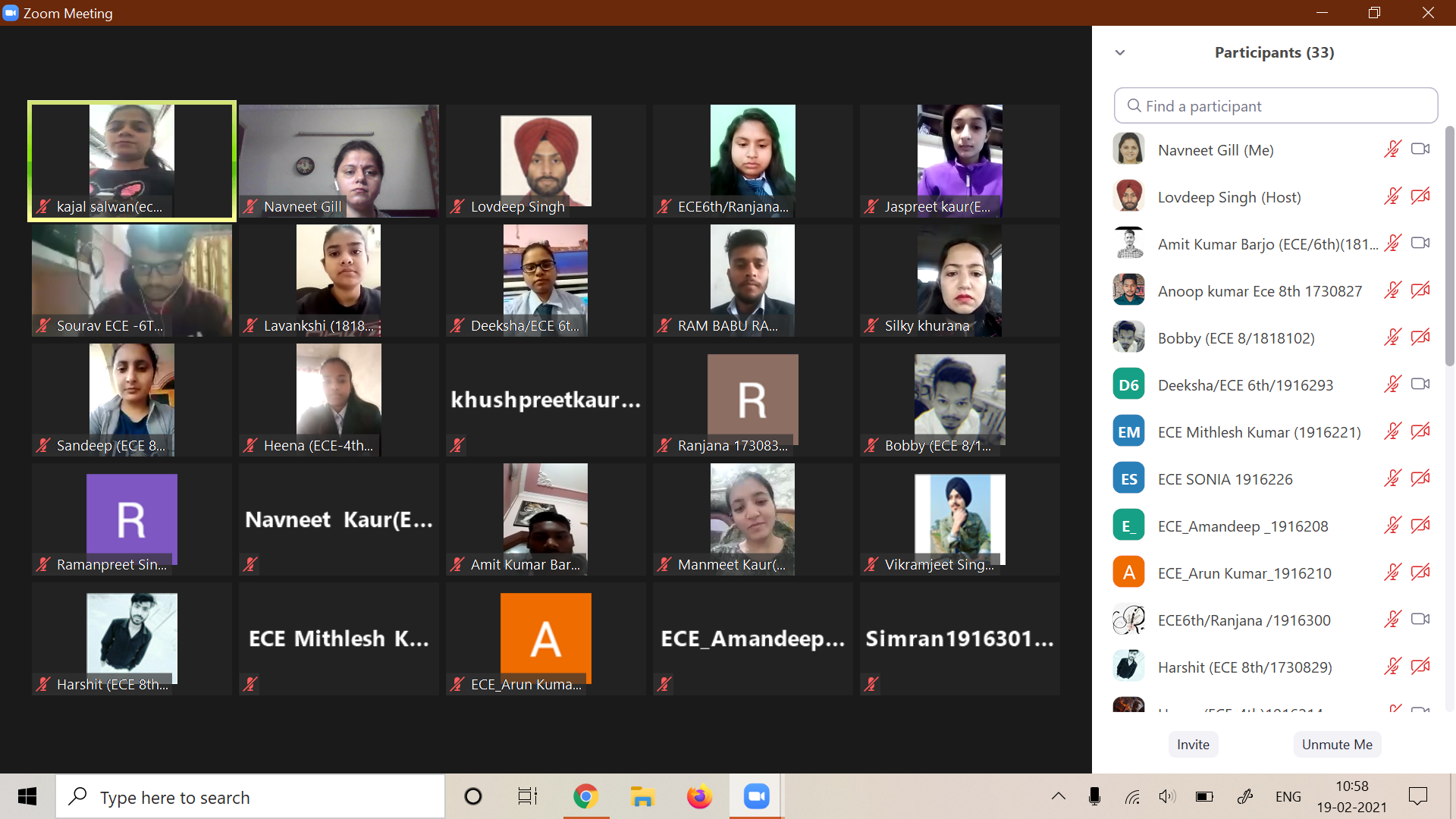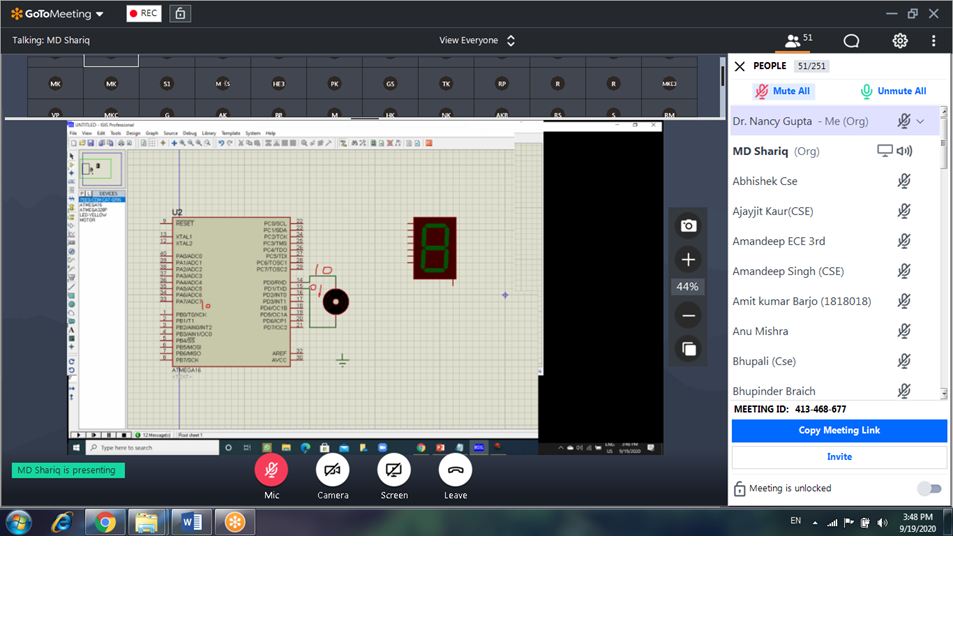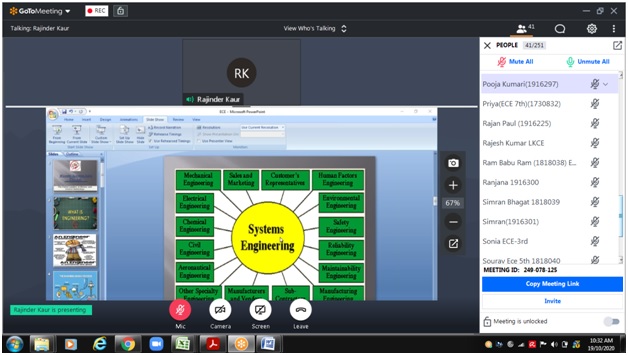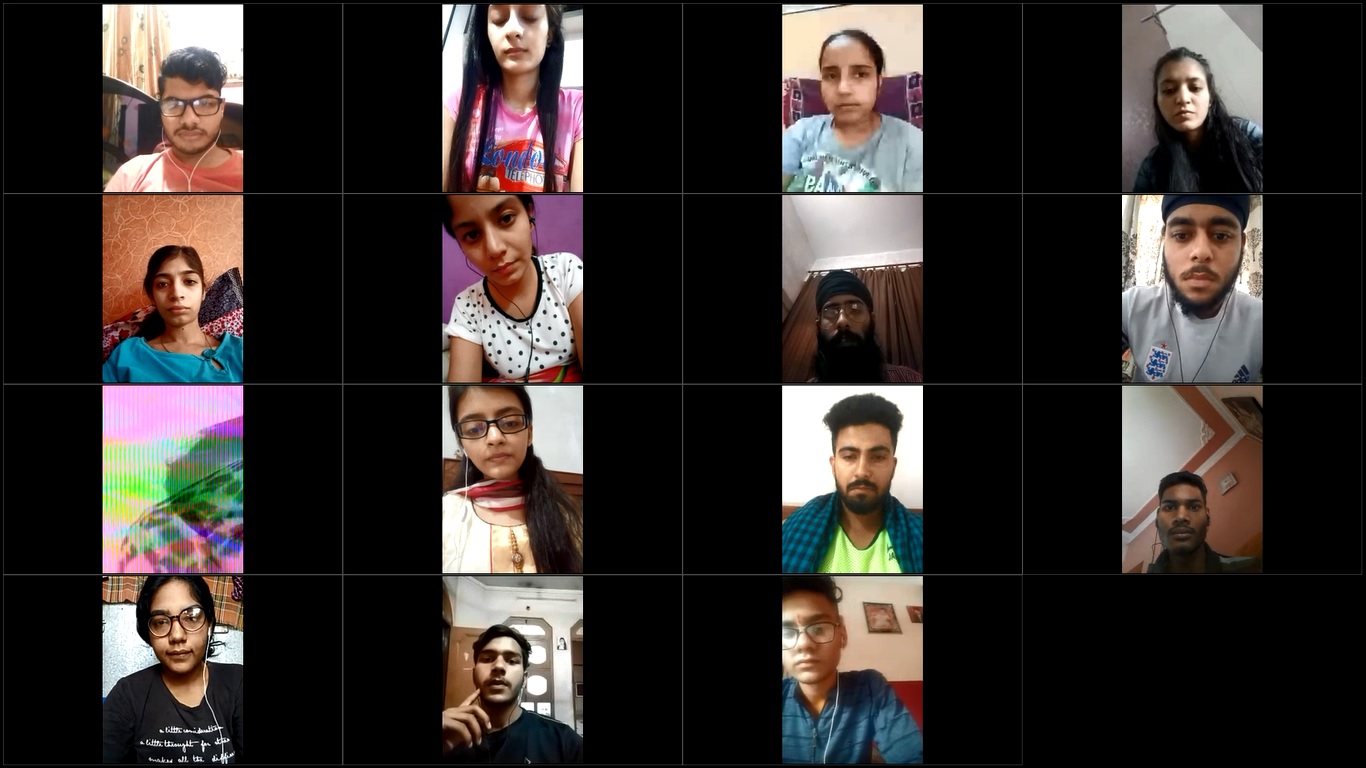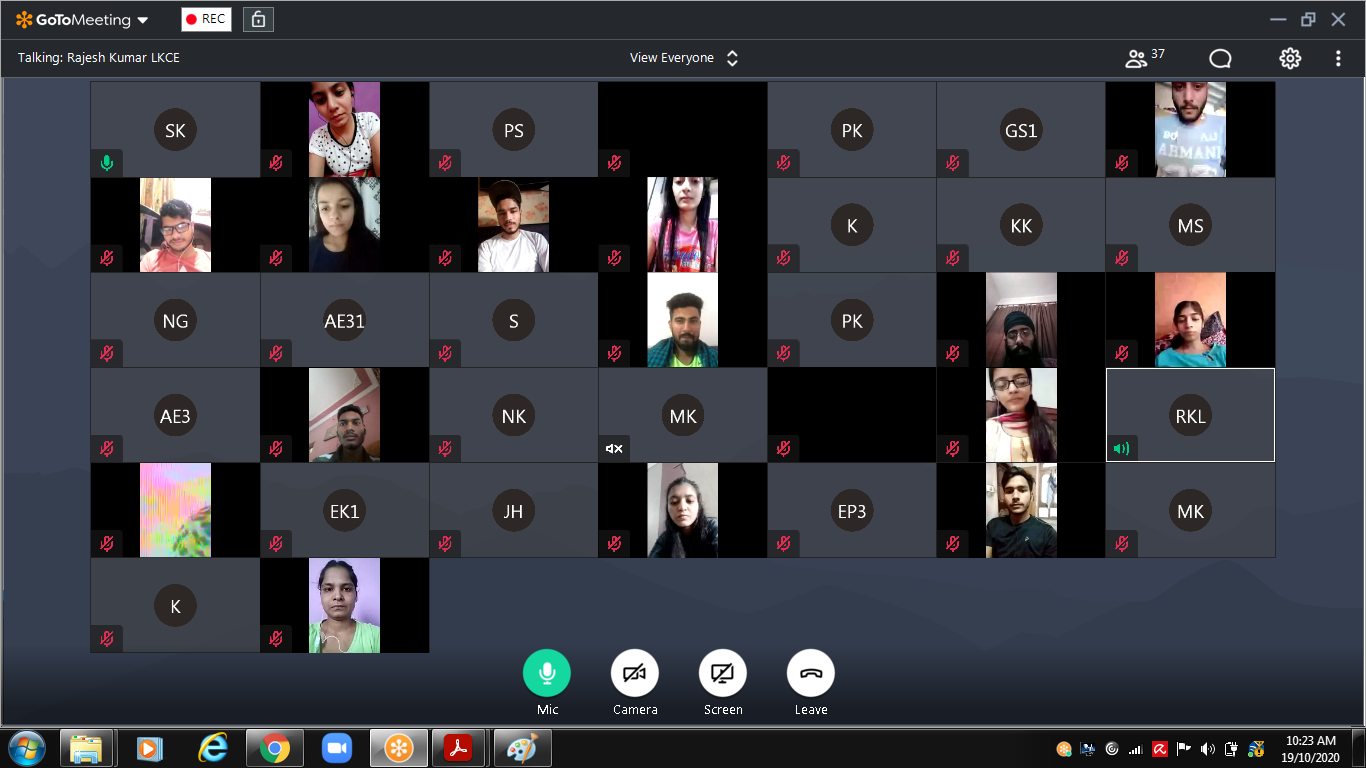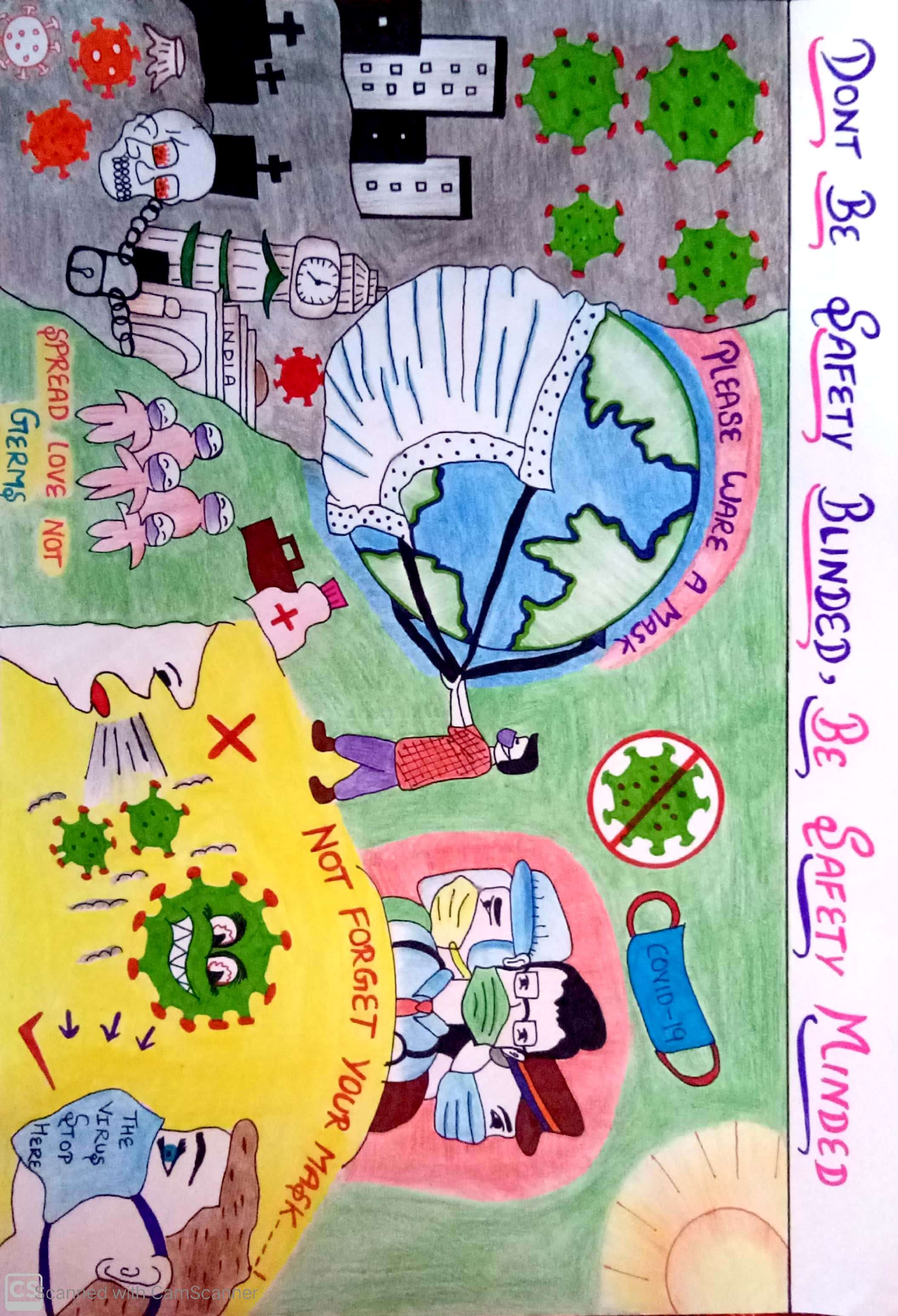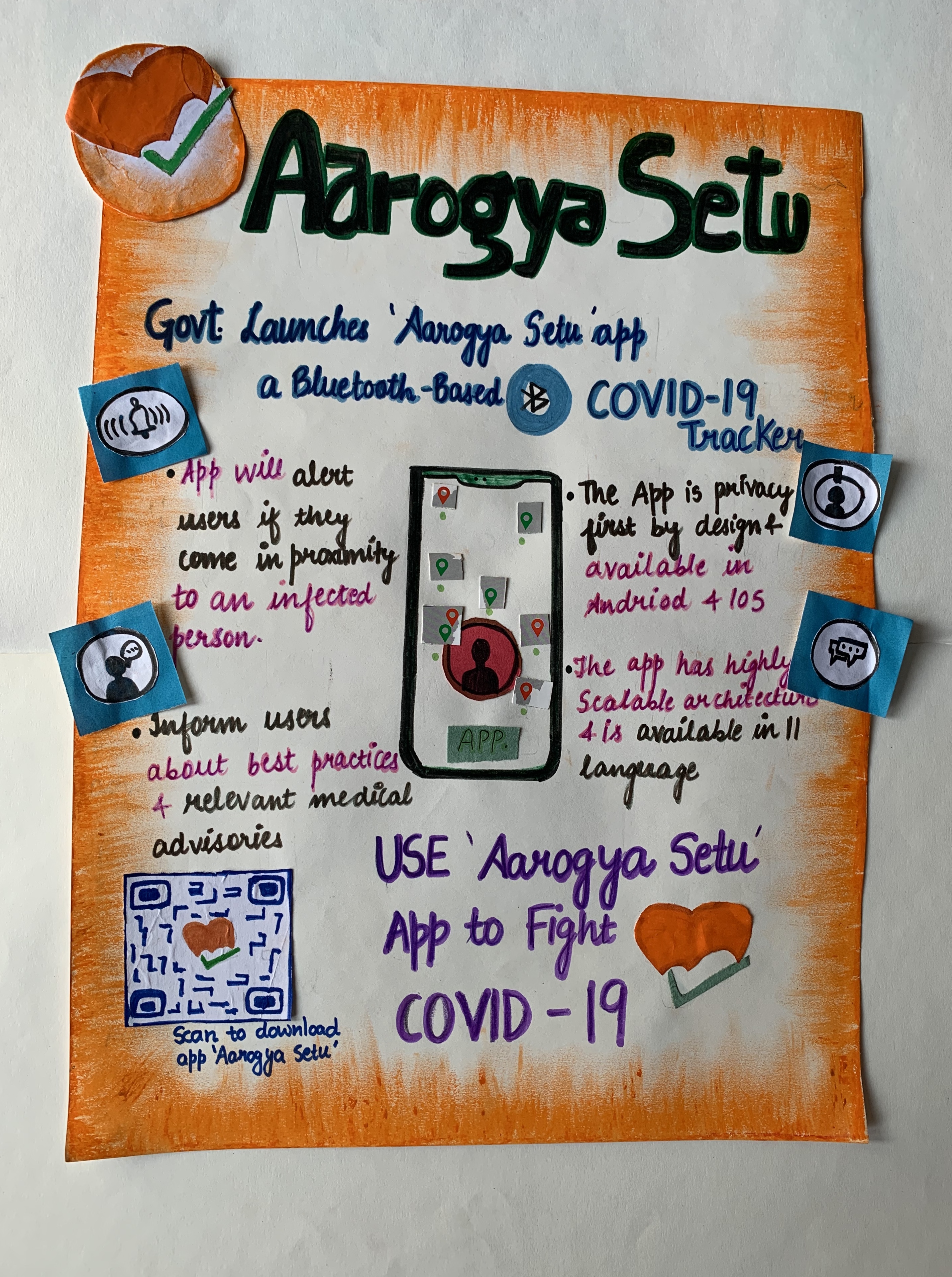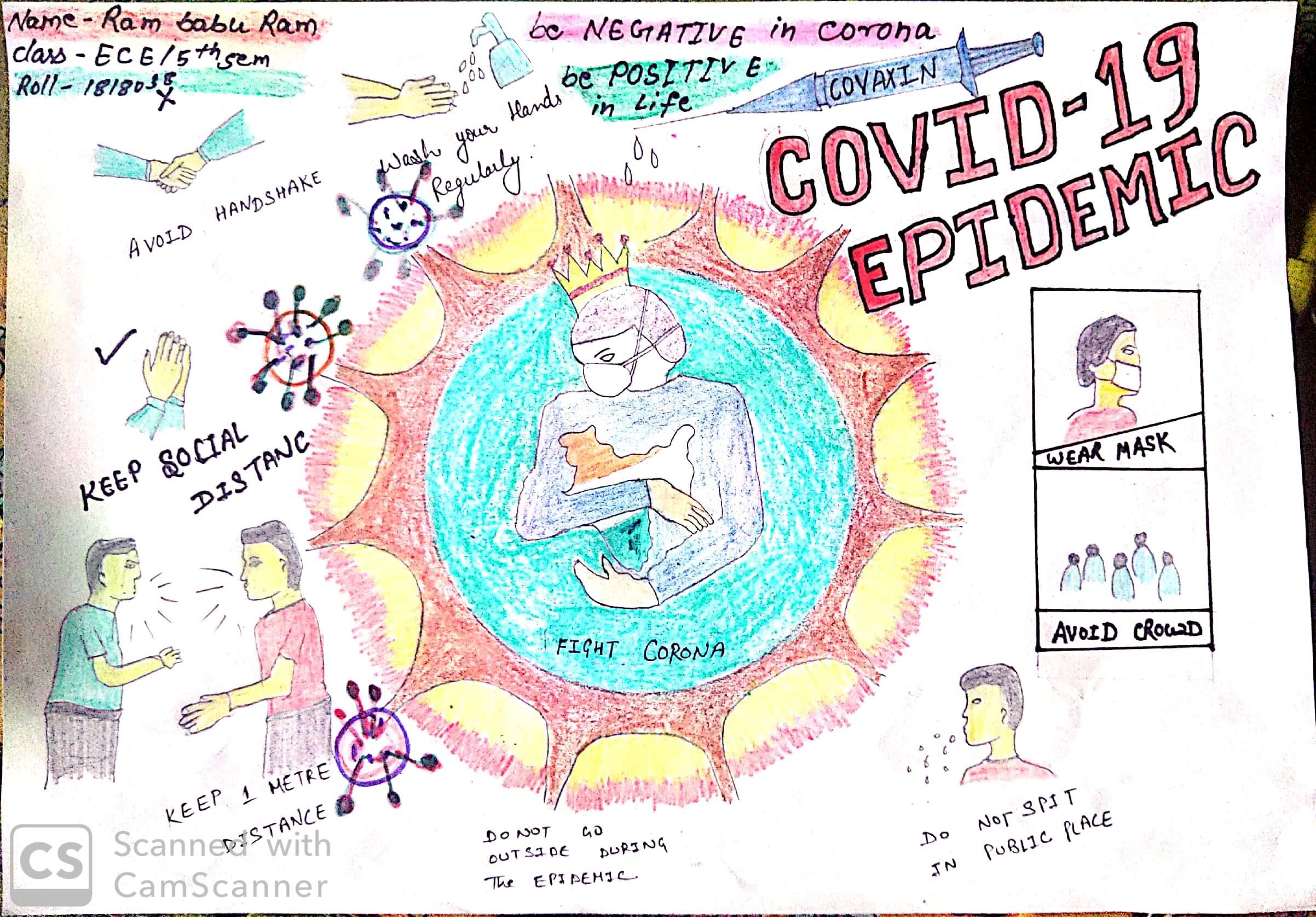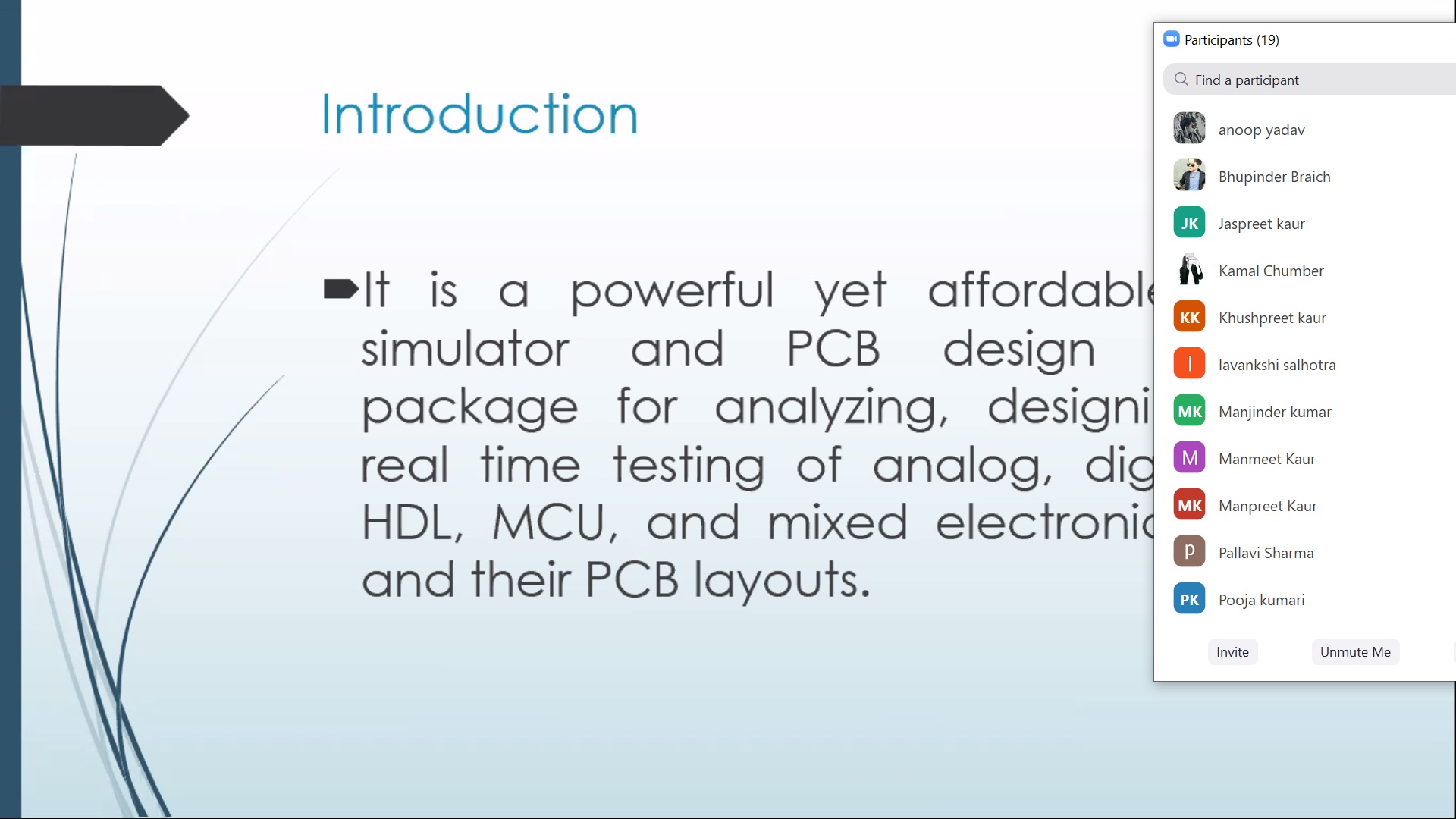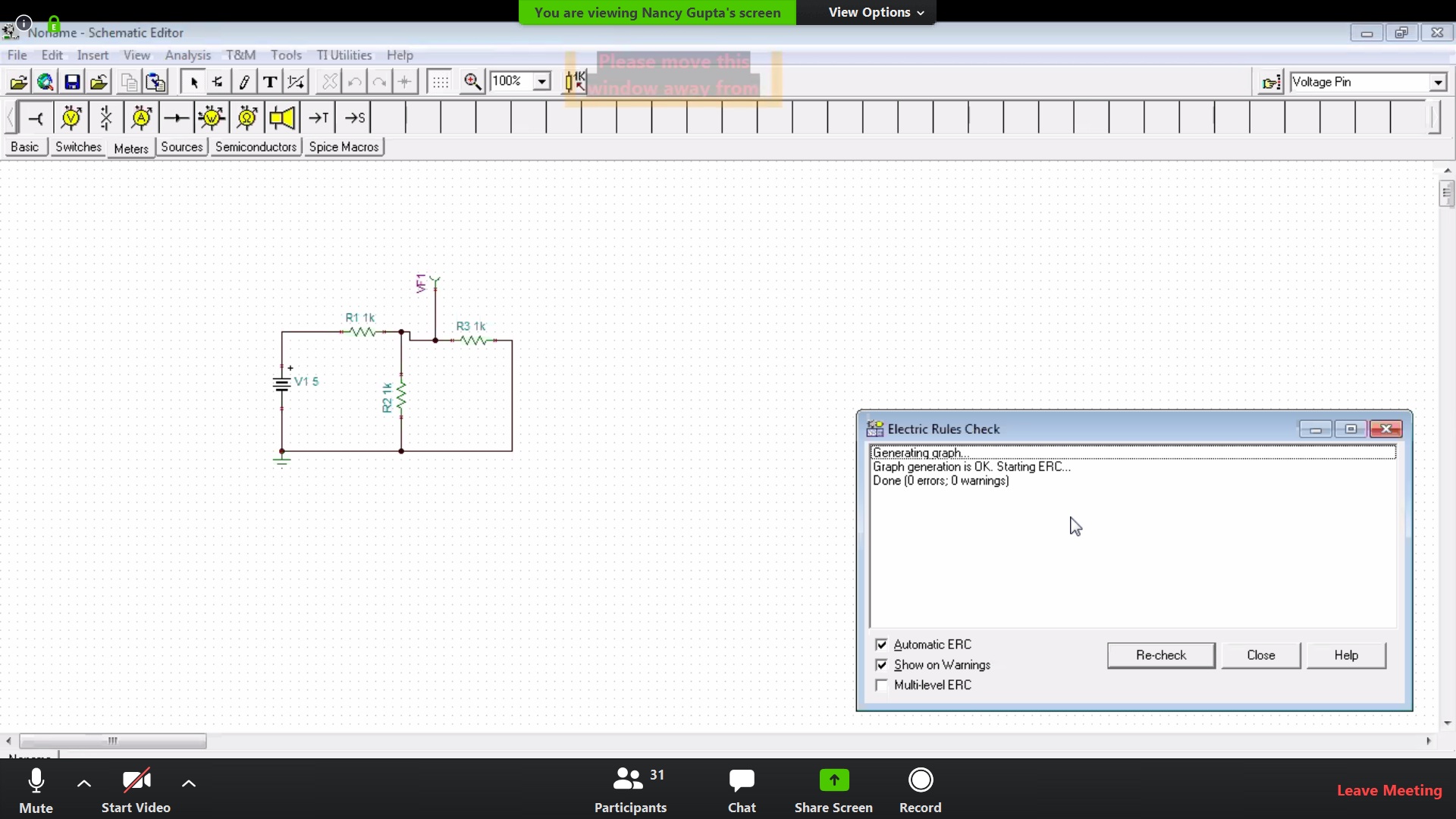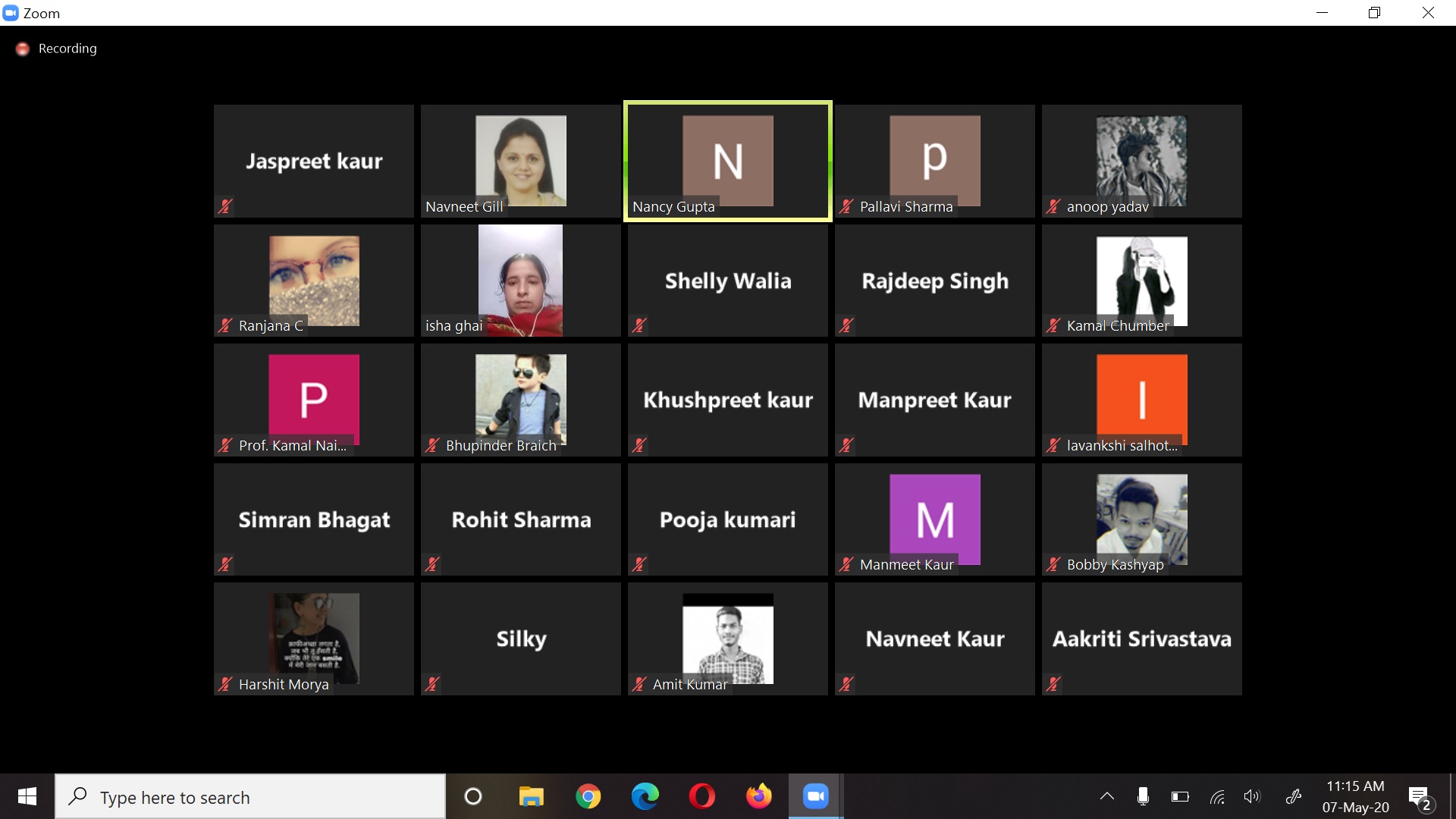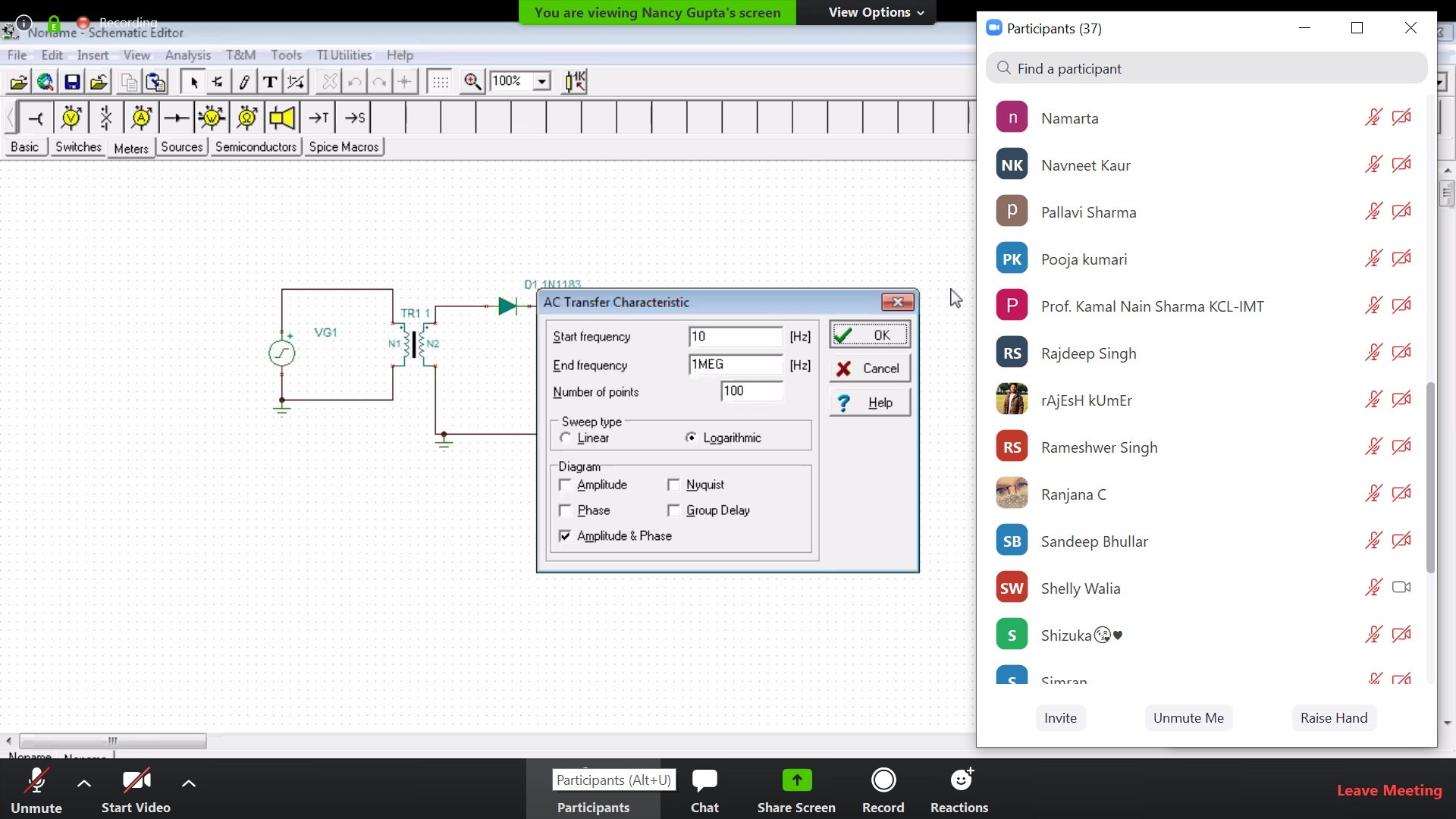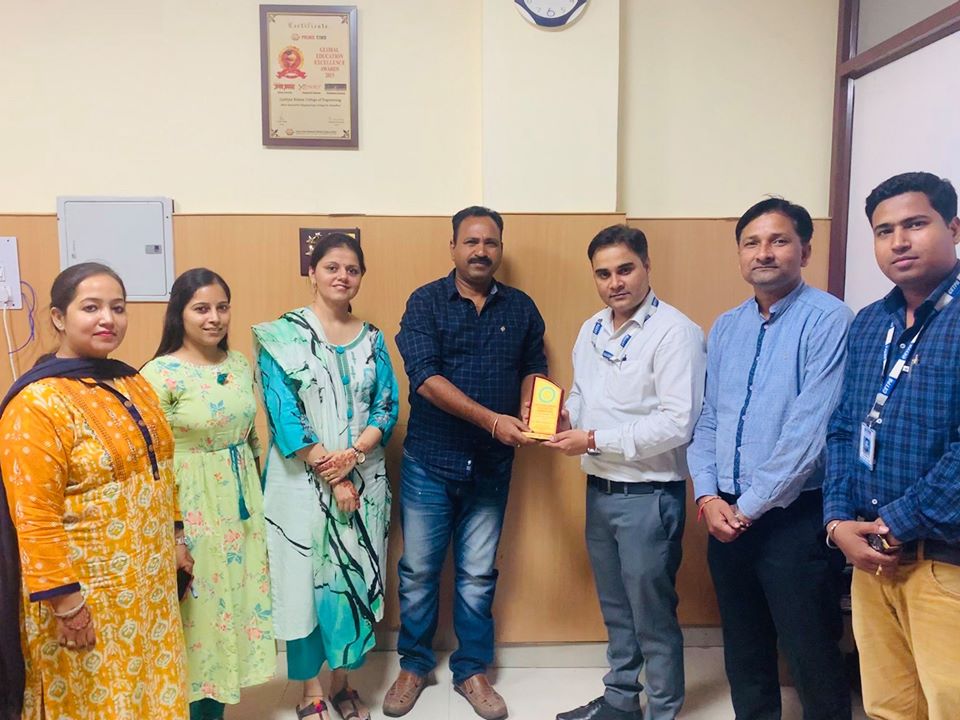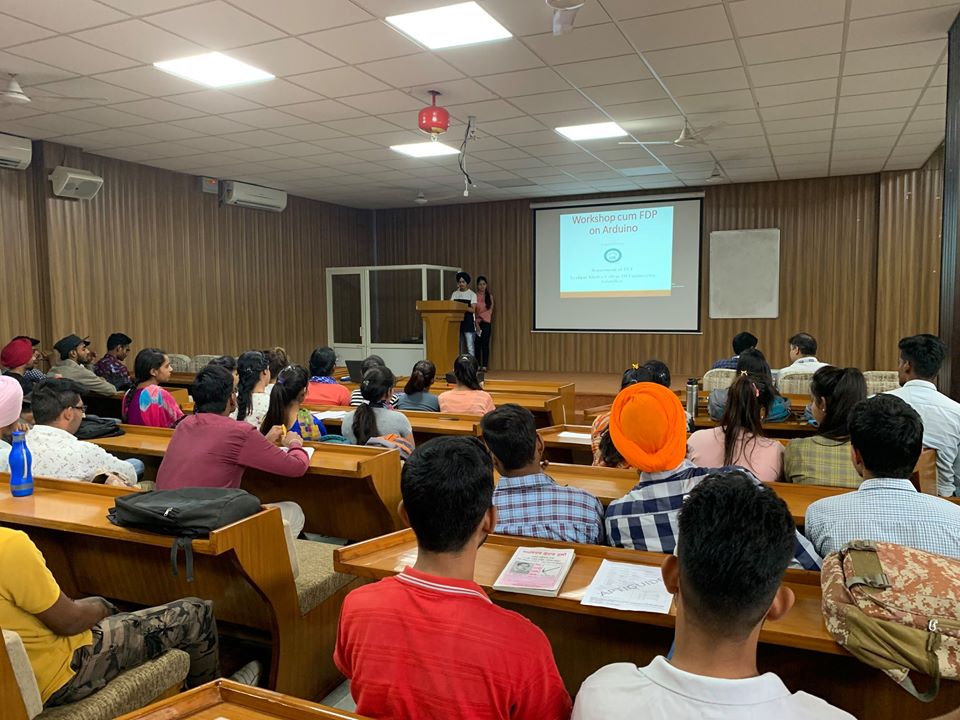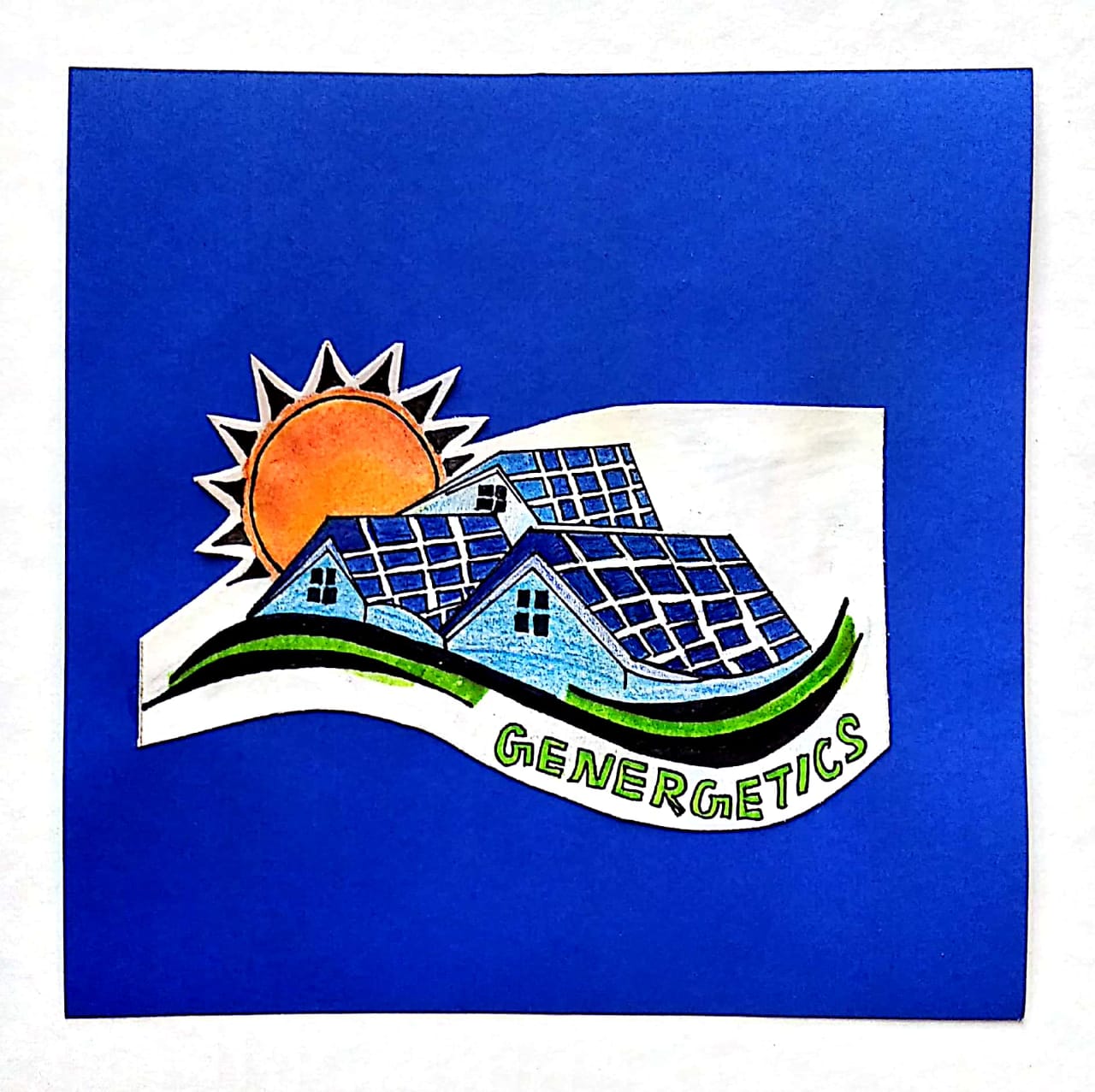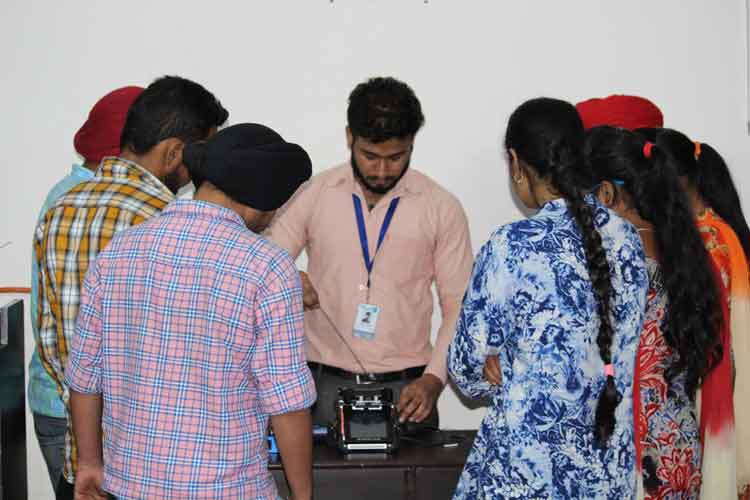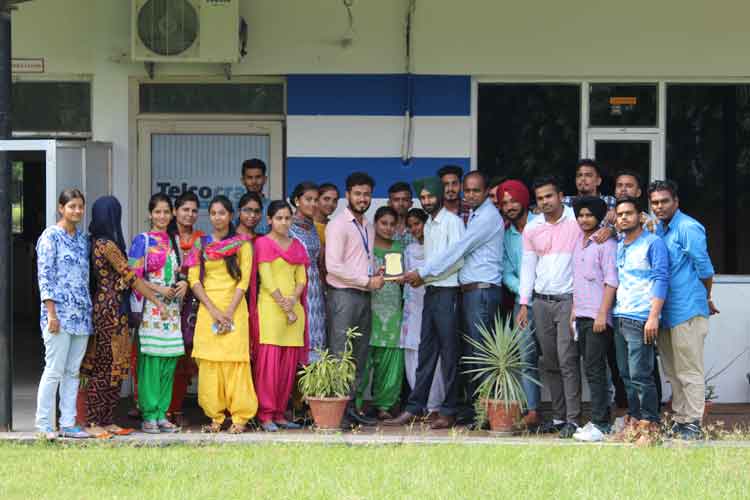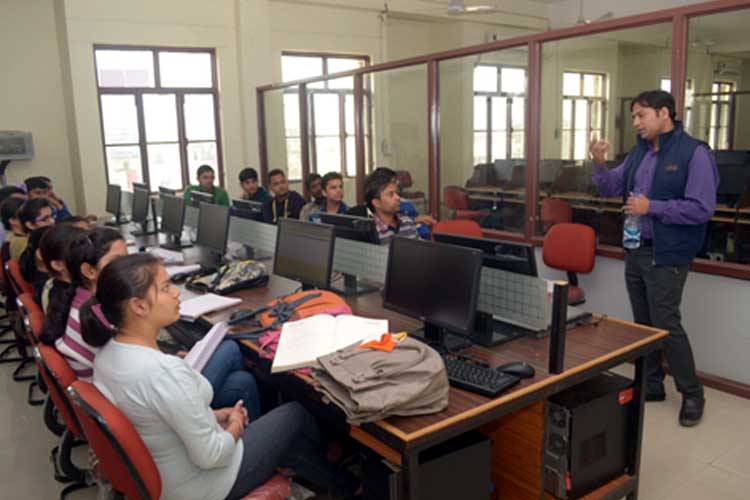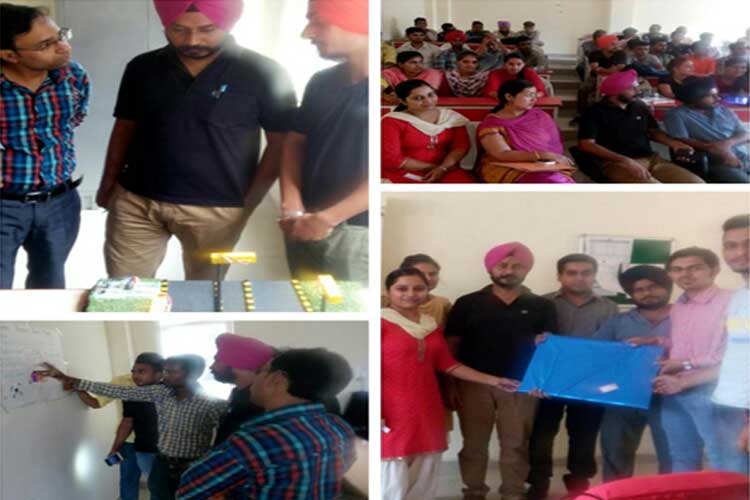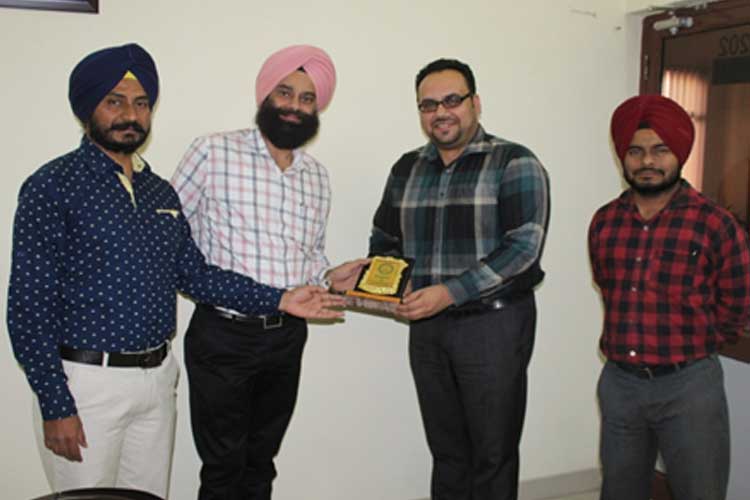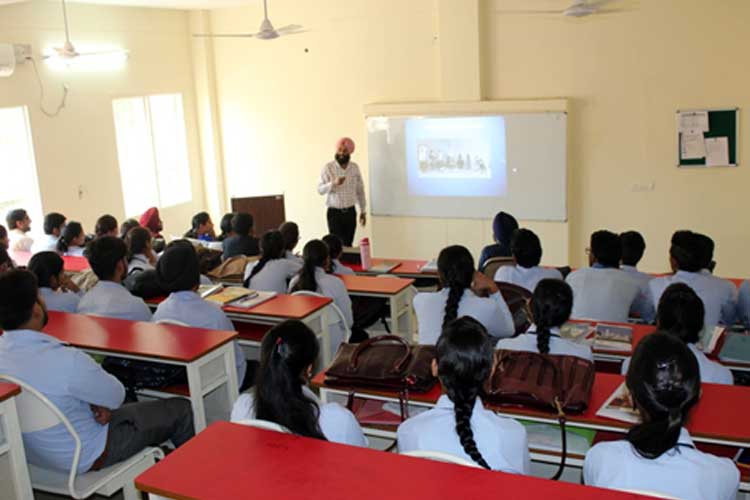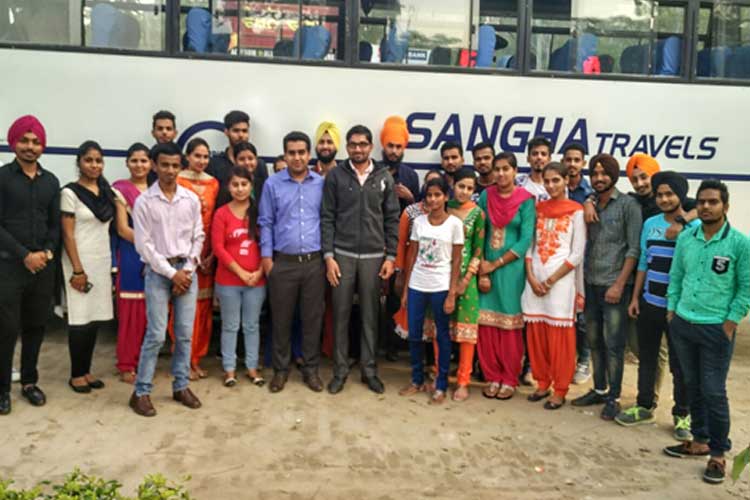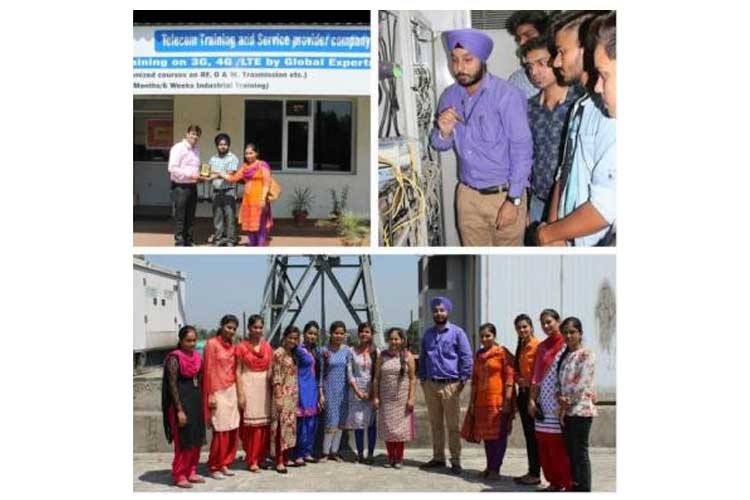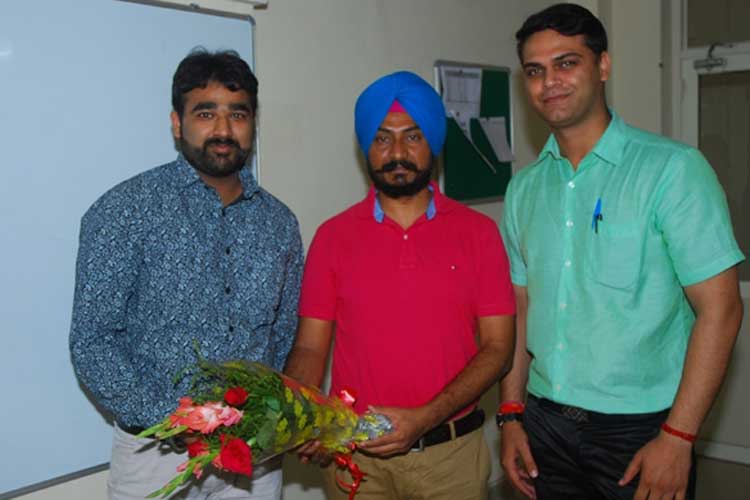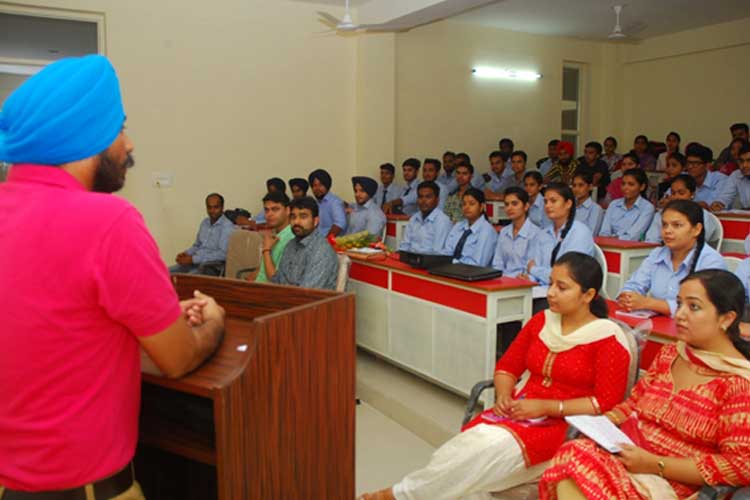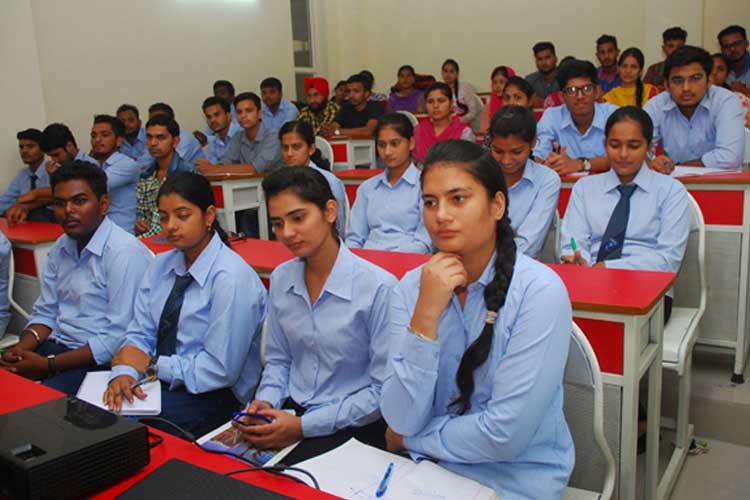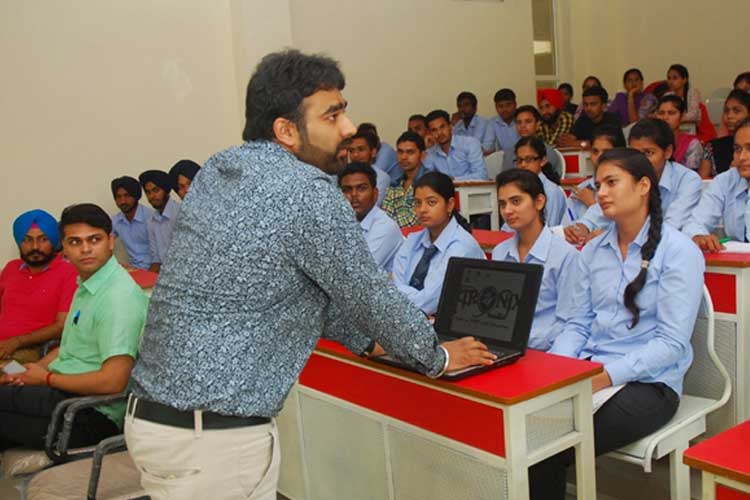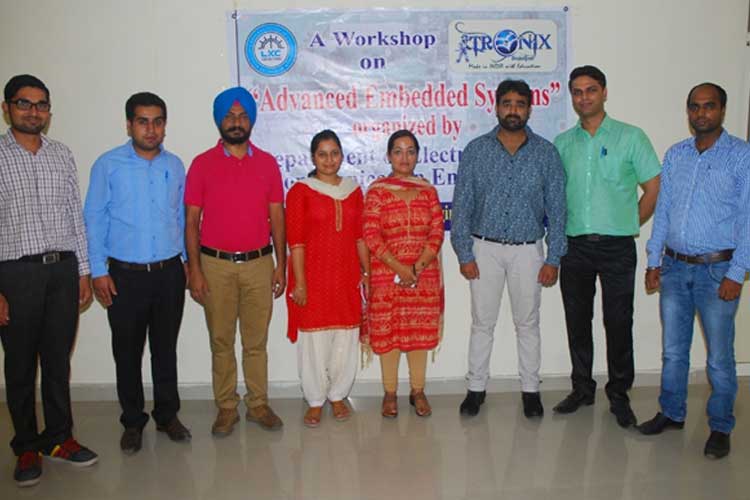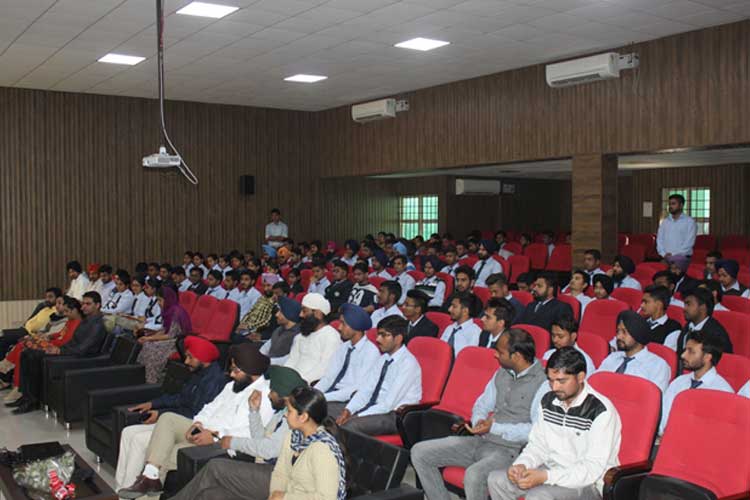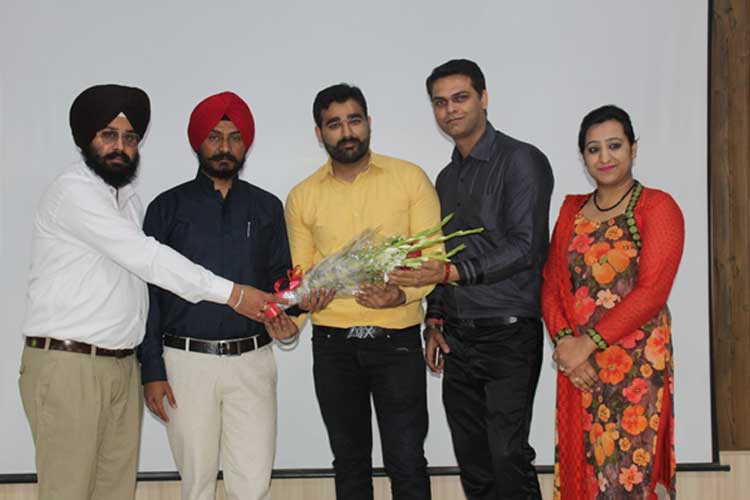An expert talk on “Impact of Industrial Revolution 4.0 on Electronics and Communication Engineering”
An Expert Talk was organized by ECE department at LKCTC in collaboration with training and placement cell. The students of all semesters of ECE department actively participated in the event. The expert, Mr. Ankit Goyal (Unacademy Educator) delivered a talk on “Impact of Industrial Revolution 4.0 on Electronics and Communication Engineering”. The aim of this event was to make students aware of Industrial Revolution in the field of Electronics and Communication Engineering. He explained the advances in electronics such as memory and the internet of things (IoT) have played a role in enabling Industry 4.0. Today, electronics design, manufacturing, assembly, and distribution is one of the world’s largest industries, and it continues to expand rapidly with the advent of technologies that are being adopted by consumers in their everyday lives — from wearables and other portable devices to smartphones, autonomous vehicles, and more.
S.Sukhbir Singh Chatha (Director Academic Affairs), Dr. S K Sood (Director, LKCTC) and Dr. R.S. Deol (Dy. Director, Academic Affairs, KCL Group) appreciated the efforts of Department and motivates them to plan these types of events in future also.
Wireless Communications: Trends and challenges
The department of ECE at School of Engineering, Lyallpur Khalsa College Technical Campus organized an international webinar on “Wireless Communications:Trends and challenges”. Nowadays everyone is surrounded by endless wireless devices, thus making the knowledge of wireless communications significant in everybody’s life.With this objective, an online webinar was organized for the students of ECE and CSE department. The resource person for the webinar was Dr. Mohamed El Bakkali, Faculty of Sciences and Technologies of Fez, USMBA, Morocco. The students appreciated the information perceived during the webinar. The Director, Academic Affairs, S. Sukhbir Singh Chatha, shared his opinion that such online workshops are need of the hour to make the students aware about latest trends in technology of wireless communications.The Deputy Director A.A., Dr.R.S. Deol, and DirectorLKCE, Dr.D.S Rao appreciated the efforts of ECE department for organizing this online webinar.
National Unity Day Celebrated
As an endeavor to solidify the bond of oneness and unification, ECE department of LKCTC, Jalandhar celebrated the Birth Anniversary of Sardar Vallabhbhai Patel as Rashtriya Ekta Diwas with myriad of activities.
Students paid tribute to Sardar Patel’s extraordinary attempt in building an integrated and inclusive modern India. A small quiz was organized for audience to test their knowledge about Indian states. First year students performed one act play conveying the message to live together unitedly and peacefully despite being from different religions and cultures. In the end a pledge on National unity and solidarity was taken by one and all present.
Rubicon life skills program
Under the MOU signed between LKCTC Jalandhar and Rubicon Skill Development Private Limited, a training program of 30 Hours was organized on life skills for the final year students of LKCTC. The program started on 21ST October and was completed on 30th October. Two hours of daily online classes from 2:00-4:00 PM were attended by the students. The classes were taken by Mr. Ravinder Singh a research consultant and soft skills trainer from Rubicon Pvt. Limited. This program made sure that students of the final year were ready for interviews with industry experts and they learn the expectations of industries from them. Along with acquainting students with the life skills and environment of industries Mr. Ravinder Singh made sure that students were equipped with work skills like SWOT Analysis, corporate jargons, articulation of thoughts into power point presentation, learning about E-mail writing skills, Telephone etiquettes and much emphasis were laid upon public speaking and how to perform well in interviews. The overall in-charge for this event was Er. Lovedeep Singh (AP ECE Department).
Director AA and Dy. Director AA appreciated the initiative taken to equip students with the skills necessary in corporate world.
Virtual industry visit to Wonder Automation Pvt. Ltd. Mohali
A virtual industry visit to Wonder Automation Pvt. Ltd. Mohali was organized by
Department of Electronics and Communication Engineering in collaboration with
the Training and Placement Cell for the students of Lyallpur Khalsa College of
Engineering on June 17 th , 2021. The students were made aware about the
manufacturing and use of PLC technology in making automated systems. PLCs are
used to automate industrial processes such as a manufacturing plant’s assembly
lines. This event helped the students to gain an insight into the design and
manufacturing of automation equipment in industry.
Director Academic Affairs, S. Sukhbir Singh Chatha, Dy. Director Academic
Affairs, Dr. R. S. Deol and Director (LKCTC) Dr. S. K. Sood appreciated the
synergy and enthusiasm of the students as well as the effort of departments for
organizing such events.
WEBINAR ON AUTOMATION AND ITS TYPES
An Alumni interaction cum Webinar on Automation and its Types was organized by Department of Electronics and Communication Engineering for the students of Lyallpur Khalsa College Technical Campus on May 5th, 2021. The resource person was, Er. Rohit Duggal, Alumni ECE Department LKCTC Jalandhar and Automation Engineer at Guru Kirpa Automation, Mandi Gobindgarh, Fatehgarh Sahib.
He made the students aware about the use of automation in industry to increase productivity, accuracy and to reduce manufacturing time and also shared his experience related to career and professional life.
Director Academic Affairs, S. Sukhbir Singh Chatha, Dy. Director Academic Affairs, Dr. R. S. Deol and Director (LKCTC) Dr. S. K. Sood appreciated the synergy and enthusiasm of the students as well as the effort of department for organizing such events.
Online Workshop on Internet of Things
The department of CSE and ECE of Lyallpur Khalsa College Technical Campus,
Jalandhar in coordination with Training and Placement department organised one-day
online workshop on Internet of Things on 08 nd April, 2021 for the students of CSE
4 th , 6 th and ECE4 th , 6 th and 8 th semester. The resource person of the event was Mr. Ritesh
Kumar, Senior Trainer, DUCAT. Mr. Ritesh has experience of more than nine years in
Embedded Systems and developing real time projects in IoT. He discussed the
prominent upcoming technologies for managing and controlling IoT devices such as
Raspberry Pi, nodeMCU and Arduino with practical knowledge. He gave detailed
knowledge about these platforms as they are widely used in real time commercial
projects. Students can develop innovative IoT projects using microcontroller
Arduino, Raspberry Pi. More than 100 students participated in the event
enthusiastically and gained in depth knowledge of the key technologies.S. Sukhbir
Singh Chatha, Director Academic Affairs appreciated the students and motivated them
to work hard in their field to acquire excellence. Dr. R. S. Deol Dy. Director, KCL
Group congratulated both departments for conducting such events. Mr. Arun Dutta,
Dy. Director, Training and Placement Coordinator thanked the resource person Mr.
Ritesh and motivated students to learn such innovative technologies. Dr. Pooja Dhand
HoD, CSE and Er. Navneet Kaur HoD, ECE appreciated the synergy of the students
as well as the efforts of faculty for organising such workshops.
Essay writing competition on Life and Teachings of Shri Guru Teg Bahadur Ji.
Celebrating the 400th Prakash Purab of Shri Guru Teg Bahadur Ji, ECE department of School of Engineering Lyallpur Khalsa Technical Campus organized an Essay writing competition on Life and Teachings of Shri Guru Teg Bahadur Ji on March15, 2021.
The main aim of the event was to make the students reconnect with Shri Guru Teg Bahadur Ji’s teachings, principles and ideals. Jasmeet kaur from BCA 4th secured first position and Pardeep Kumar(CSE 1st) and Lovepreet (BCA 6th) secured second and third position respectively.
Webinar on PLC Software STEP-7 Microwin Smart.
A Webinar on PLC Software STEP-7 Microwin Smart was organized by Department of Electronics and Communication Engineering in collaboration with the Training and Placement Cell for the students of Lyallpur Khalsa College of Engineering on February 19th, 2021. The expert, Ms. Rajinder Kaur, Technical Trainer from Wonder Automation Pvt. Ltd. Mohali made the students aware about the use of PLC technology in making automated systems.This webinar helped the students to gain an insight into the design and development of automation in industry. They learnt how to capture and process real time information with sensors, actuators andPLC Software STEP-7 Microwin Smart.
Director Academic Affairs, S. Sukhbir Singh Chatha, Dy. Director Academic Affairs, Dr. R. S. Deol and Director (LKCTC) Dr. S. K. Sood appreciated the synergy and enthusiasm of the students as well as the effort of departments for organizing such events.
Recent Trends in Embedded Systems
The department of ECE at School of Engineering, Lyallpur Khalsa College Technical Campus organized an industry oriented certified workshop on Recent Trends in Embedded Systems.The resource person for the workshop was Mr. Mohammad Shariq who is System Engineer at CETPA Infotech Private Limited,NOIDA.
Webinar on Job opportunities in ECE due to shifting Paradigm
A webinar on Job opportunities in ECE due to shifting Paradigm was organized by department of Electronics and Communication Engineering in collaboration with the Training and Placement Cell for the students of Lyallpur Khalsa College of Engineering on 19th Oct., 2020.
The expert, Ms. Rajinder Kaur from Wonder Automation Pvt. Ltd. made the students aware about various opportunities and prospective fields for Electronics and Communication Engineers so that they are ready to step in to the professional world with transformative educational experience. She highlighted the importance of Electronics and Communication Engineering applications during COVID 19 pandemic and demonstrated how the Electronics Technology acted as backbone to all the Corona Warriors like Doctors, Health workers, Administration staffs like Ministers, Police, etc. thus helped in fighting against this pandemic.
Director Academic Affairs, S. Sukhbir Singh Chatha, Dy. Director Academic Affairs, Dr. R.S. Deol and Director (LKCE), Dr. D. S. Rao appreciated the synergy and enthusiasm of the students as well as the effort of departments for organizing such events.
E-Kriti (Poster Making and Slogan Writing Competition)
AAC/DAB of ECE department organized an online event E-Kriti (Poster Making and Slogan Writing Competition). The aim of this event was to motivate the students so that they can showcase their creativity. The students created vivid and vibrant posters on various themes including Aarogya Setu, Importance of mask, Yoga and Meditation, Counseling and Social Distancing. All the students performed excellently in the event and Kamal from ECE-5th sem won the first prize for her detailed and evocative poster on Importance of Mask. Pooja Tiwari and Jaspreet Kaur (ECE-5th sem) won the second prize. Eesha and Muskan Dhingra (CE-5th & CSE-5th sem) were awarded with third prize.
Webinar on Robotics using Artificial Intelligence
A webinar on Robotics using Artificial Intelligence was organized by department of Electronics and Communication Engineering and Computer Science Engineering, in collaboration with the Training and Placement Cell for the students of Lyallpur Khalsa College of Engineering on 28th May, 2020.
The expert, Mr. Apoorva, from Mapping Skills made the students aware about the use of Robotic technology in making automated systems. The students gained an insight into the design and development of robotic components and how to capture real time information with sensors and robotic systems.
Director Academic Affairs, S. Sukhbir Singh Chatha, Dy. Director Academic Affairs, Dr. R. S. Deol and Director (LKCE) Dr. D. S. Rao appreciated the synergy and enthusiasm of the students as well as the effort of departments for organizing such events.
Workshop on TINA-Electronics Lab
The ECE department of LKCE organized an online workshop on TINA-Electronics Lab on 7th May, 2020 to expedite the student knowledge & interaction during the lockdown period in the midst of COVID-19. Dr. Nancy Gupta, AP, ECE Department was the resource person for the plenary event. It was discussed during the workshop that TINA simulator is a powerful circuit simulator & PCB design software for analyzing, designing, and real time testing of analog, digital, IBIS, HDL, MCU, and mixed electronic circuits along with their PCB layouts.
After brief theoretical discussion, the major emphasis was laid on practical session where numerous experiments were conducted and number of circuits were designed analyzed and simulated during the workshop. More than 35 participants including students and faculty from varied Institutes benefited from this workshop.The Director Academic Affairs, S. Sukhbir Singh Chatha, acknowledged the occurrence of such online events for channelizing the energy of students at their homes.
The Deputy Director A.A., Dr. R.S. Deol and Director LKCE, Dr. D.S Rao also appreciated the efforts of department for conducting this informative session.
Workshop On Arduino
ECE Department in collaboration with the training and placement cell conducted one day Workshop on "Arduino for the faculty and students of B-Tech ECE. The main objective of this workshop was to provide the fundamental knowledge of Arduino Processor with hands on practice to enhance the technical and practical skills of audience where they gained knowledge through theory and demonstration on how to program NodeMCU board with the Arduino IDE.
The workshop was conducted by external training agency CEPTA Infotech Ltd. Noida,and the resource persons were Mr. Uma Shankar and Mr Ranu Mishra during the workshop.
E-Insignia-Logo Design Hunt
The ECE department of Lyallpur Khalsa College of Engineering, Jalandhar organized online events named as E-Insignia-Logo Design Hunt and Speculate Buzz-Boojho to Jaane on 21th May, 2020. An overwhelming response was received from the students. The Winners of both events are as follows:
Event: E-Insignia-Logo Design Hunt
1 Muskan Dhingra B.Tech. CSE4 First
2 Khushpreet Kaur B.Tech. ECE4 Second
3 Mohit Kumar B.Tech. CE 2 second
4 Tushar B.Tech. ECE 6 Third
Speculate Buzz-Boojho to Jaane
Ekjot Singh B. Tech. ECE 6 First
Sukhraj Singh B. Tech. ECE 8 Second
Anmol Rattan Singh B. Tech. CE 6 Third
Engineers day celebration
Department of Electronics and Communication Engineering celebrated the Engineer's Day on Sept. 15, 2015. Students of ECE department participated in various activities such as Project Idea Demonstration through Charts and working models and Technical Quiz. Best Project Idea Award was given to PIR based Home Appliance Controller and Water Conservation. This project was specifically designed to conserve the electrical energy in AC enabled classrooms bny turning on the AC only whenever students are present in the class and switch off otherwise.
In addition to above mentioned activities Head of Department, Er. Amandeep Singh shared a documentary prepared by him based on the problems faced by people of rural areas. He discussed various technical issues and motivated the students to be aware about their surroundings so that they could identify some real time problems and then try to provide the automatic solutions. In response, all the students resoluted/promised with HOD that before next Engineer's Day they will definitely contribute to benefit the society in terms of some Engineering based Solutions.
S. Sukhbir Singh Chatha (Director Academics, KCl Group) and Dr. Y.S. Randhawa(Director, LKCE) appreciated the efforts for organize such events and give their words that the management committee is always there to help the students/teachers for their social cause.
Industrial Visit to Telcocrats Technologies Pvt. Ltd., Mohali
The department of ECE of Lyallpur Khalsa College of Engineering arranged an industrial visit related to Latest Wireless Communication Systems at Telcocrats Technologies Pvt. Ltd., Mohali keeping in view the fact that tremendous career growth exists in Information and Communications technology domain. The purpose of this visit was to provide exposure to students about industrial environment and futuristic trends in the field of wireless telecommunication. The students were made aware about the telecommunication technologies i.e. VLSI, BTS, UMTS, GSM, CDMA, 2G and 3G. The Company's Engineer provided a deep insight about the future implementation details of 4G. The students were accompanied by Er. Lovdeep Singh (Asstt. Professor, ECE Deptt.) and expert team of Telcocrats, who shared their knowledge and experience with the students.
Dr. Amandeep Singh (HOD, ECE) said that these kind of industrial visits help the students to understand the actual practical implementation of the concepts which they are studying theoretically.
S. Sukhbir Singh Chatha (Director Academics, KCL Group) said that management of LKCE is always at forefront to enhance the academic learning and practical exposure of their students by keeping this practice of arranging industrial visits regularly. Dr. Y.S. Randhawa (Director, LKCE) appreciated the efforts of Department of ECE and encouraged the faculty to organize these types of visits in future also
MATLAB Workshop
Department of Electronics and Communication Engineering at Lyallpur Khalsa college of Engineering Jalandhar organized a one day Workshop on 'MATLAB and its Applications'. MATLAB (MATrix LABoratory) is a numerical computing environment and fourth generation language developed by 'Mathworks organization'. Using MATLAB we can analysis data, develop algorithms and create models and applications. The language, tools and building Math functions enable students to explore multiple approaches and reach the solutions faster. MATLAB is used for a range of applications including Signal Processing and Communications, Image and Video Processing, Control Systems, Test and Measurement, Computational Finance and Large Data Analysis. The Expert, Er. Vaibhav Saxena from Design Tech Solutions, Delhi delivered lecture and gave hands on training during the session. This workshop was intended to provide practical training experience in the field of engineering by applying MATLAB tools. He explained the various basic commands used in MATLAB with detailed examples and discussed technical questions with students in the field of Engineering. This workshop provided a platform for students and faculty members to discuss and exchange ideas on the various engineering applications of MATLAB. Students of ECE Department actively participated in the workshop.
Engineers day celebration
Department of Electronics and Communication Engineering celebrated the Engineer's Day on Sept. 15, 2015. Students of ECE department participated in various activities such as Project Idea Demonstration through Charts and working models and Technical Quiz. Best Project Idea Award was given to PIR based Home Appliance Controller and Water Conservation. This project was specifically designed to conserve the electrical energy in AC enabled classrooms by turning on the AC only whenever students are present in the class and switch off otherwise.
In addition to above mentioned activities Head of Department, Dr. Amandeep Singh shared a documentary prepared by him based on the problems faced by people of rural areas. He discussed various technical issues and motivated the students to be aware about their surroundings so that they could identify some real time problems and then try to provide the automatic solutions. In response, all the students resoluted with HOD that before next Engineer's Day they will definitely contribute to benefit the society in terms of some Engineering based Solutions.
Expert Talk on "Advances in Electronics Engineering"
Department of Electronics and Communication Engineering organized an expert talk on "Advances in Electronics Engineering". Prof. (Dr.) Ravinder Singh Sawhney from Guru Nanak Dev University, Amritsar was invited as an expert to share his valuable views related to the development of several electronic components. He also discussed the evolution history of engineering in India. This expert talk has provided a platform for the students and faculty members to discuss and exchange ideas like how the advanced electronic components can replace the existing bulky products and increase the efficiency. Moreover this expert talk was an initiative to enhance the technical knowledge of students so that they can become employable. The students of ECE Department actively participated in the event. At last, Prof. Amandeep Singh, HOD ECE, on behalf of Department of Electronics and Communication Engineering Department presented a vote of thanks to Prof. Ravinder Singh Sawhney for the valuable session he delivered.
Industrial Visit to Punjab Communication System, Mohali
The Department of Electronics and Communication Engineering arranged an industrial visit to Punjab Communication System, Mohali, to provide exposure to students about the various products like, Voice/Data Multiplexers, Power Plants, Optical/Transmission Equipment, Digital Radios, PLCC, Broadband Equipments etc. The Head of the training department, Mr.Rohit Malhotra along with his engineers provided a deep insight about all the above mentioned products. The students were accompanied by Er. Gagandeep Singh Dhaliwal (Assistant Professor, ECE) & Mr. Bishnu Dutt (Lab Technician, ECE) who shared their knowledge and experience. Er. Amandeep Singh (HOD, ECE) said that these kind of industrial visits help the students to understand the actual practical implementation of the concepts which they are studying theoretically.
Industrial Visit to Telcocrats, Mohali
The ECE department of Lyallpur Khalsa College of engineering arranged an industrial visit related to Latest Wireless Communication Systems organized by Telcocrats Pvt.Ltd., Mohali. The purpose of this visit was to provide exposure to students about industrial environment and futuristic trends in the field of wireless communication. The students were made aware about the telecommunication technologies i.e. VLSI, BTS, UMTS, GSM, CDMA, 2G and 3G. The Company's Engineer provided a deep insight about the future implementation details of 4G.The students were accompanied by Er. Rajdeep Singh, Er. Pallavi Sharma (Asstt. Professors, ECE) and Engineering team of Telcocrats, who shared their knowledge and experience.
One day Workshop on "Advanced Embedded Systems" by Itronix Solutions Pvt. Ltd., Jalandhar
Expert Er. Karan Arora delivered lecture and enlightened students in the field of Linux Embedded Programming and device drivers' development. He also explained the basics of various microcontrollers such as 8051, PIC, AVR, Arduino and friendly ARM. This workshop provided platform for students and faculty members to exchange ideas on various programming techniques. The workshop was organized by joint efforts of Dr. Amandeep Singh (HOD, ECE) and Er. Silky Khurana (AP, ECE). Such types of workshops are so much helpful in bridging the gap between Academia and Industries by enhancing the employability skills of the students.
One day Workshop on "Advanced Embedded Systems" by Itronix Solutions Pvt. Ltd., Jalandhar
Department of Electronics and Communication Engineering and Mechanical Engineering organized an expert talk on "Role of Embedded Systems in Automobiles". Dr. Amandeep Singh, Head, ECE shared his views related to the Innovations in Engineering. He explained that students can avail opportunities only if they are equipped with talent. The experts, Er. Karan Arora and Mr. Varun Nayyar from Itronix Solutions Pvt. Ltd. explained the basics of Embedded Systems and provided demonstration related to Applications of Advanced Embedded Systems in Automobiles. This expert talk explored a platform for students of both the departments, so that they can understand various aspects like how to control the different mechanisms using Text and Speech through Bluetooth/WiFi Communication Technologies. They motivated the students to develop some collaborative engineering projects which should be beneficial for the nation. Moreover, this workshop was an initiative to enhance the technical skills of students, so that they can be employable in prestigious organizations. The students of both the departments actively participated in the event. At last, Dr. Sukhraj Singh, Head, ME presented vote of thanks to Experts of Itronix Solutions Pvt. Ltd. for the valuable session they delivered.
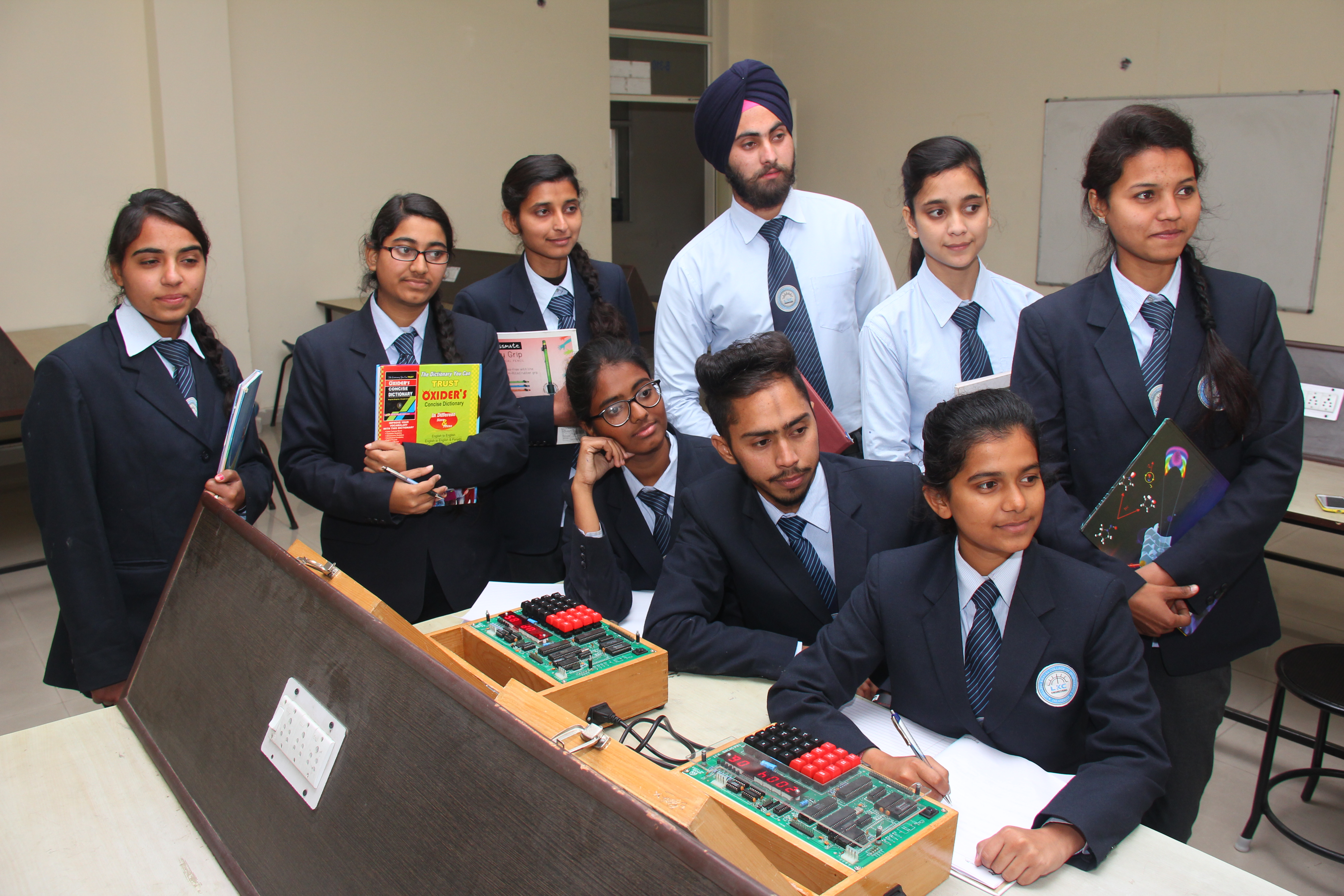 The laboratory introduces students to practical, circuit design and contributes significantly to provide them with engineering skills. The experiments covered in this laboratory are synchronized with its theoretical part, so that students might be able to understand the practical aspects of it. The lab has all the required equipment and consumables to carry out the experiments as per the syllabus. It houses a large number of state of the art equipments like Oscilloscopes, Function Generators, Power Supply units and Linear IC Trainer Kits. Using these students can perform experimentation on verification of Network theorems, applications of Diodes and Op-Amps, design of Oscillators and Amplifiers.
The laboratory introduces students to practical, circuit design and contributes significantly to provide them with engineering skills. The experiments covered in this laboratory are synchronized with its theoretical part, so that students might be able to understand the practical aspects of it. The lab has all the required equipment and consumables to carry out the experiments as per the syllabus. It houses a large number of state of the art equipments like Oscilloscopes, Function Generators, Power Supply units and Linear IC Trainer Kits. Using these students can perform experimentation on verification of Network theorems, applications of Diodes and Op-Amps, design of Oscillators and Amplifiers.
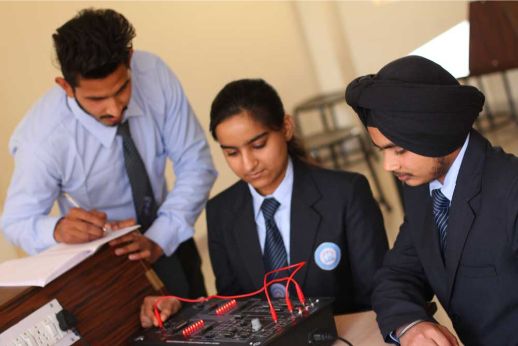 Digital Electronics is technology subject which is intended to make students familiar with different types of designs as sequential logic circuits, combinational logic circuits, trouble shooting of various digital systems & study of various digital systems. Knowledge of basic electronics & digital techniques is useful in understanding theory and practical of the subject. For years, applications of digital electronics were confined to computer systems. Today digital electronics are applied in many diverse areas such as telephony, data processing, radar, navigation, military systems, medical instruments, process controls etc. Digital circuits and logic design Laboratory is fully equipped with the required instruments such as C.R.O., multimeters, Signal Generators etc. to conduct experiments with digital ICs for UG students.
Digital Electronics is technology subject which is intended to make students familiar with different types of designs as sequential logic circuits, combinational logic circuits, trouble shooting of various digital systems & study of various digital systems. Knowledge of basic electronics & digital techniques is useful in understanding theory and practical of the subject. For years, applications of digital electronics were confined to computer systems. Today digital electronics are applied in many diverse areas such as telephony, data processing, radar, navigation, military systems, medical instruments, process controls etc. Digital circuits and logic design Laboratory is fully equipped with the required instruments such as C.R.O., multimeters, Signal Generators etc. to conduct experiments with digital ICs for UG students.
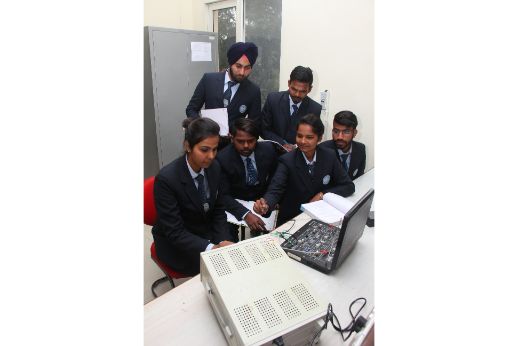 The Signals and Systems Lab is concerned with the representation of signals and the study of the changes that occur to them as they pass through systems. The study of Signals and Systems is to allow one to predict, with some certainty, the behavior of systems when they are subjected to different input signals. Students perform various experiments related to generation and processing of signals in Matlab Software.
The Signals and Systems Lab is concerned with the representation of signals and the study of the changes that occur to them as they pass through systems. The study of Signals and Systems is to allow one to predict, with some certainty, the behavior of systems when they are subjected to different input signals. Students perform various experiments related to generation and processing of signals in Matlab Software.
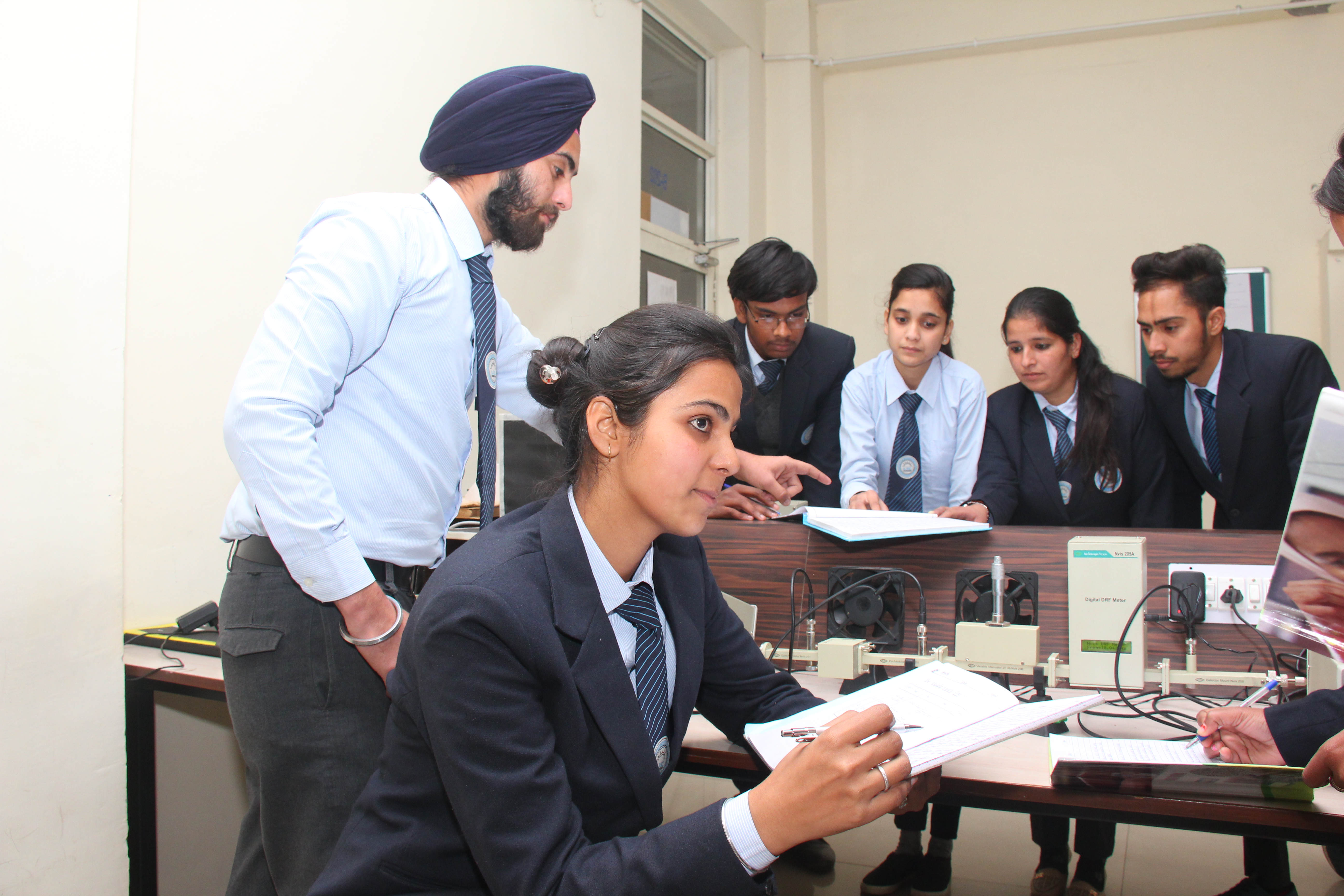 Digital Signal Processing (DSP) can be described as the processing of signals using digital techniques or digital computers. A signal is a piece of information in binary or digital form. The DSP Laboratory aims to teach students about Digital Signal Processing, implementing various signal processing algorithms on the computer as well as on DSP boards. The lab is equipped with high-end computer systems and quality DSP trainer kits. The lab has MATLAB software installed and trains the students in using this powerful computer application in various aspects of engineering.
Digital Signal Processing (DSP) can be described as the processing of signals using digital techniques or digital computers. A signal is a piece of information in binary or digital form. The DSP Laboratory aims to teach students about Digital Signal Processing, implementing various signal processing algorithms on the computer as well as on DSP boards. The lab is equipped with high-end computer systems and quality DSP trainer kits. The lab has MATLAB software installed and trains the students in using this powerful computer application in various aspects of engineering.
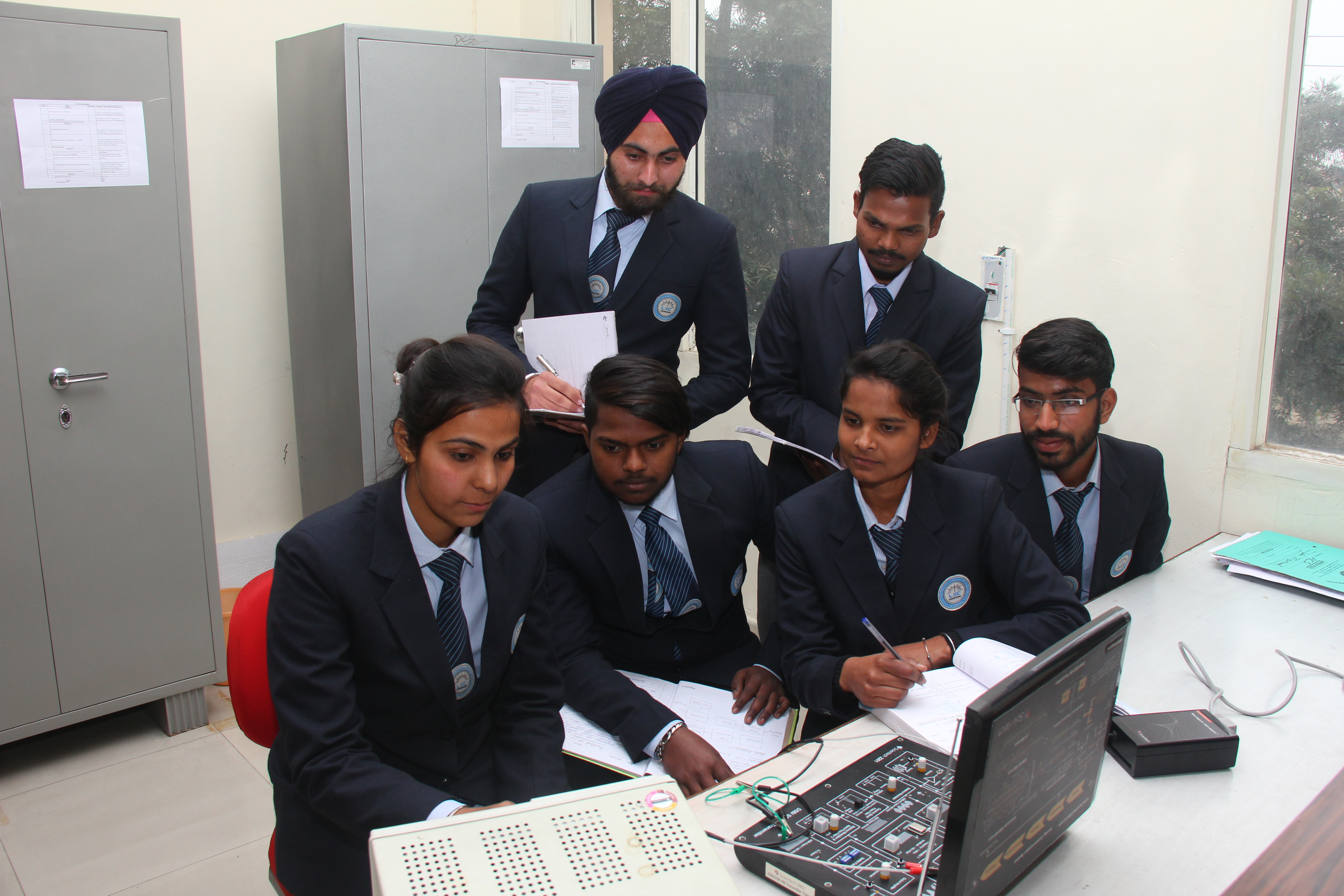 All kind of signals we deal with in nature are analog. Analog Communication is an essential part of modern day technology. The course provides comprehensive, hands-on instruction in the terminology, principles, and applications of the analog communication circuits. Over the last two decades digital communications have become prominent because of the increase in performance it provides. Digital systems allow for increased data transmission and more resistance to noise. The laboratory is well equipped with different modulation and demodulation kits such as AM, FM, DSB-SC, SSB-SC, and TDM, ASK, FSK, PSK, PCM and DPCM etc. and measurement instruments like Spectrum analyzer, Digital storage oscilloscopes of 30 MHz, 4 channel 60MHz Digital storage oscilloscopes.
All kind of signals we deal with in nature are analog. Analog Communication is an essential part of modern day technology. The course provides comprehensive, hands-on instruction in the terminology, principles, and applications of the analog communication circuits. Over the last two decades digital communications have become prominent because of the increase in performance it provides. Digital systems allow for increased data transmission and more resistance to noise. The laboratory is well equipped with different modulation and demodulation kits such as AM, FM, DSB-SC, SSB-SC, and TDM, ASK, FSK, PSK, PCM and DPCM etc. and measurement instruments like Spectrum analyzer, Digital storage oscilloscopes of 30 MHz, 4 channel 60MHz Digital storage oscilloscopes.
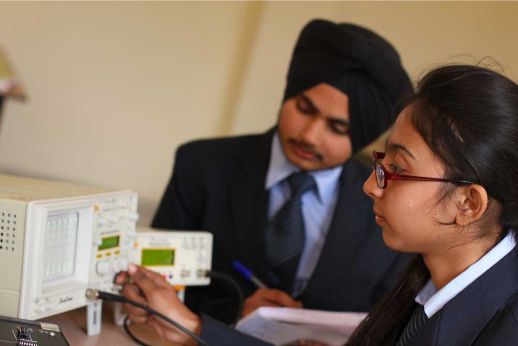 The Linear Integrated Circuits lab course introduces the concept and application of operational amplifiers. Laboratory assignments clarify textbook formulas and examples, as well as help to close the gap between theory and real-life problems. The experiments are designed to compliment and reinforce the lecture material throughout the semester. The equipment used in the laboratory includes a Digital Voltmeter (DVM), oscilloscope, function generator, DC power supply, electronic breadboard, and miscellaneous wires and test boards.
The Linear Integrated Circuits lab course introduces the concept and application of operational amplifiers. Laboratory assignments clarify textbook formulas and examples, as well as help to close the gap between theory and real-life problems. The experiments are designed to compliment and reinforce the lecture material throughout the semester. The equipment used in the laboratory includes a Digital Voltmeter (DVM), oscilloscope, function generator, DC power supply, electronic breadboard, and miscellaneous wires and test boards.
 The laboratory has been established to satisfy the curriculum needs in the area of microprocessors & Micro controllers focusing on embedded systems. Microprocessors and microelectronics in general have brought about a revolution in computer science, manufacturing, telecommunications as well as in space and high-energy physics. The Lab has micro controller and microprocessor trainer kits and micro controller development board sets. Further smart card development kits, wireless application Modules and RFID development kits are also available. Microprocessor lab helps the students enhance their knowledge about various processors such as 8085, 8086, microcontrollers, Pentium processors and also the interfacing of these processors with other devices. The features and facilities available in this lab help the students do their projects and enhance their knowledge about the latest trends and technologies like:
The laboratory has been established to satisfy the curriculum needs in the area of microprocessors & Micro controllers focusing on embedded systems. Microprocessors and microelectronics in general have brought about a revolution in computer science, manufacturing, telecommunications as well as in space and high-energy physics. The Lab has micro controller and microprocessor trainer kits and micro controller development board sets. Further smart card development kits, wireless application Modules and RFID development kits are also available. Microprocessor lab helps the students enhance their knowledge about various processors such as 8085, 8086, microcontrollers, Pentium processors and also the interfacing of these processors with other devices. The features and facilities available in this lab help the students do their projects and enhance their knowledge about the latest trends and technologies like: 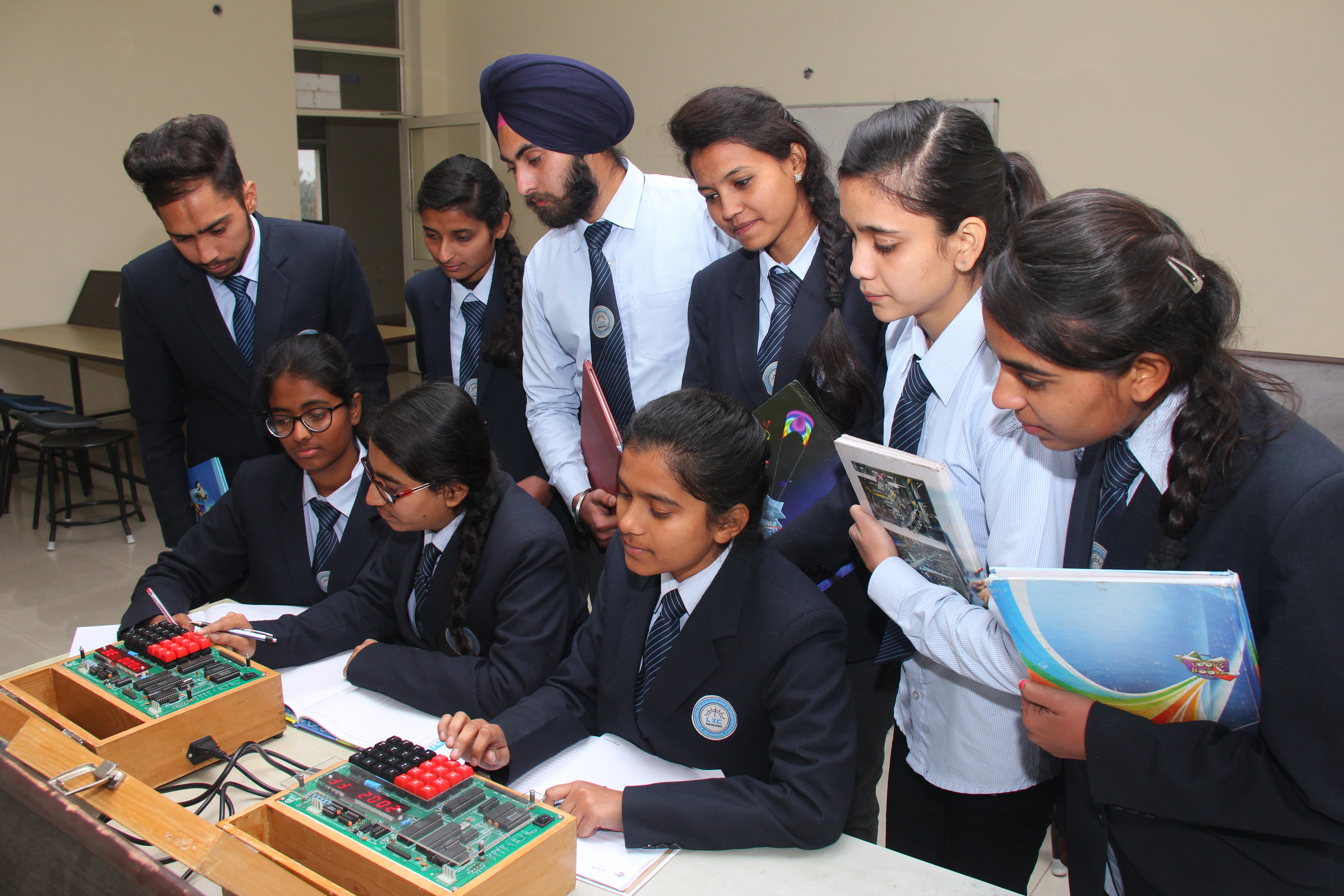 This laboratory is well equipped with 4 Reflex Klystron test benches, 4 Gunn Oscillators test benches with different kinds of loads. It also consists of 8 VSWR meters, 6 CROs, 7 fiber optic trainer kits for determining the characteristics of LED, LASER and photo detector. Microwave antennas like Pyramidal horn, E-Plane and H-Plane sectoral horns are also available. In Microwave Lab the students are exposed to the microwave active devices like klystron, gunn diode and passive devices isolators, circulators, slide screw tuner, magic tee, directional coupler, horn antenna, attenuator, terminations. The students perform all the experiments as prescribed by the university.
This laboratory is well equipped with 4 Reflex Klystron test benches, 4 Gunn Oscillators test benches with different kinds of loads. It also consists of 8 VSWR meters, 6 CROs, 7 fiber optic trainer kits for determining the characteristics of LED, LASER and photo detector. Microwave antennas like Pyramidal horn, E-Plane and H-Plane sectoral horns are also available. In Microwave Lab the students are exposed to the microwave active devices like klystron, gunn diode and passive devices isolators, circulators, slide screw tuner, magic tee, directional coupler, horn antenna, attenuator, terminations. The students perform all the experiments as prescribed by the university.
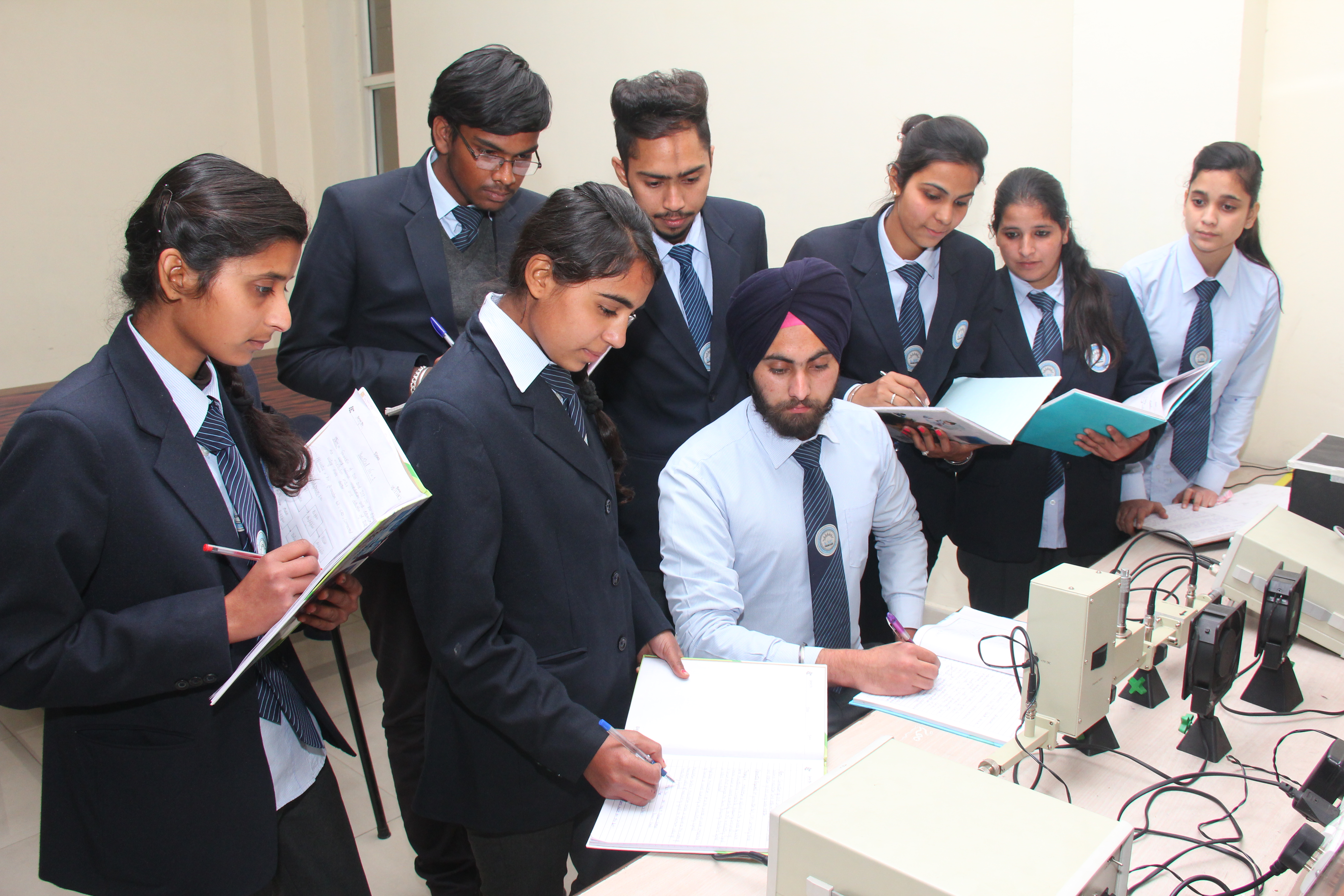 The VLSI applications are becoming more prevalent in every day use. The field of VLSI was developed due to the flexibility offered by the use of digital computers in implementing signal processing algorithms and systems. This laboratory complements the course of VLSI Circuit Design. The laboratory provides details about basic CMOS analog integrated Circuit design, simulation, and testing techniques. Several tools like Xilinx, Matlab and Proteus have been integrated into the lab to teach students about analog and digital VLSI design and to make the experience more practical.
The VLSI applications are becoming more prevalent in every day use. The field of VLSI was developed due to the flexibility offered by the use of digital computers in implementing signal processing algorithms and systems. This laboratory complements the course of VLSI Circuit Design. The laboratory provides details about basic CMOS analog integrated Circuit design, simulation, and testing techniques. Several tools like Xilinx, Matlab and Proteus have been integrated into the lab to teach students about analog and digital VLSI design and to make the experience more practical.
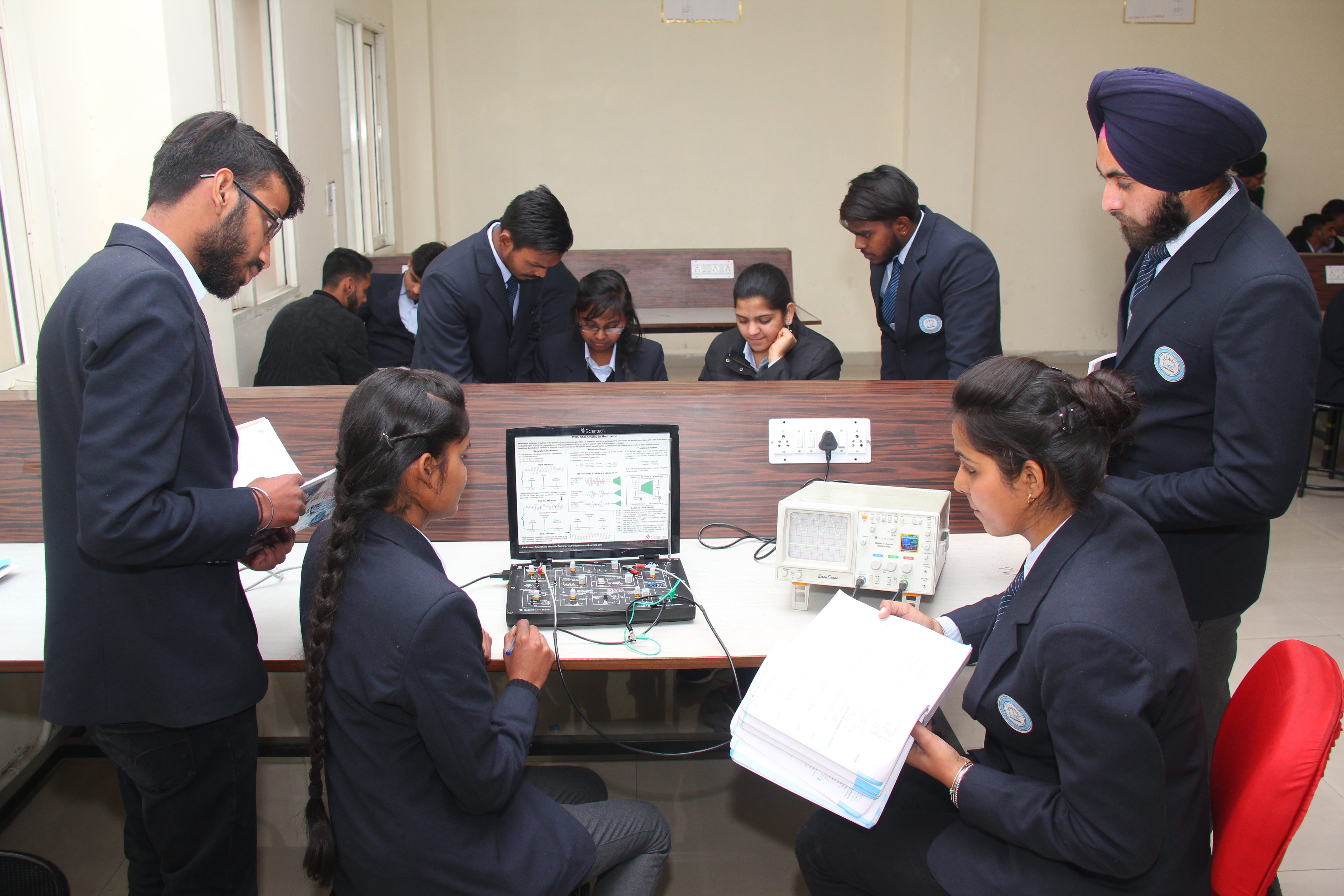 The aim of this Measurements and Instrumentation Laboratory is to reinforce the students with an adequate work experience in the measurement of different quantities and also the expertise in handling the instruments involved. It also helps to train the students in the measurement of displacement, resistance, inductance, torque and angle etc. and to give exposure to AC, DC bridges and transient measurements.. This lab provides students the practical, elementary as well as comprehensive knowledge about instrumentation. A wide variety of sensors and transducers kits like Strain gauge Transducer kit, Temperature Transducer kit, Maxwell Inductance Bridge, LVDT kit, CRO trainer kits are available in the lab.
The aim of this Measurements and Instrumentation Laboratory is to reinforce the students with an adequate work experience in the measurement of different quantities and also the expertise in handling the instruments involved. It also helps to train the students in the measurement of displacement, resistance, inductance, torque and angle etc. and to give exposure to AC, DC bridges and transient measurements.. This lab provides students the practical, elementary as well as comprehensive knowledge about instrumentation. A wide variety of sensors and transducers kits like Strain gauge Transducer kit, Temperature Transducer kit, Maxwell Inductance Bridge, LVDT kit, CRO trainer kits are available in the lab.
